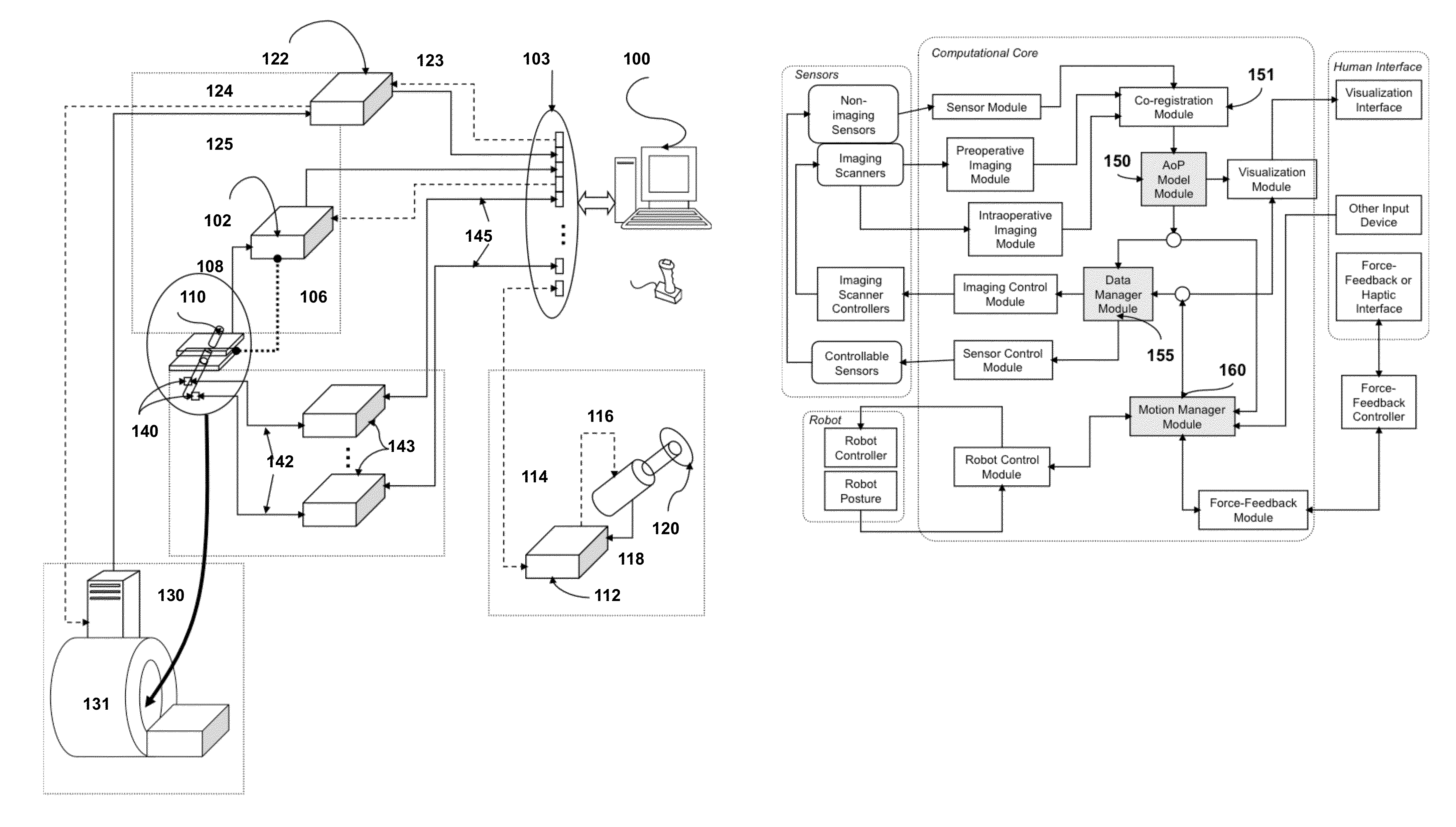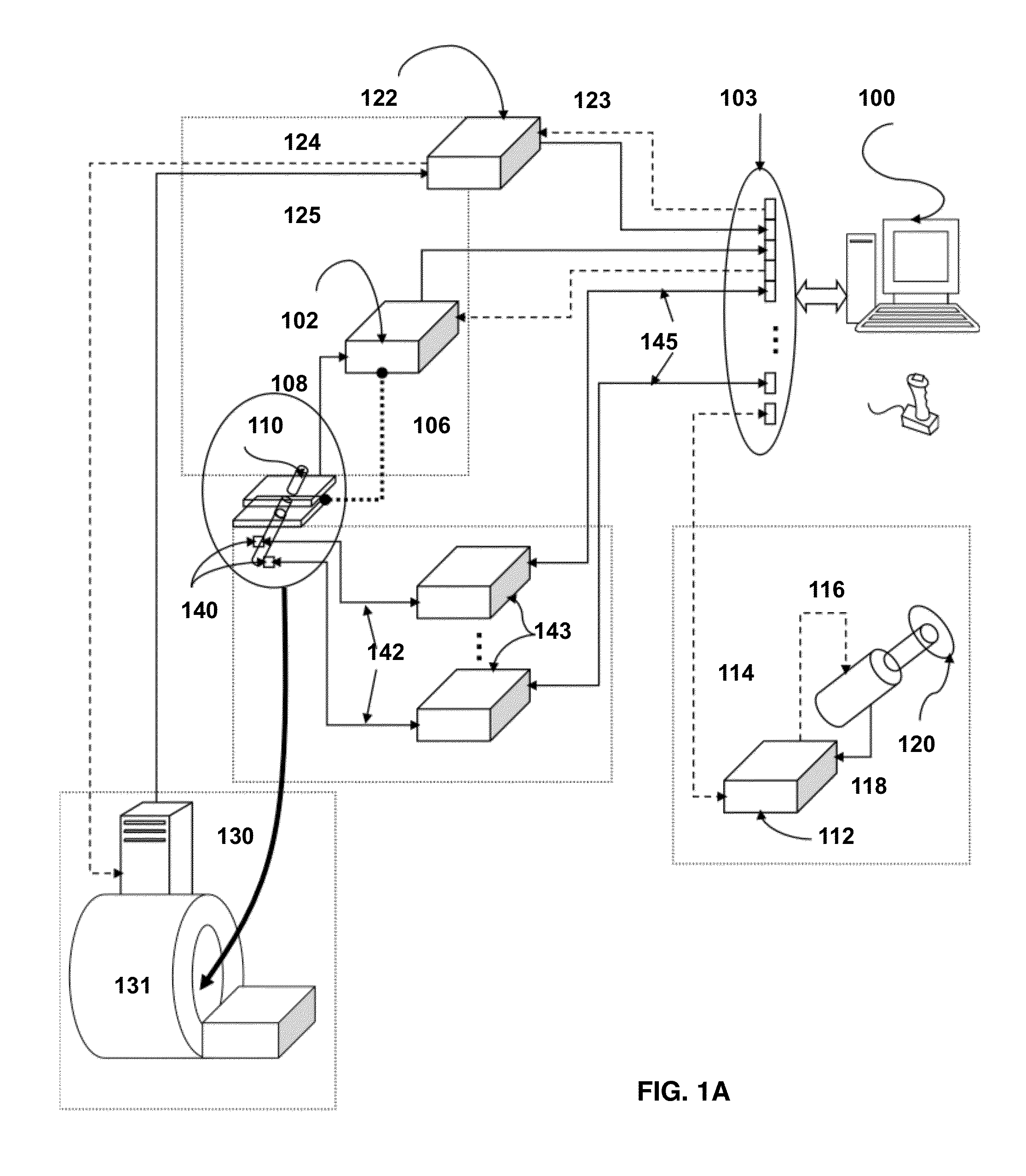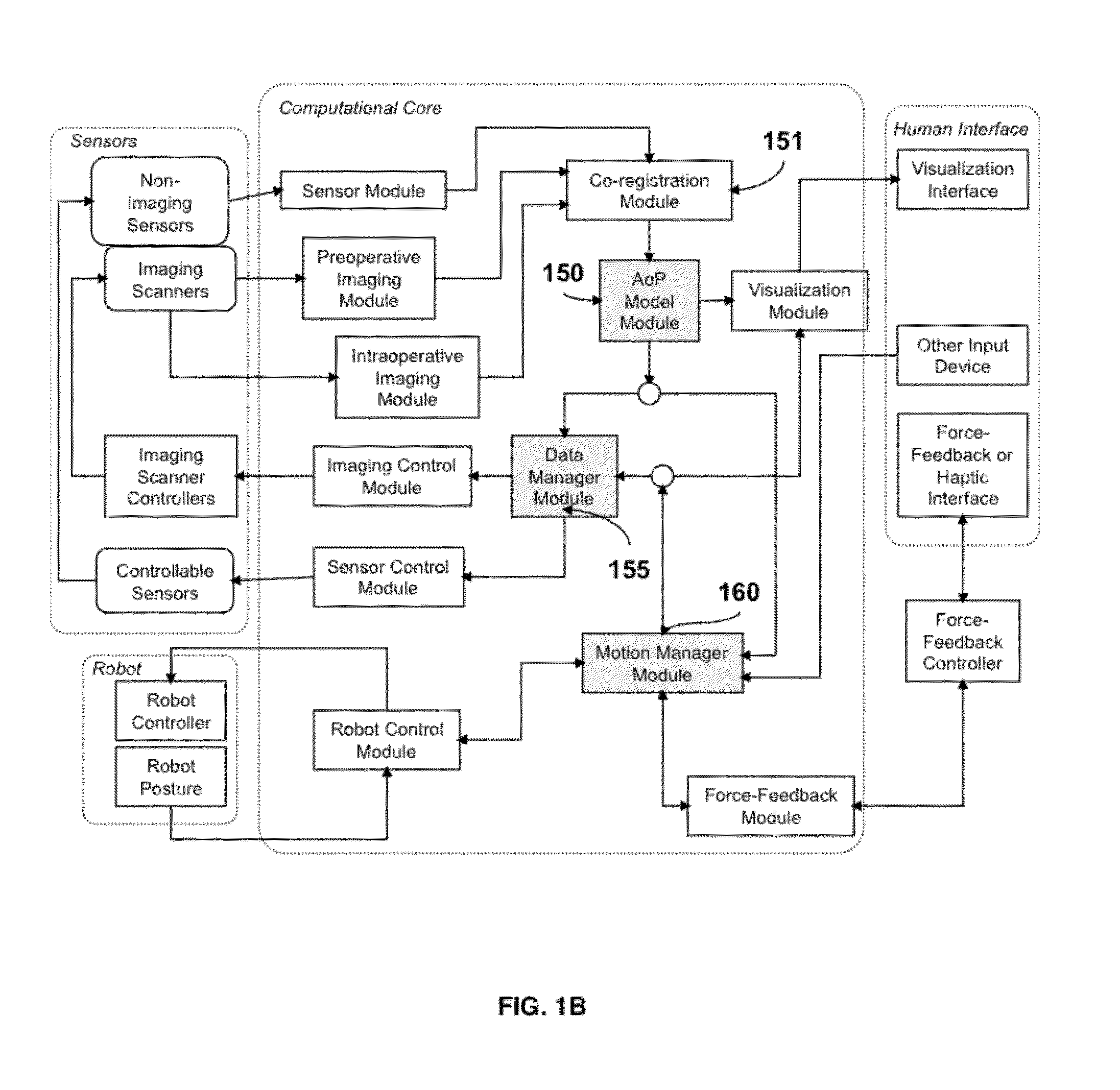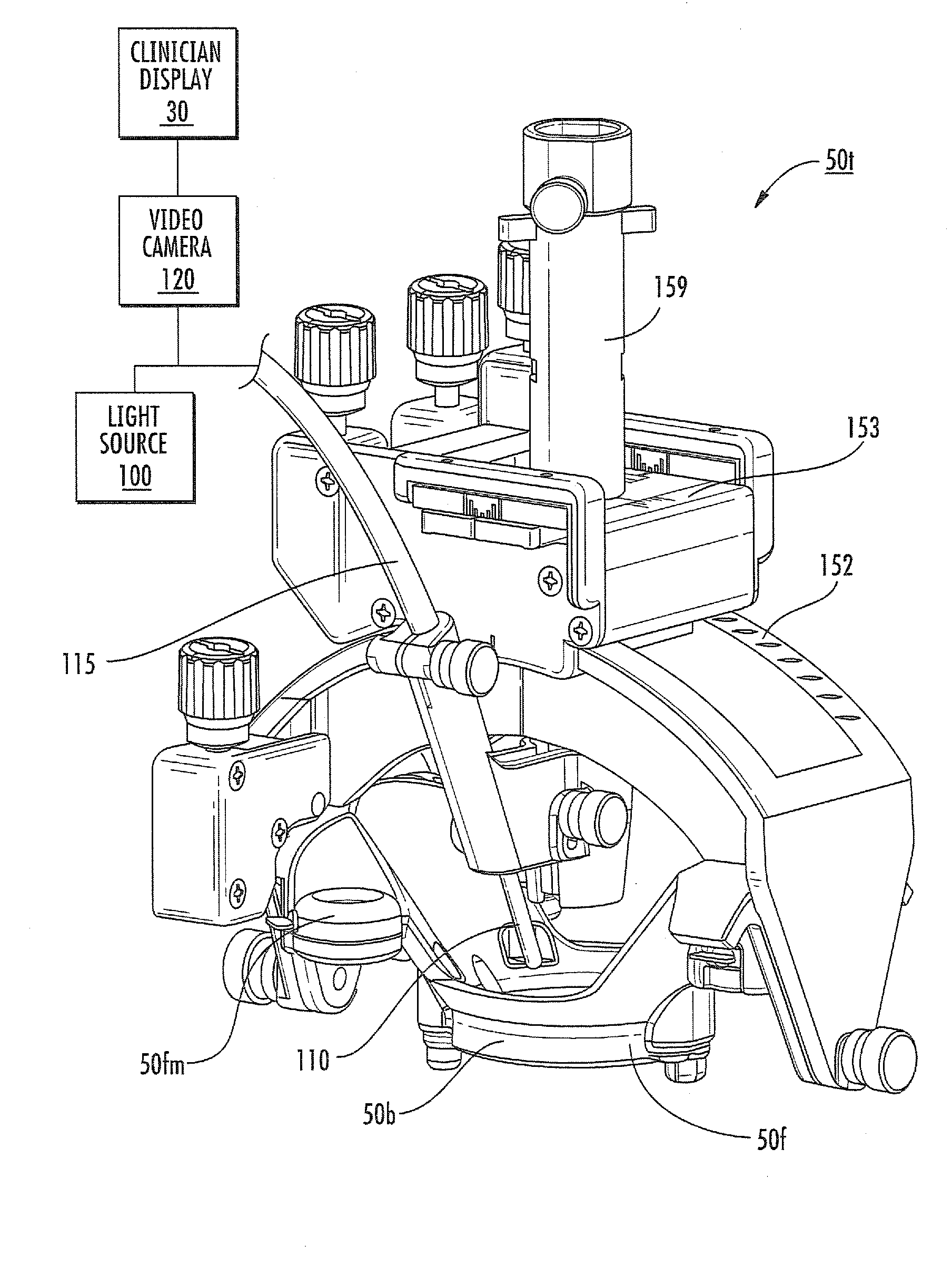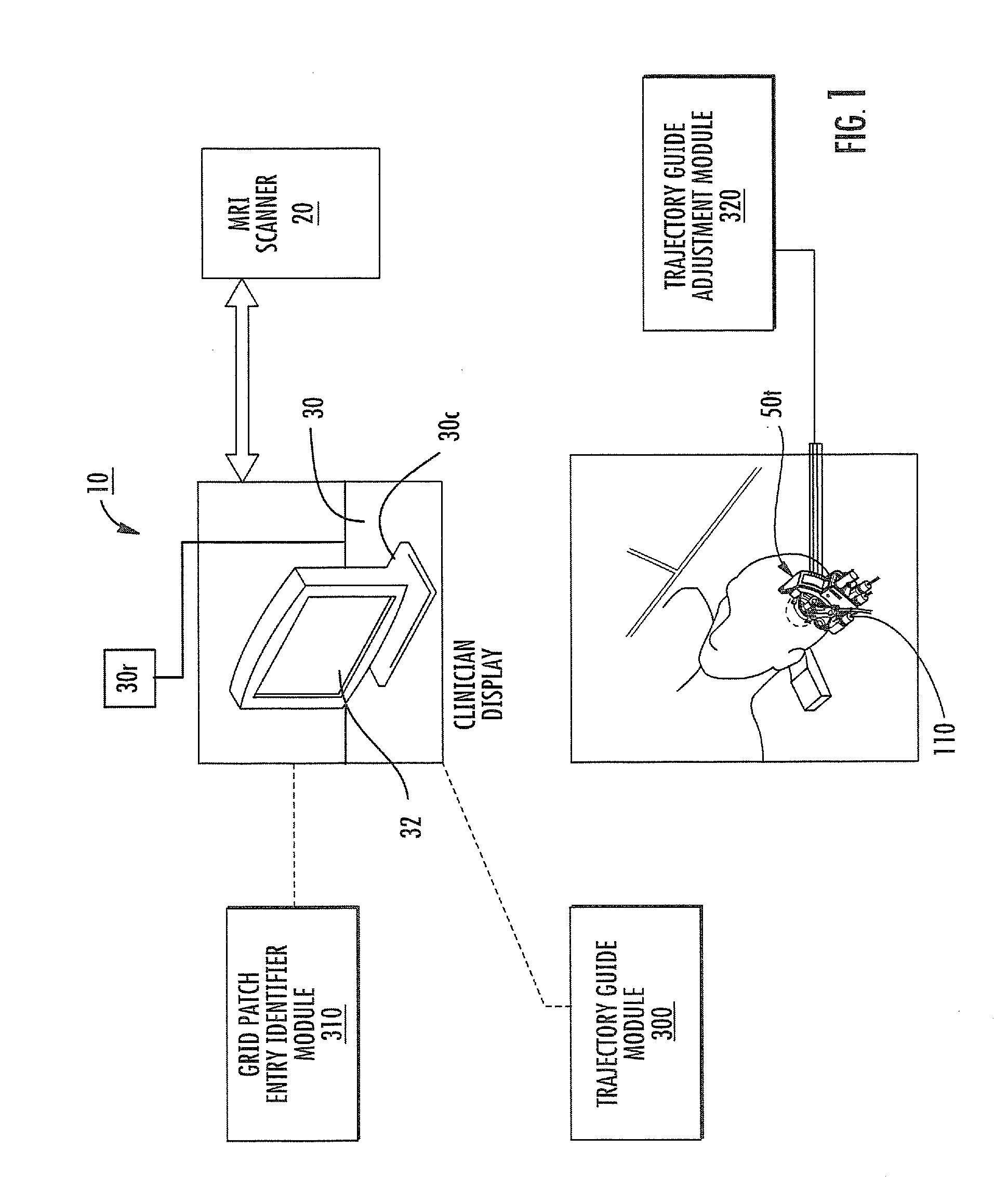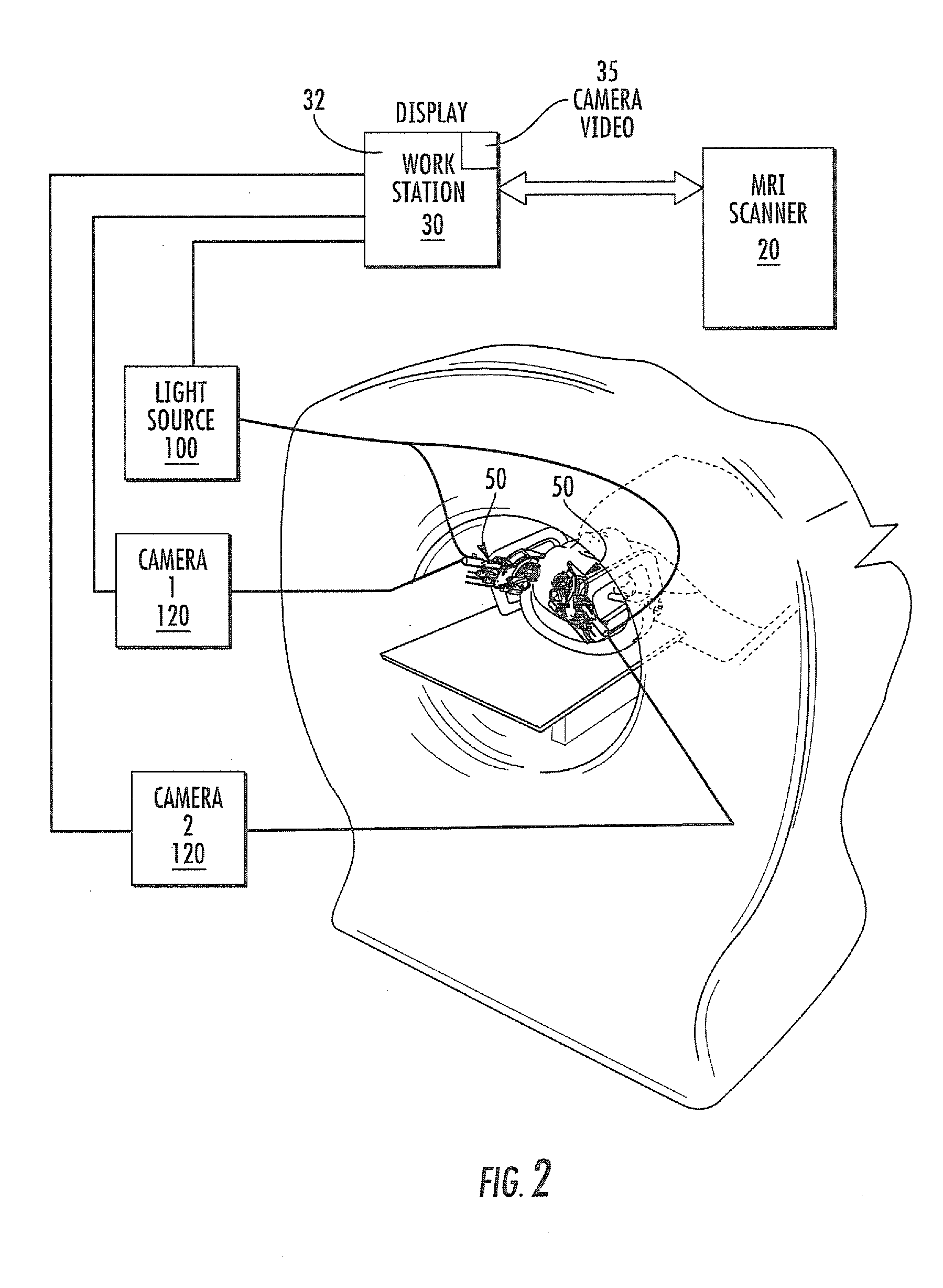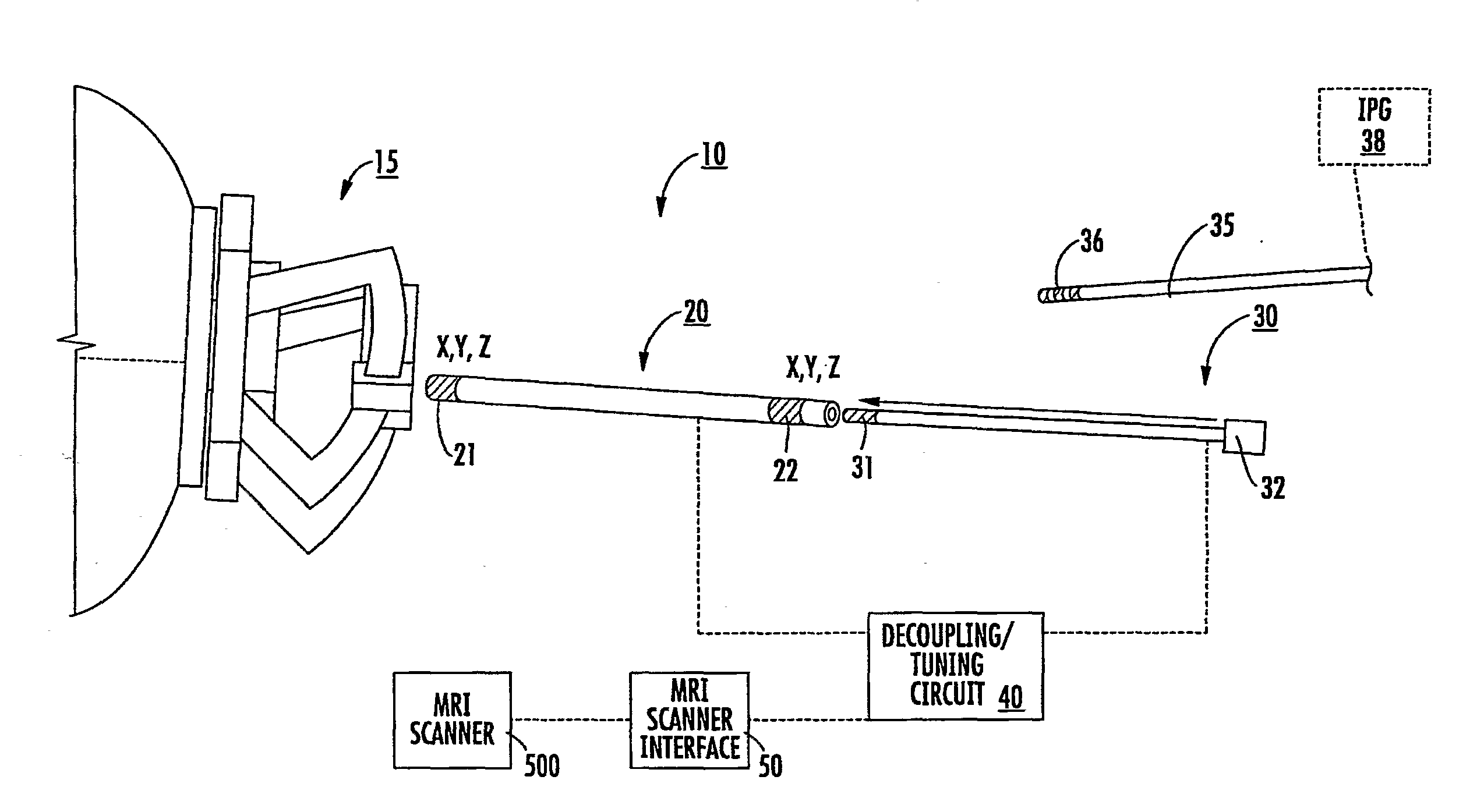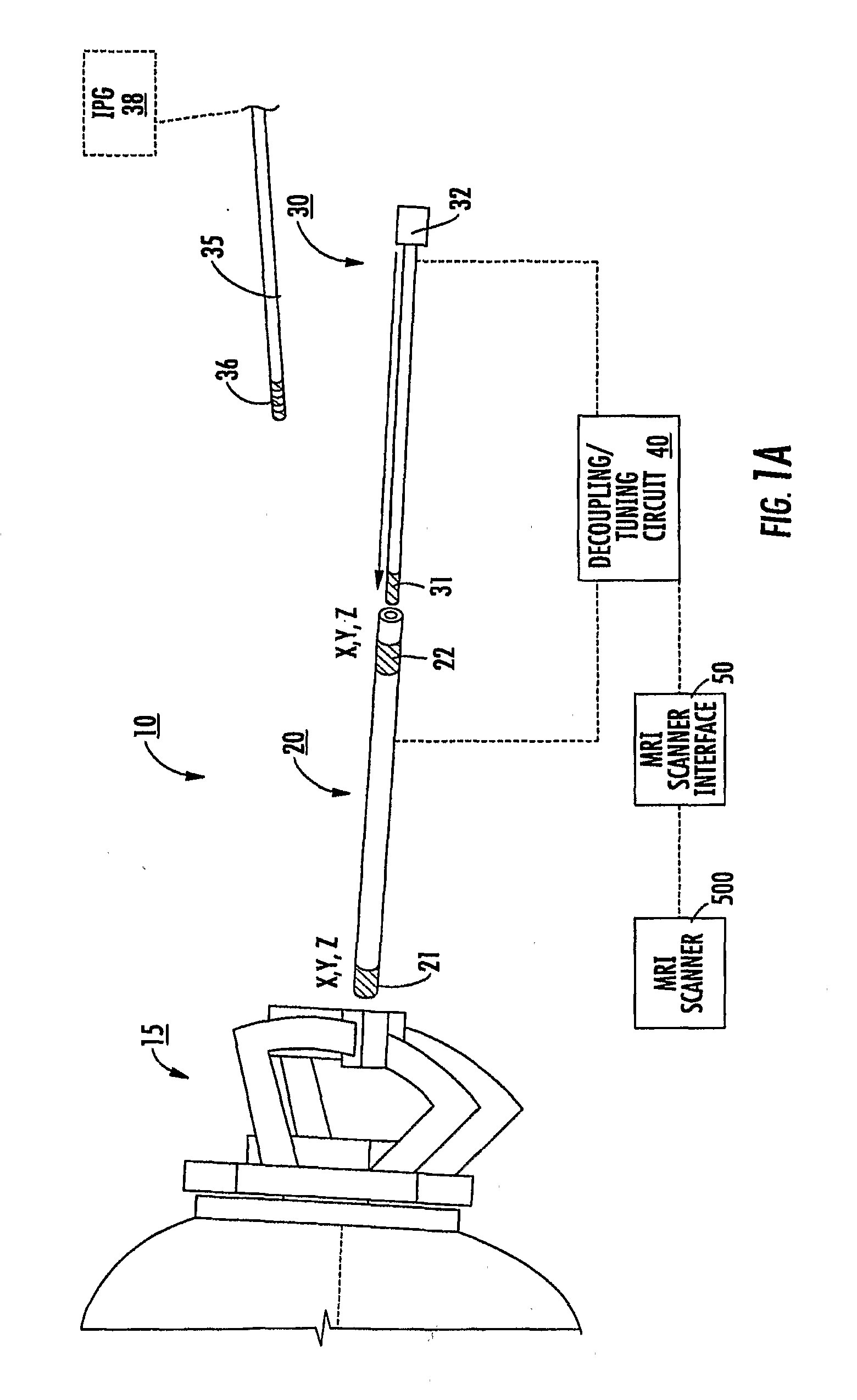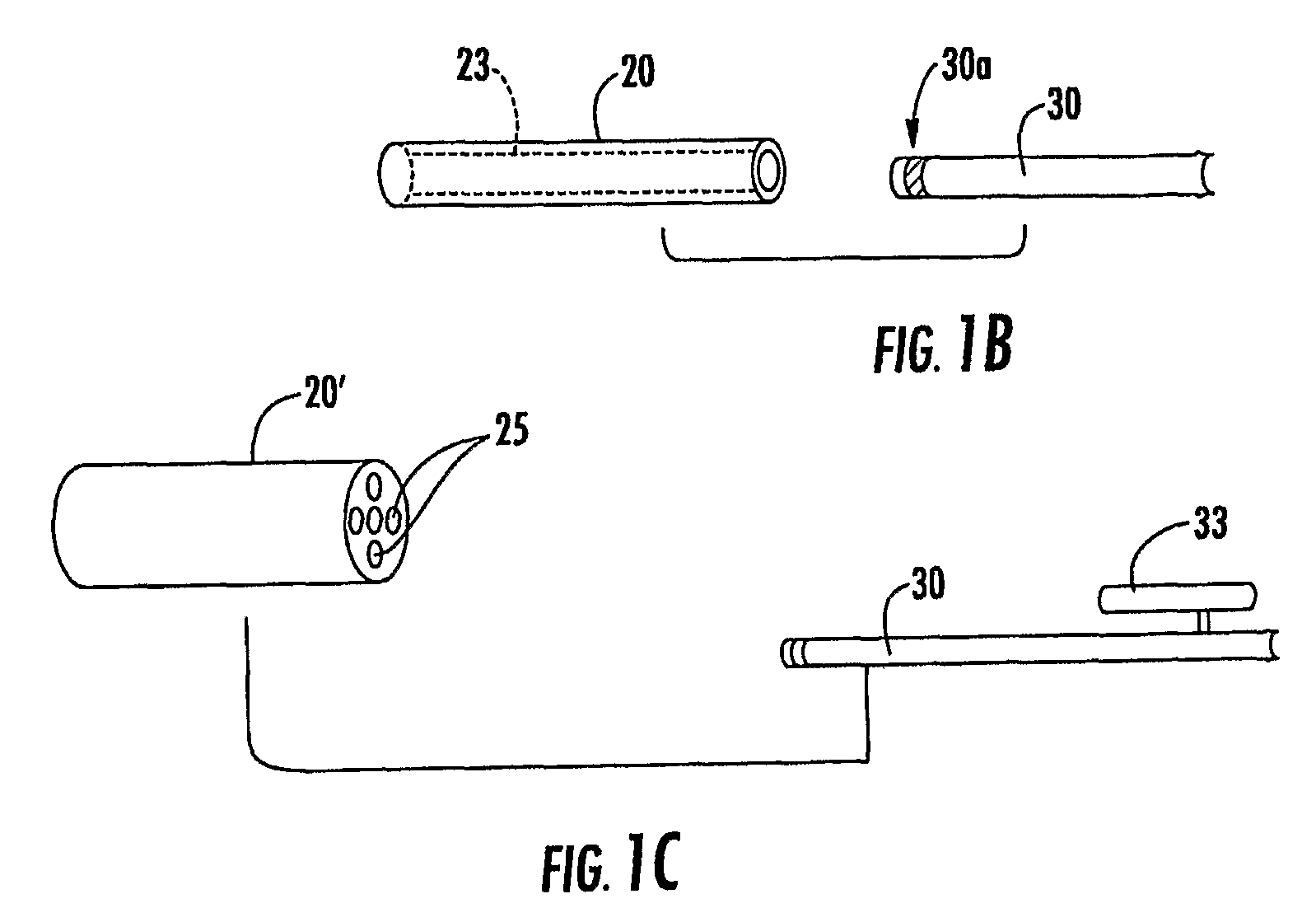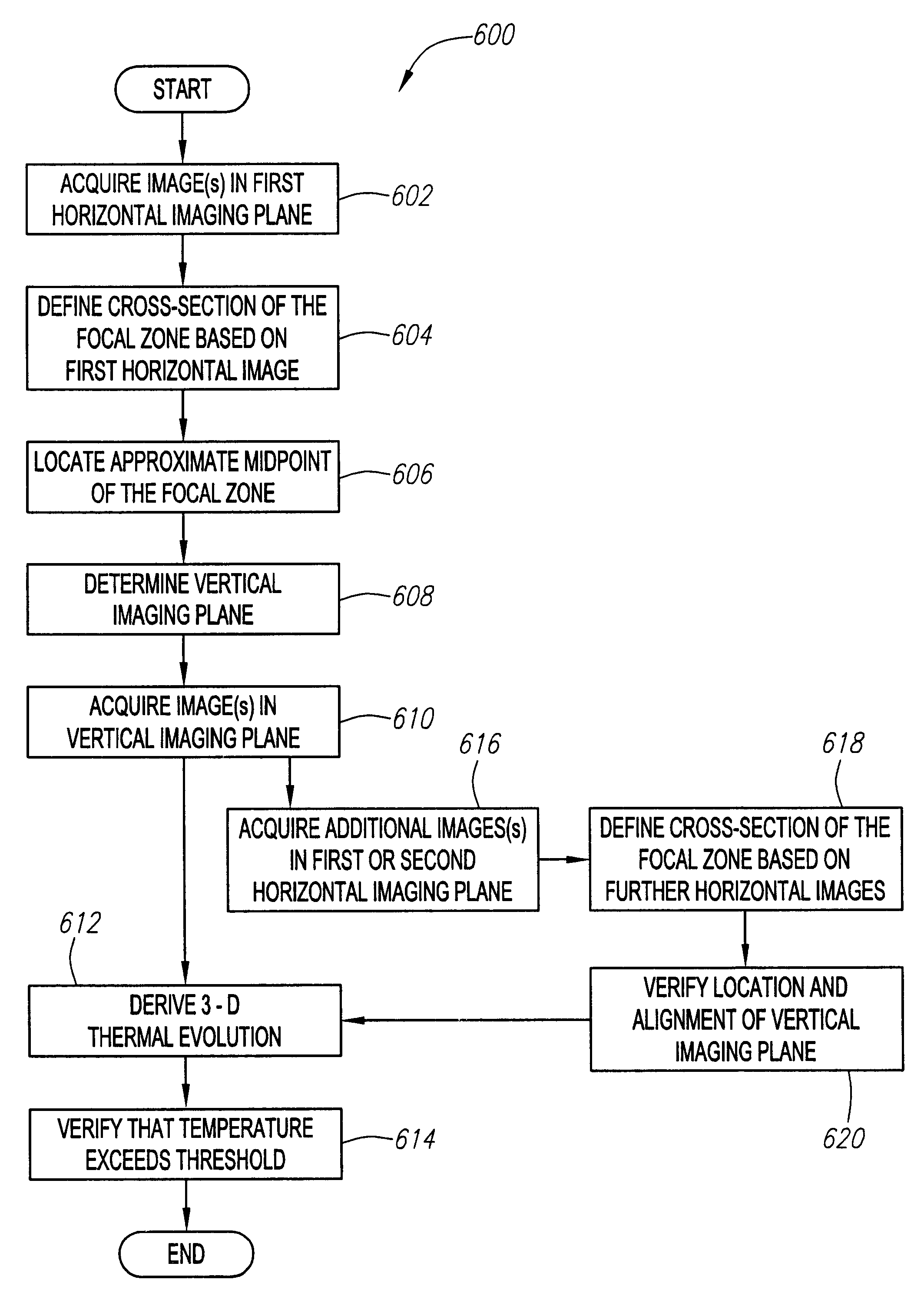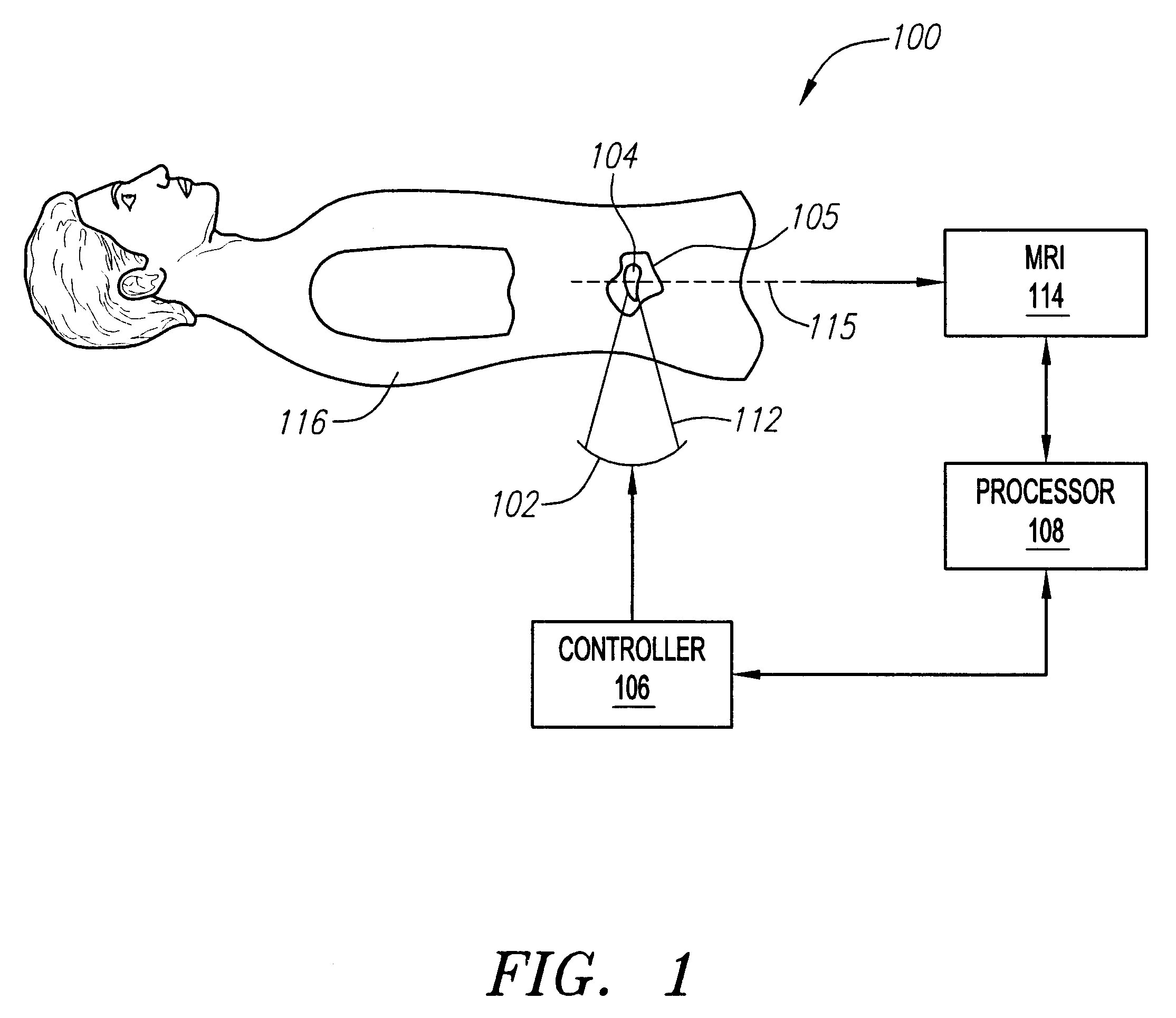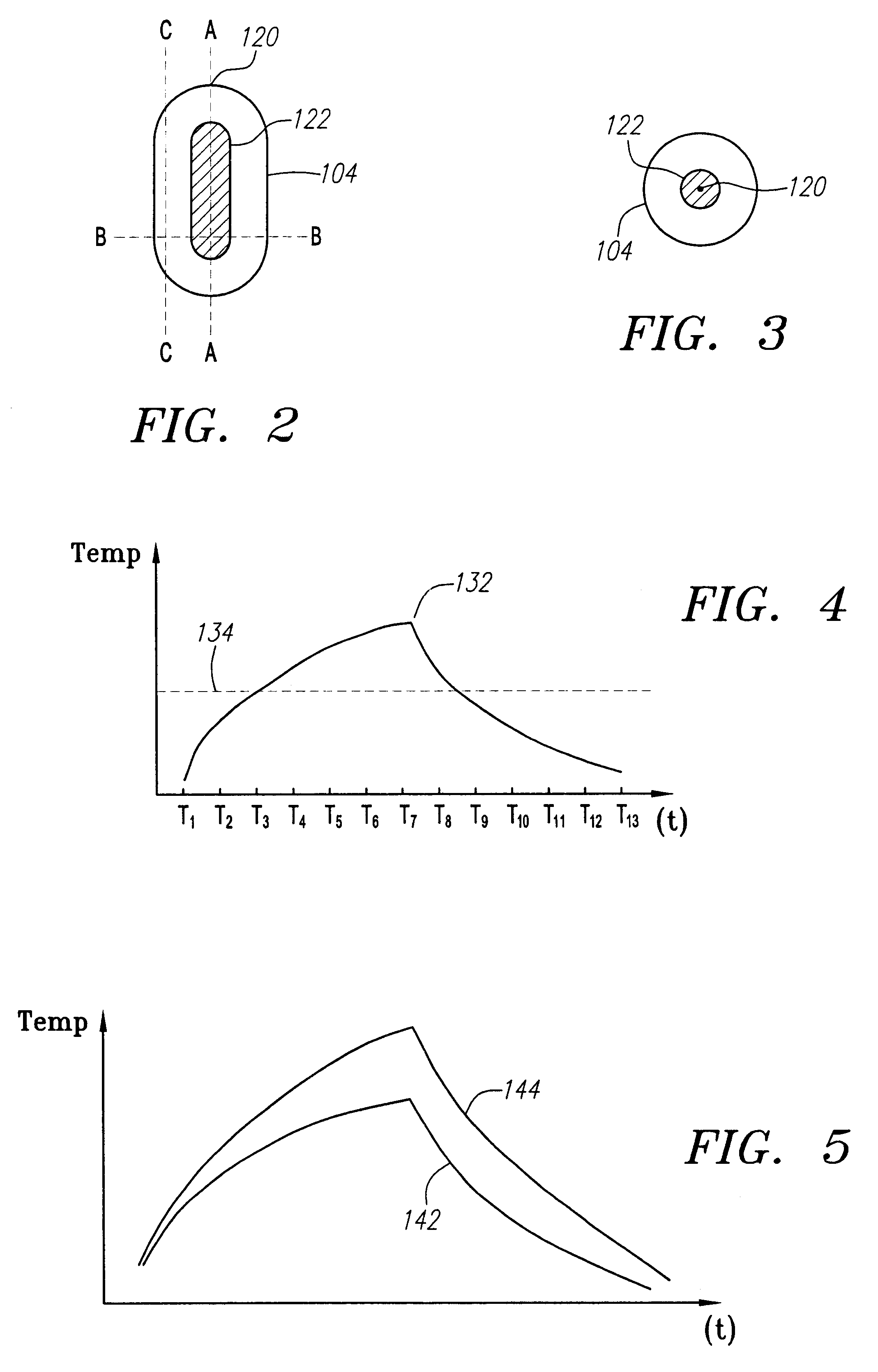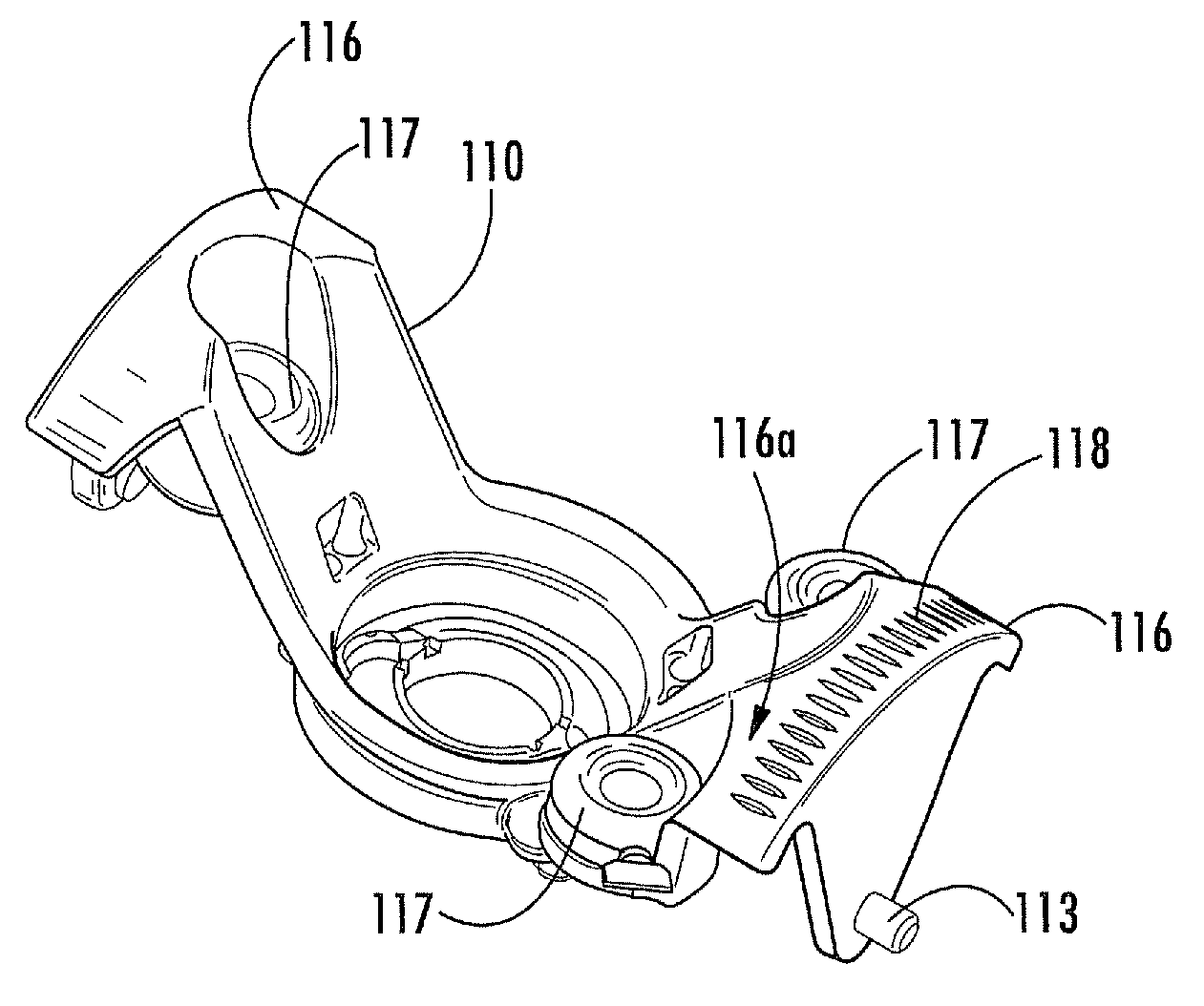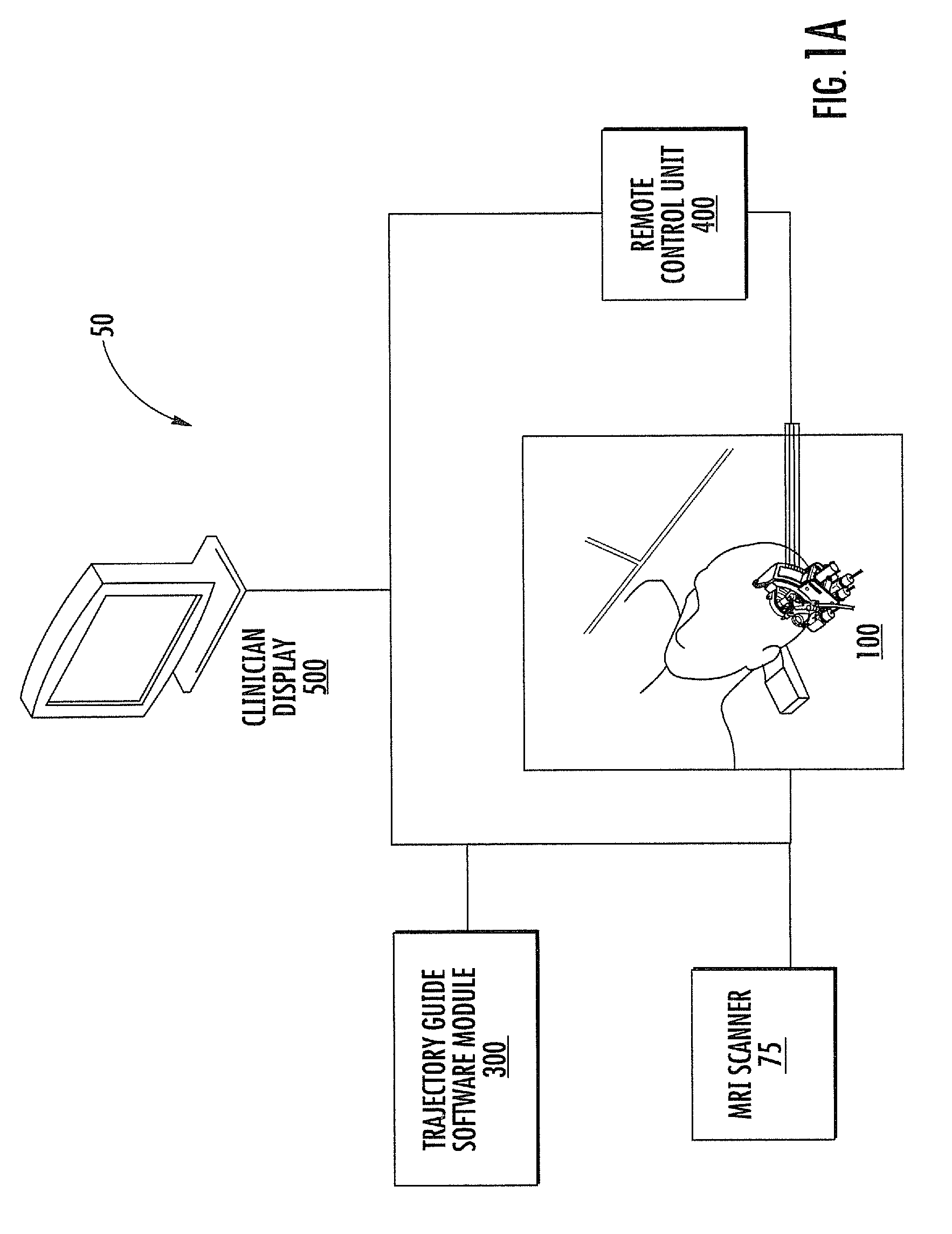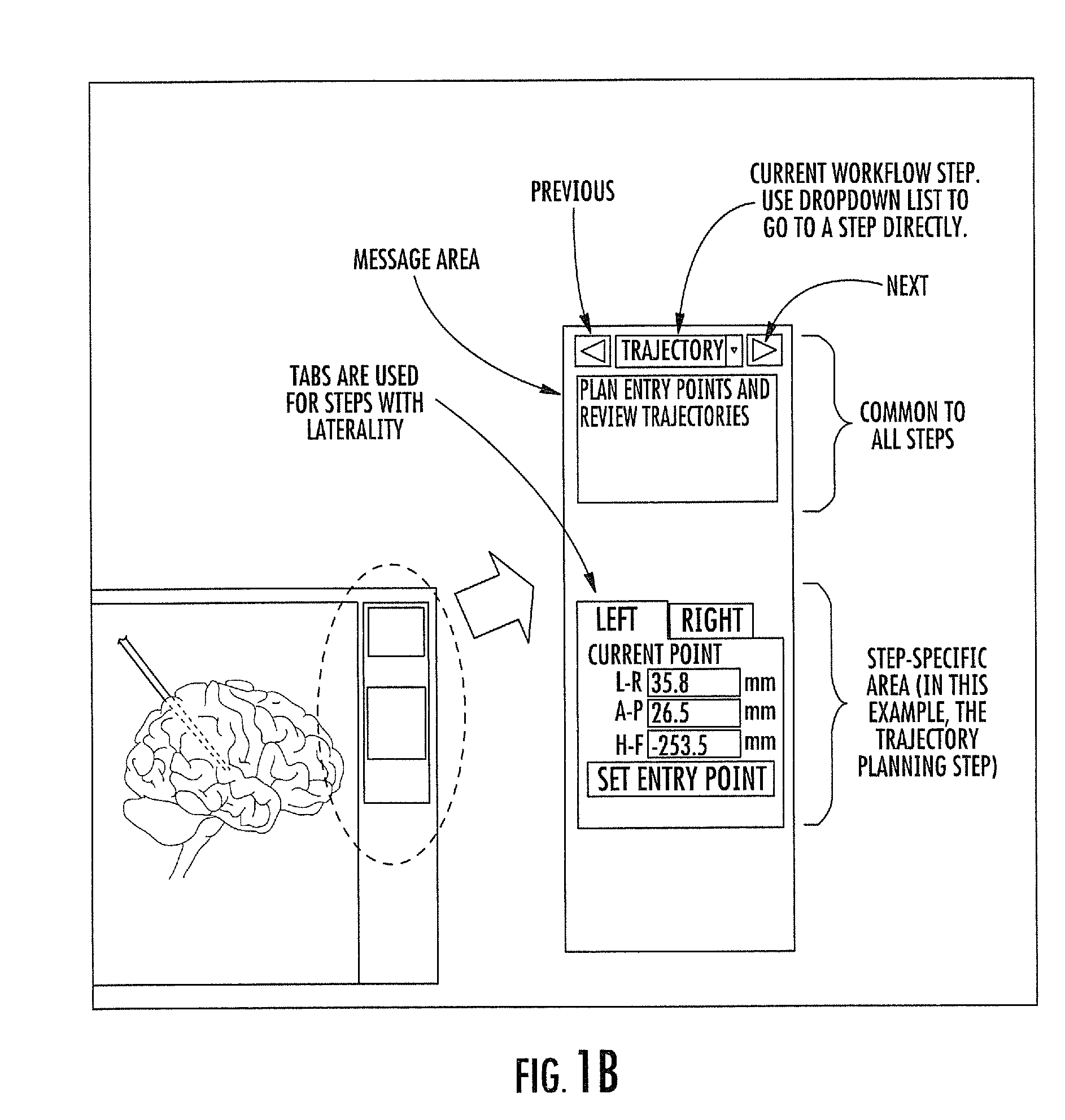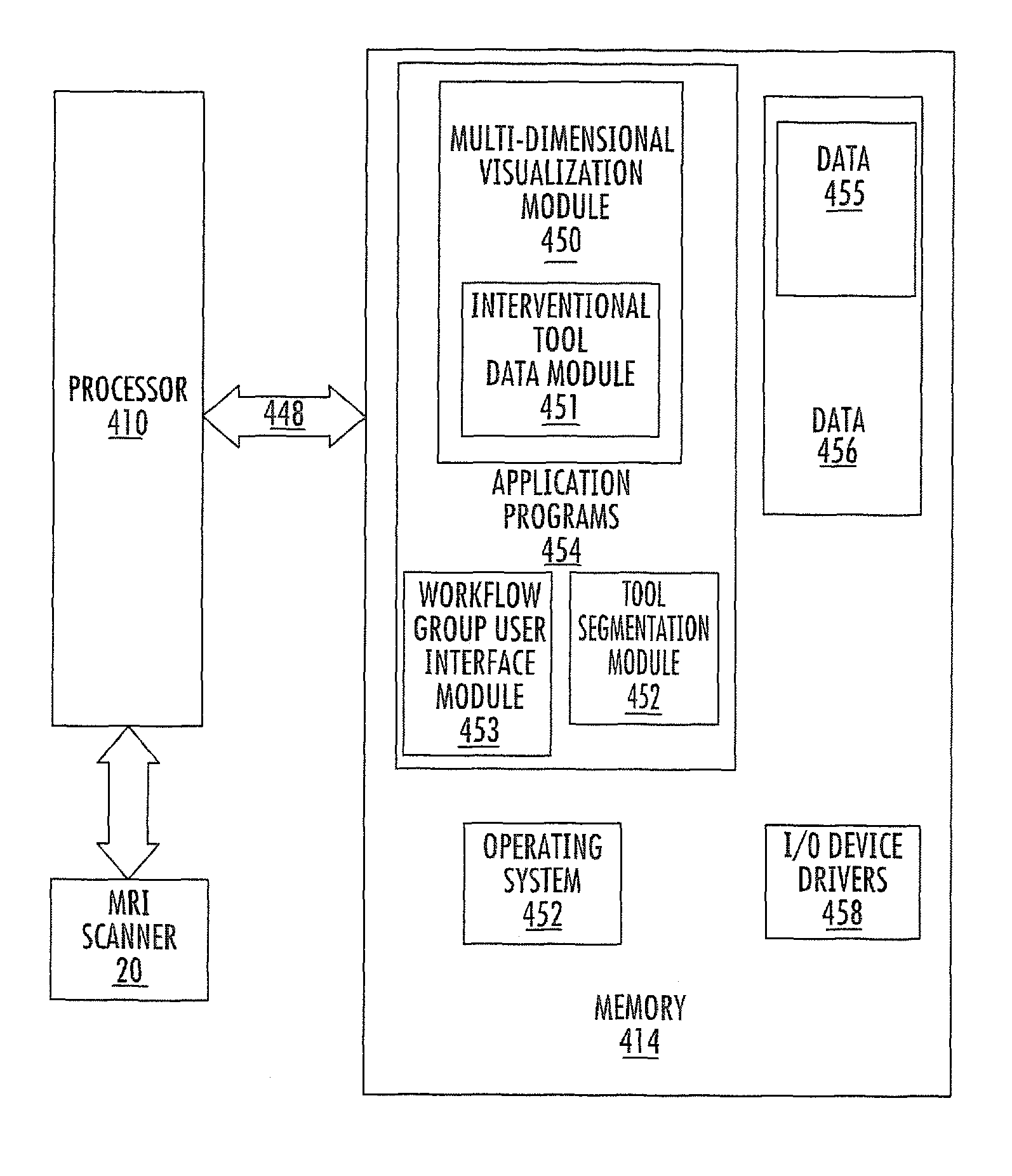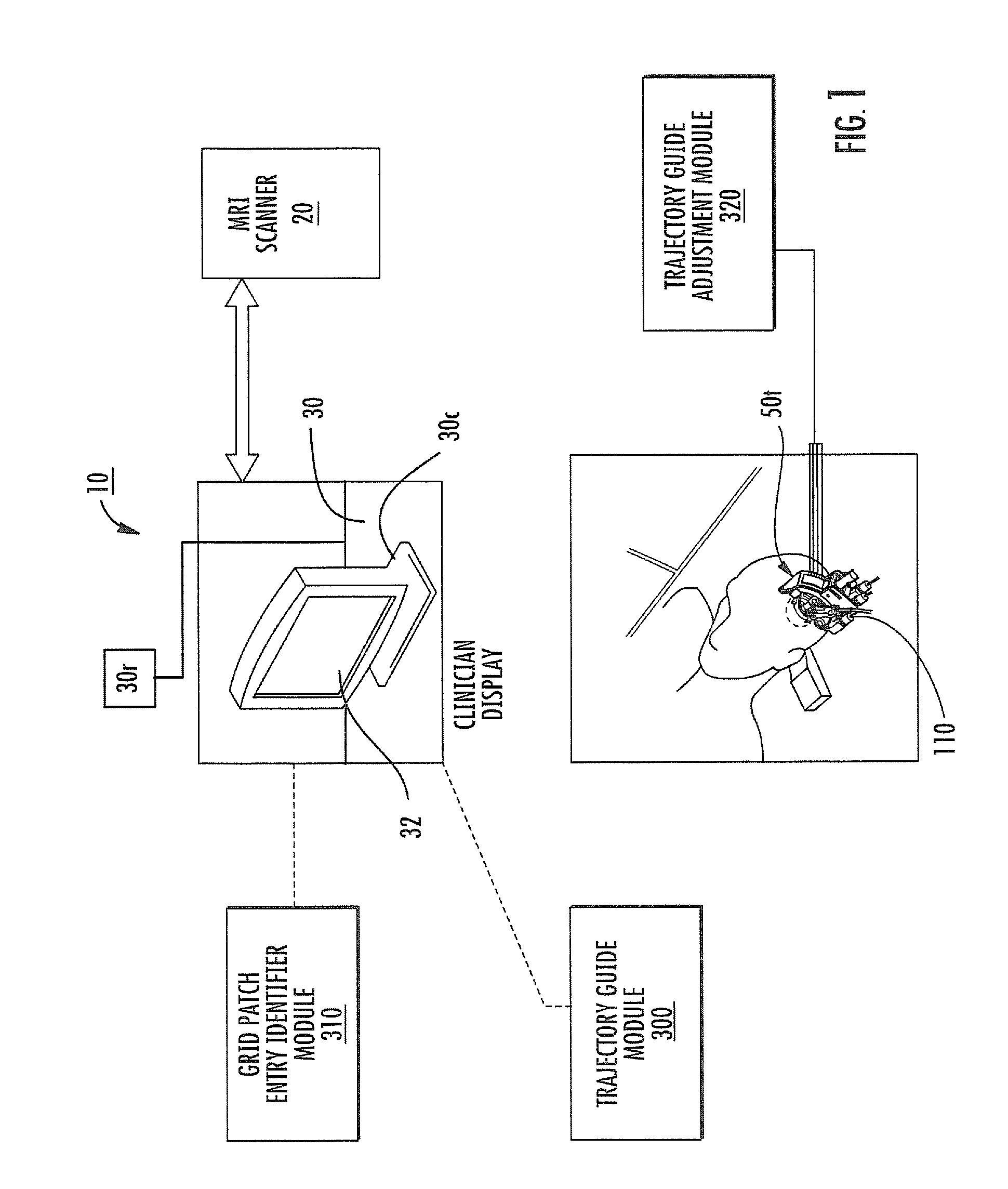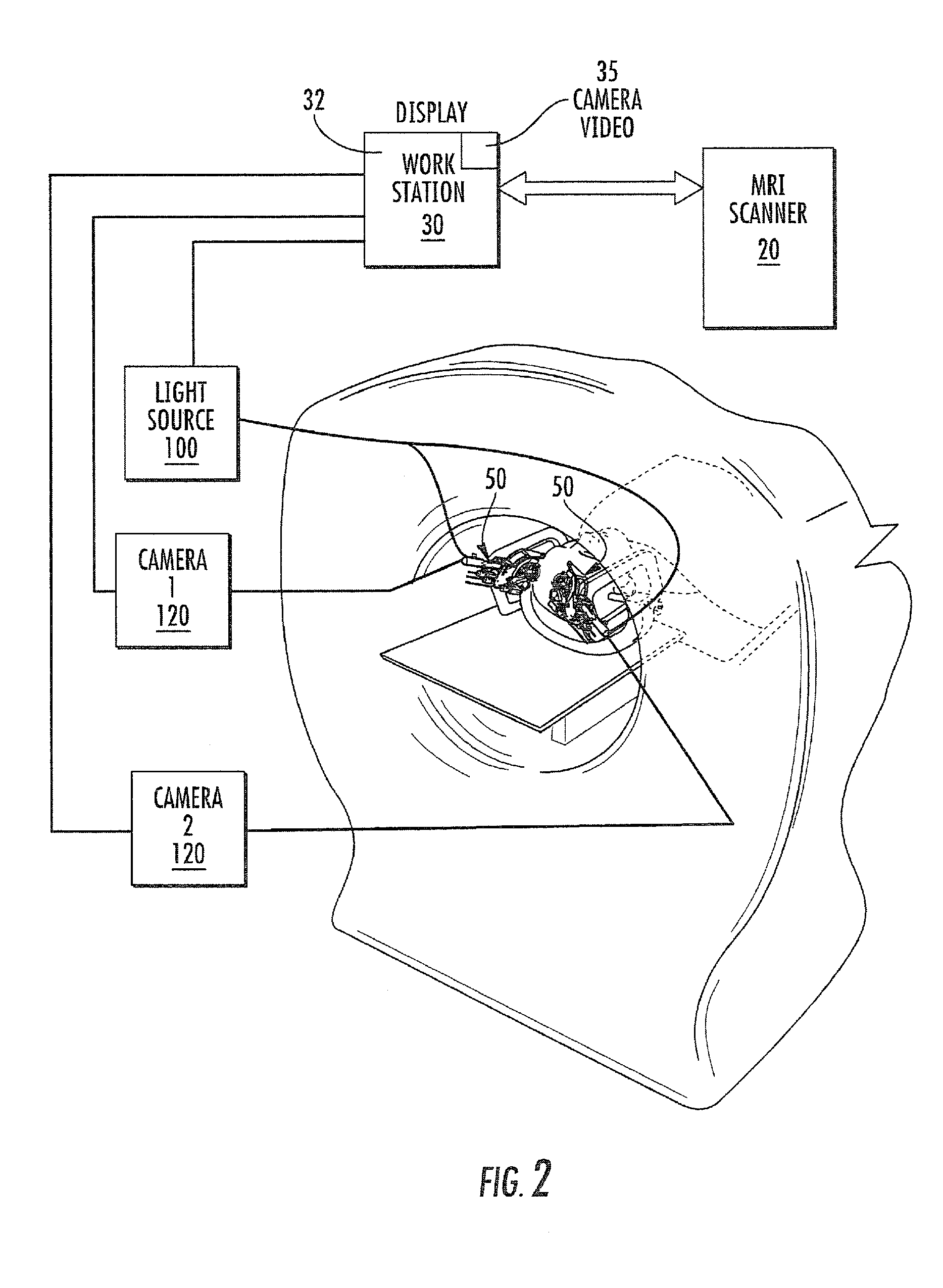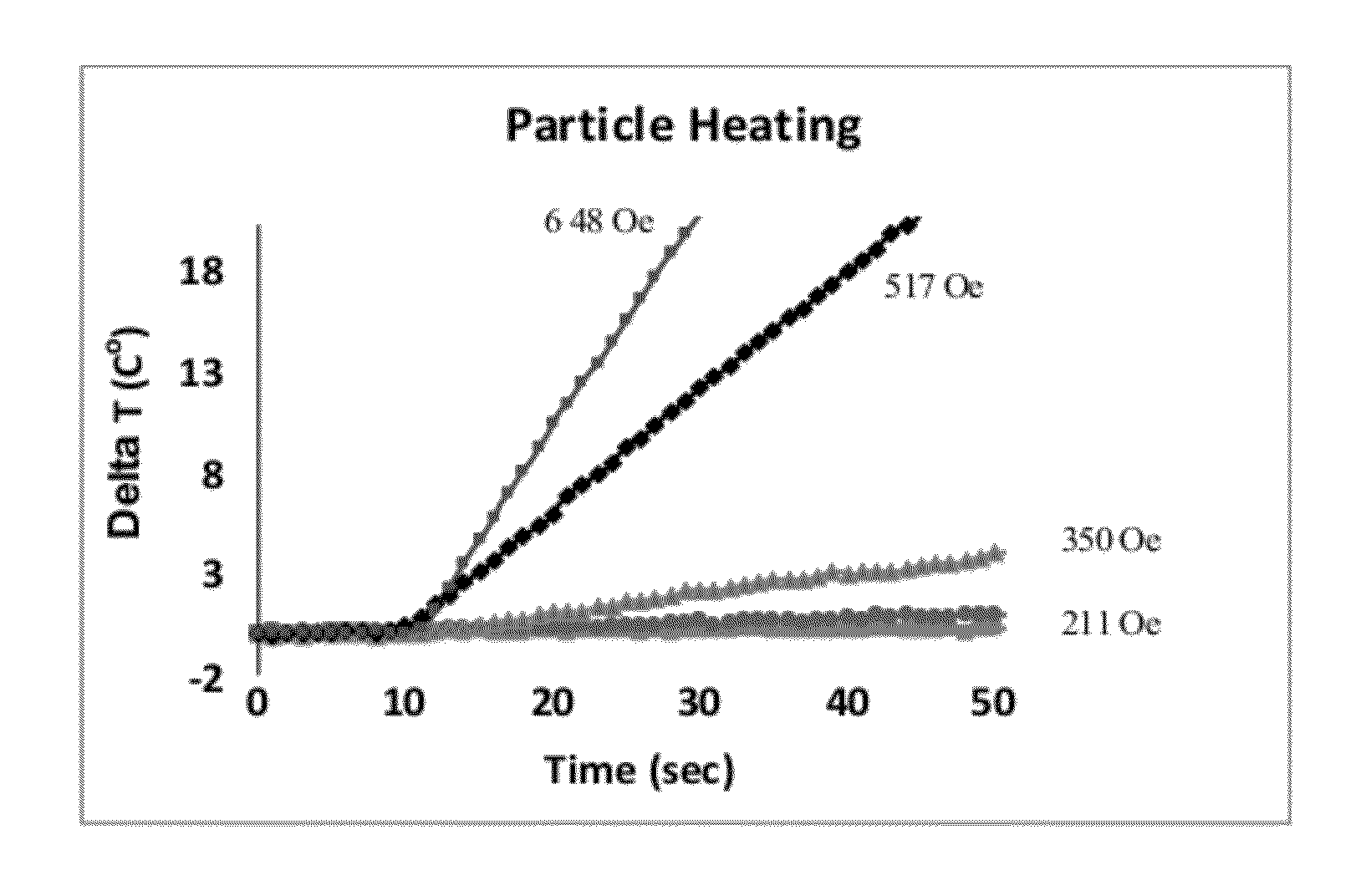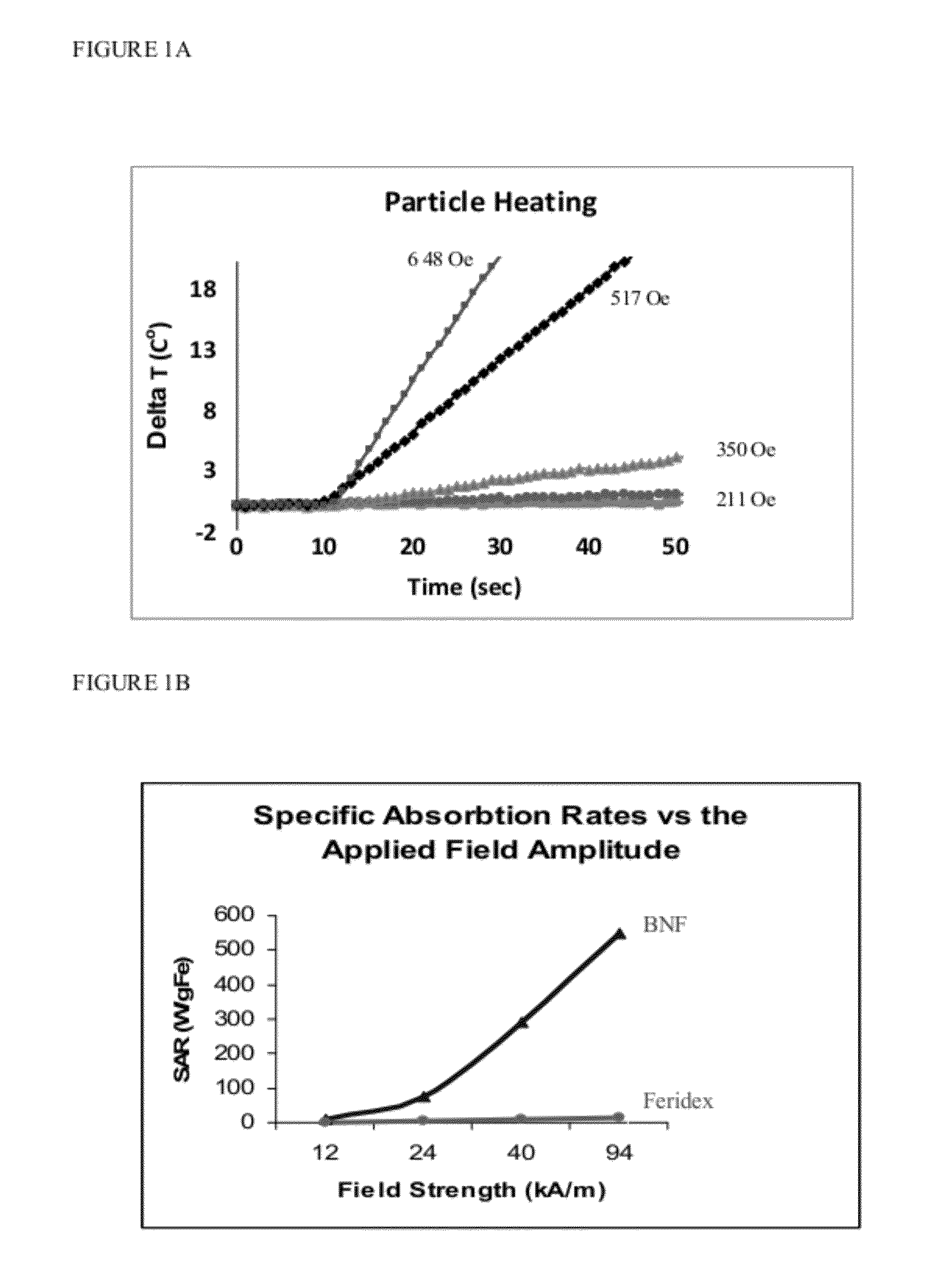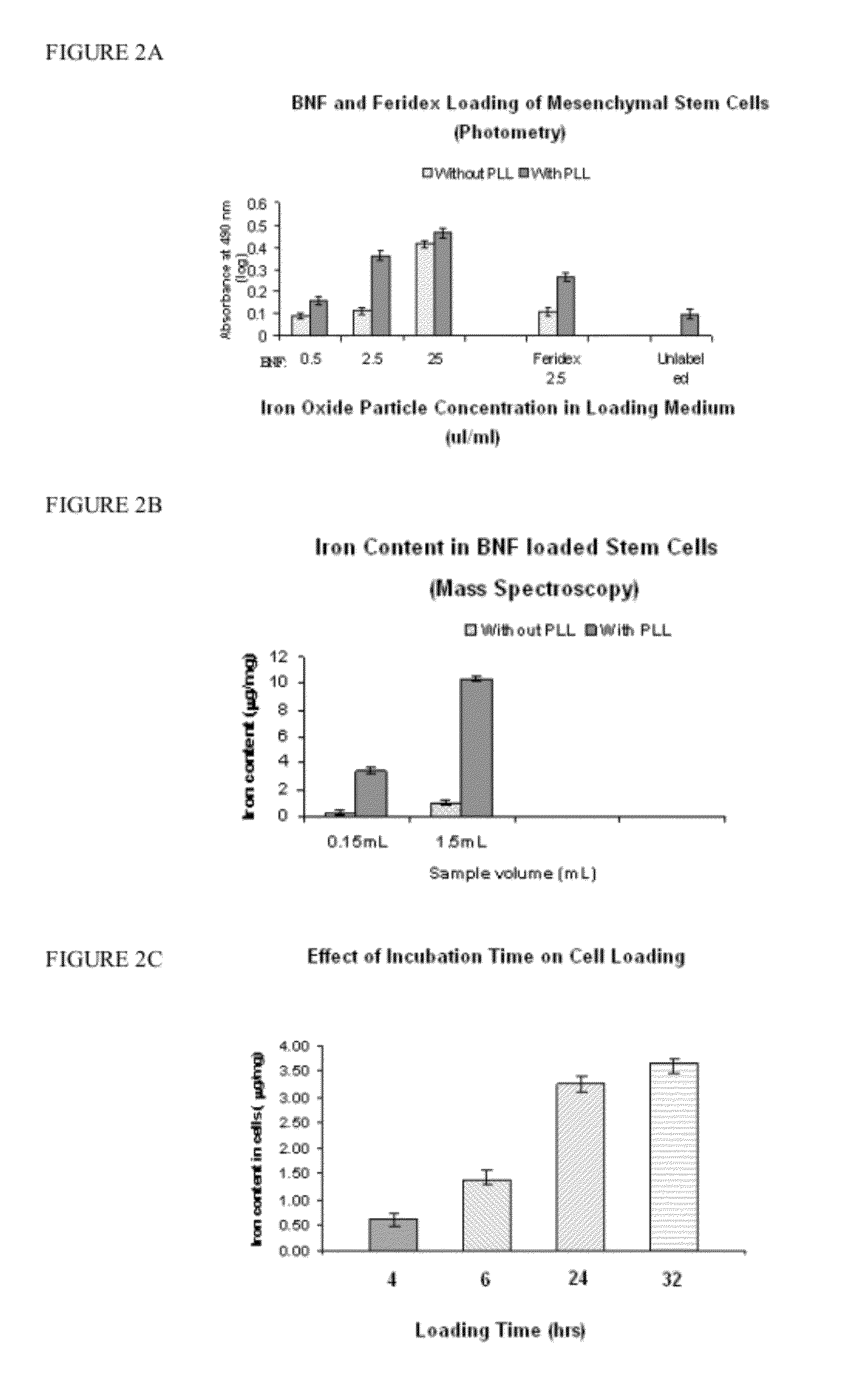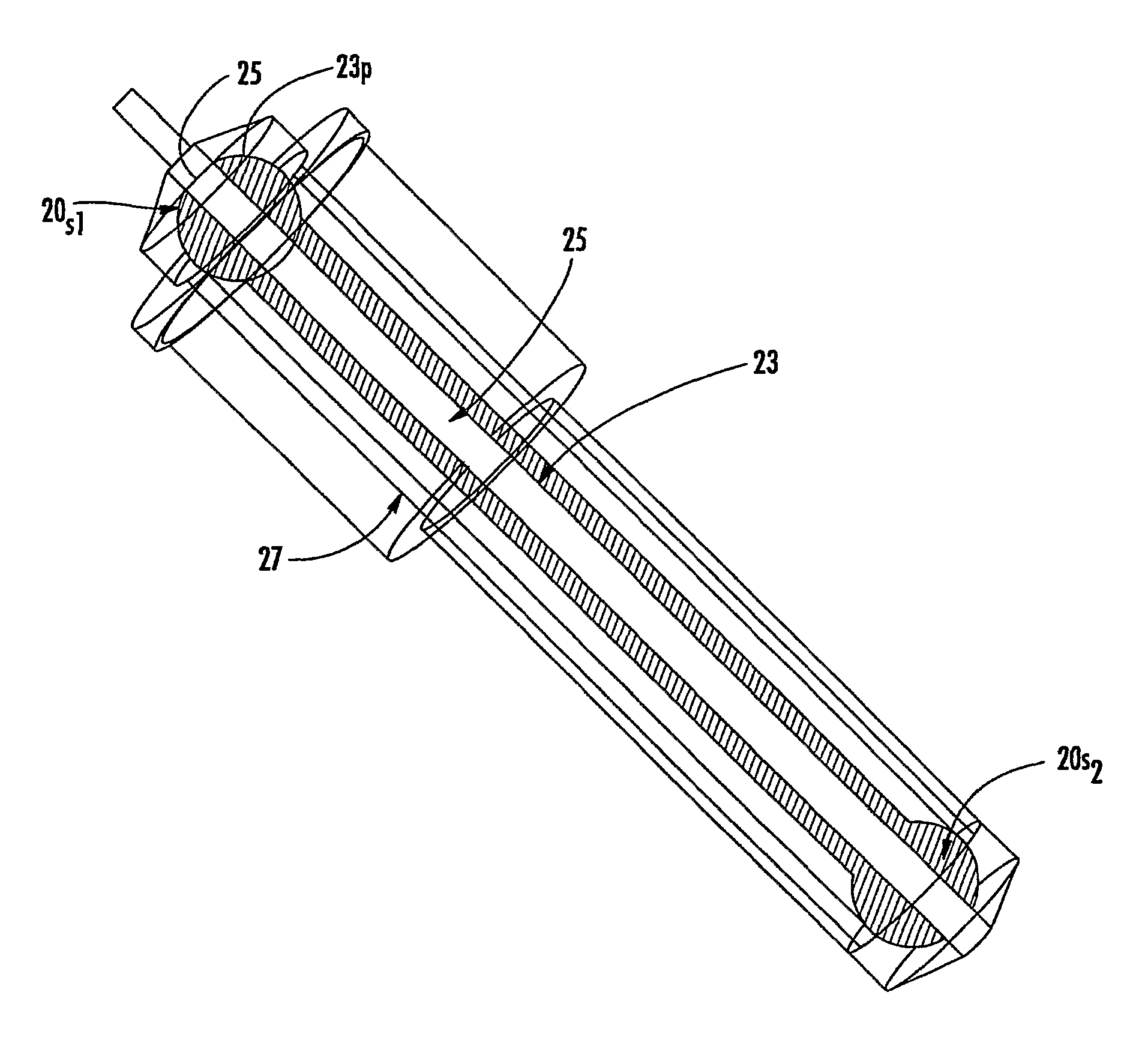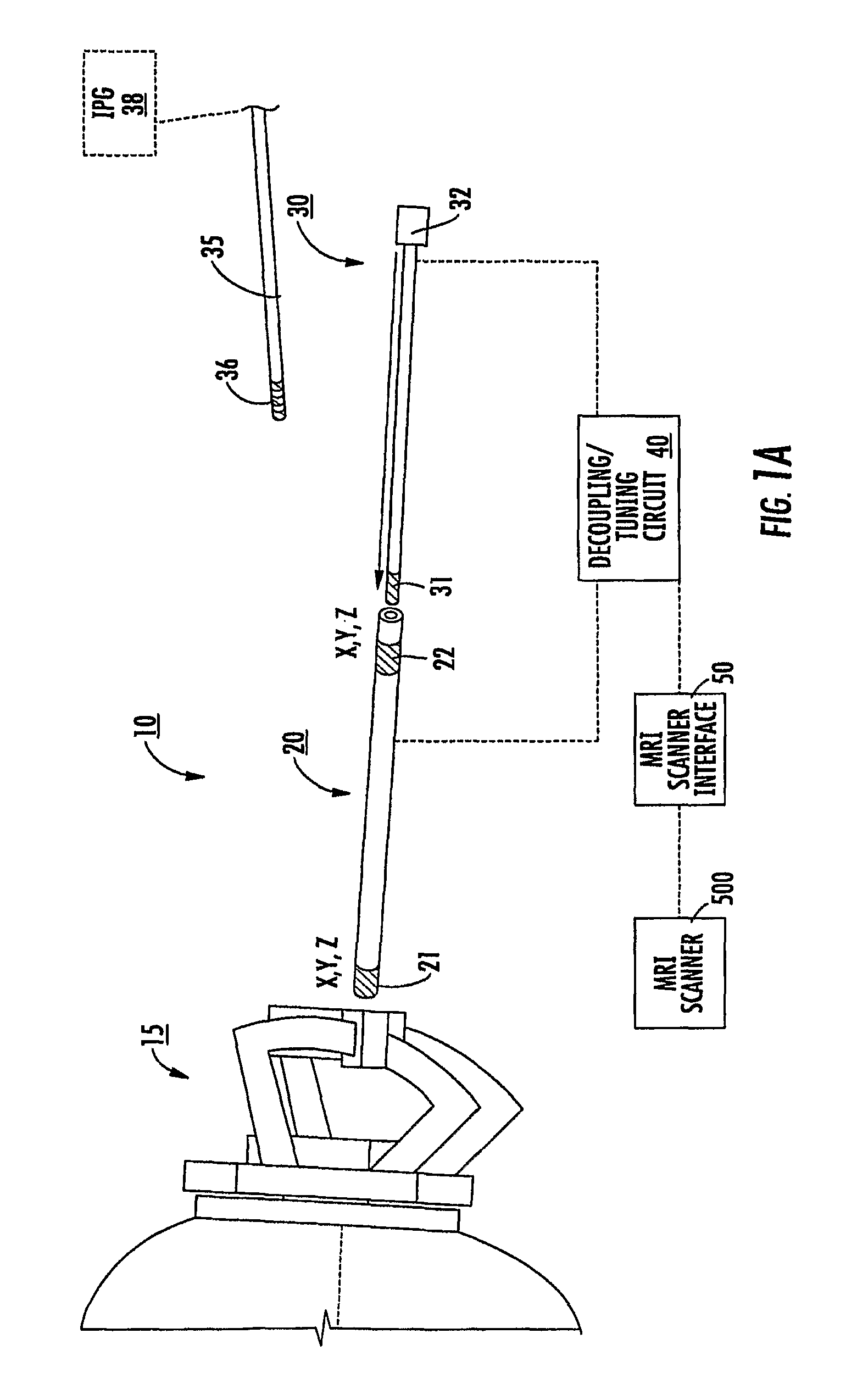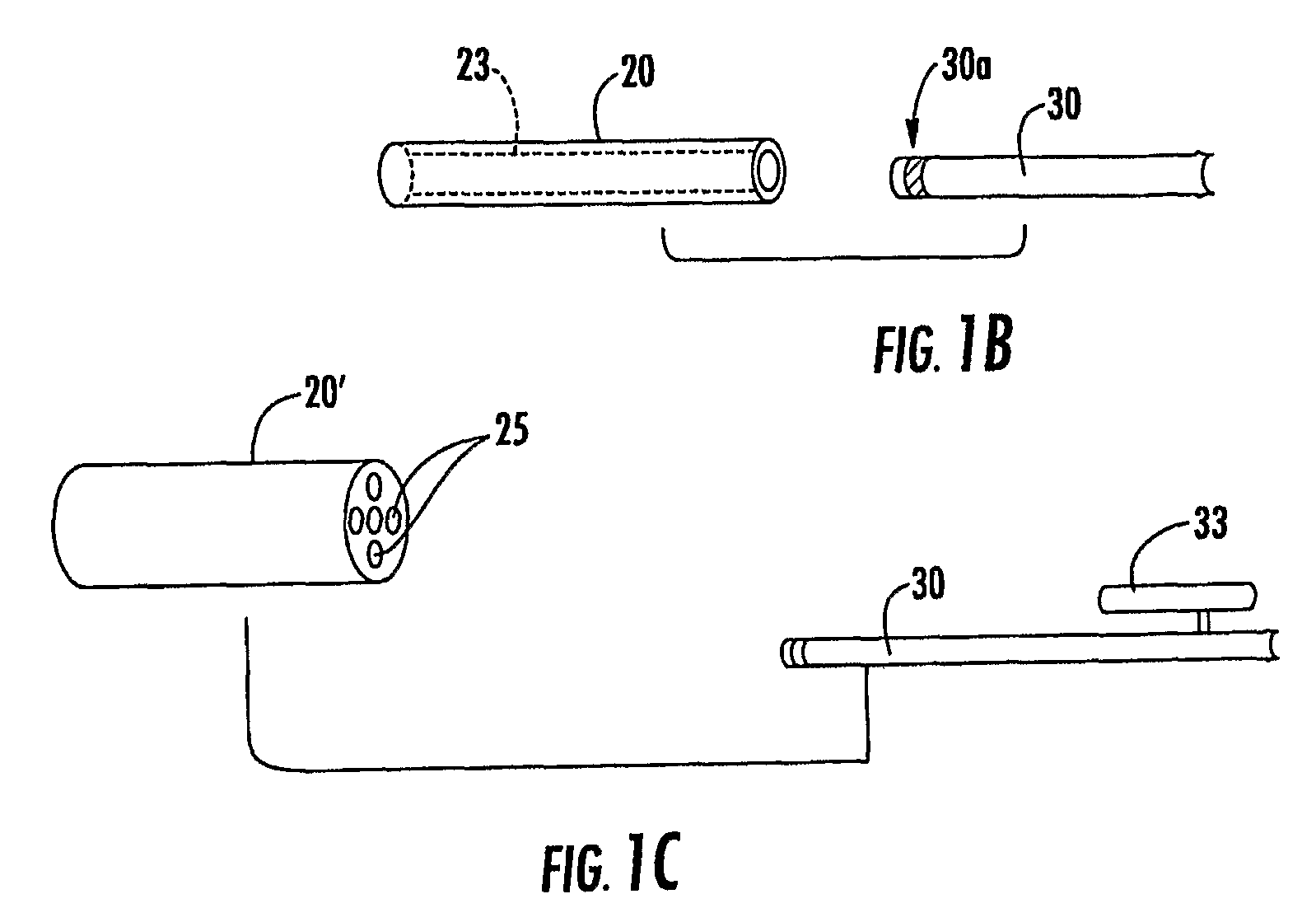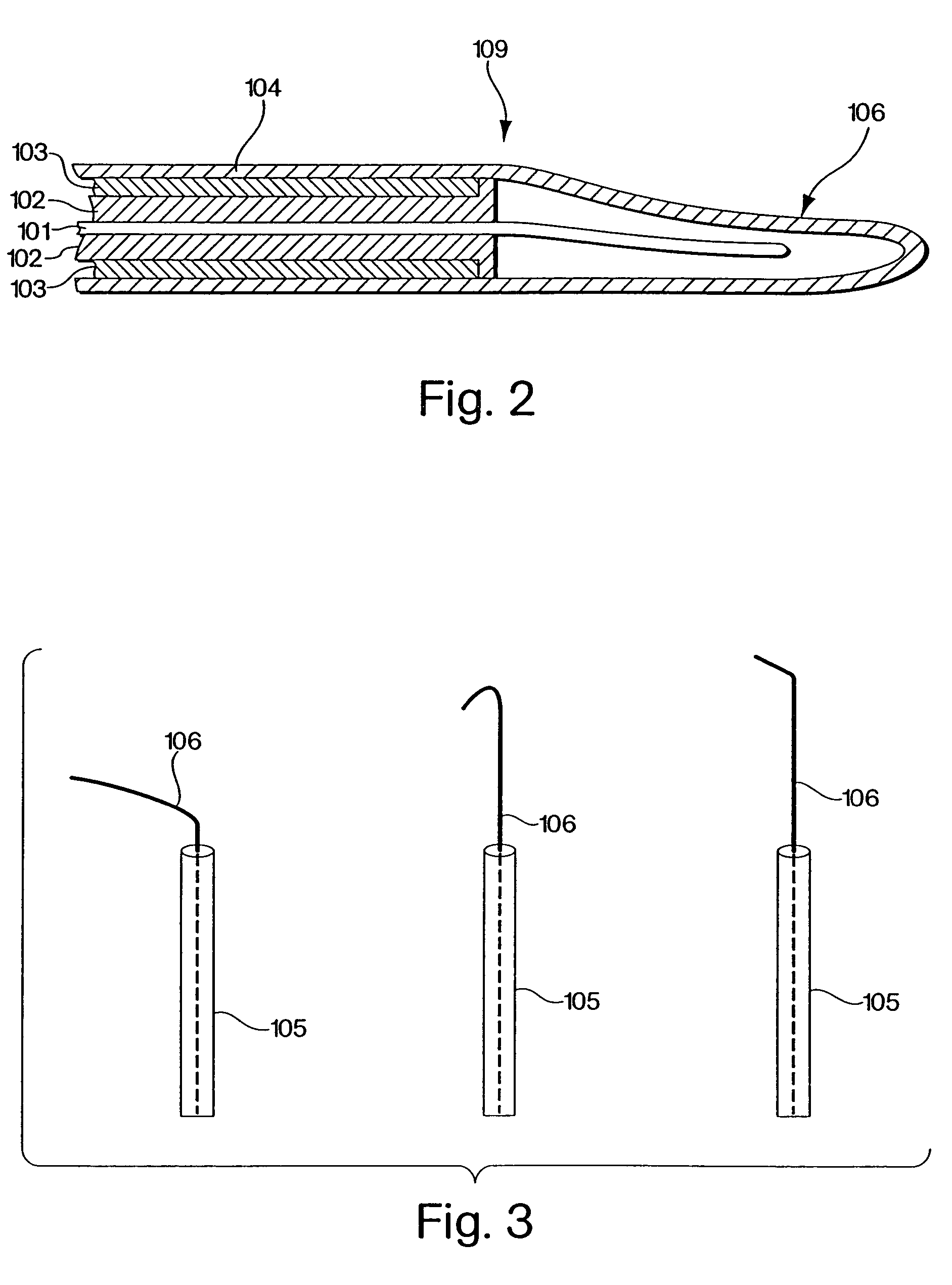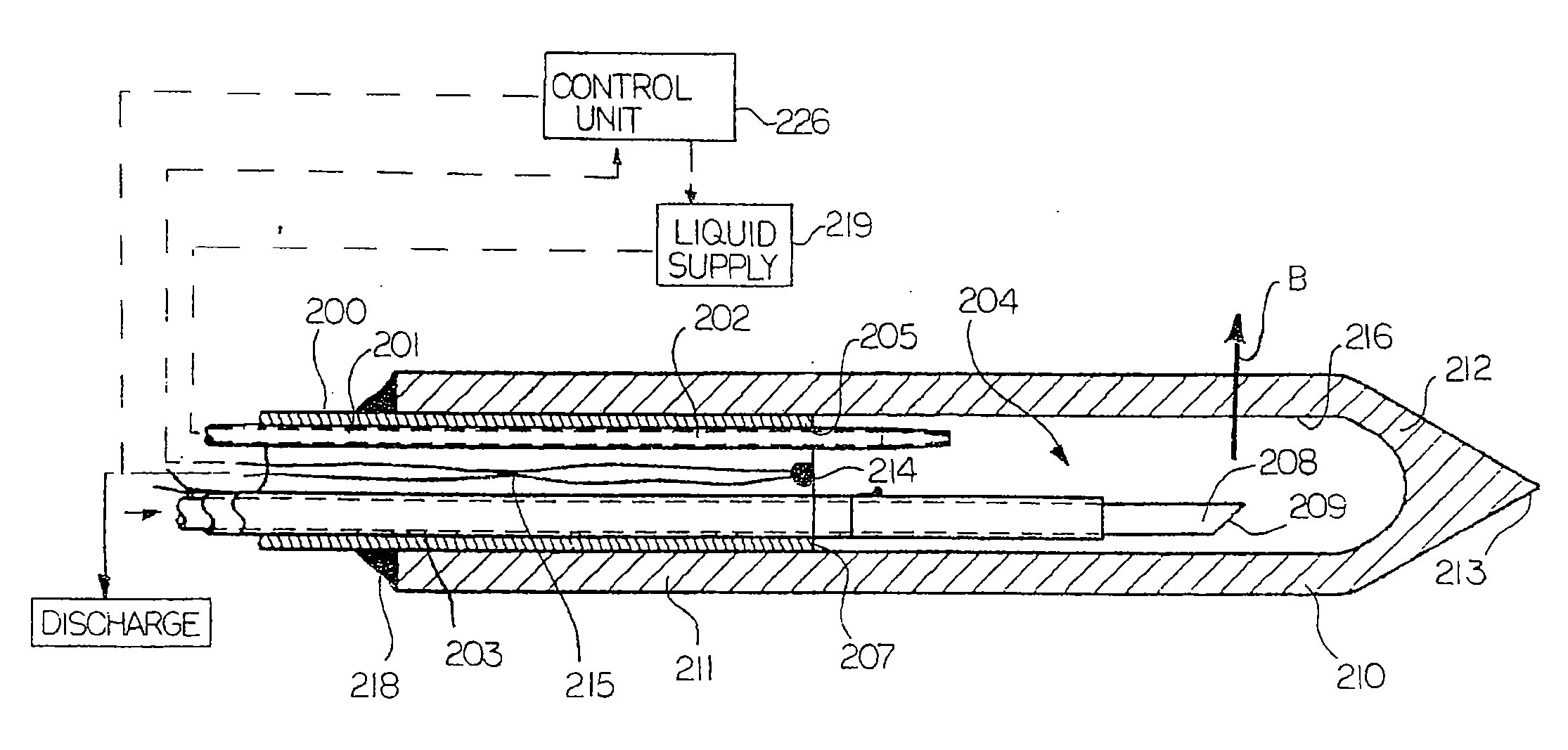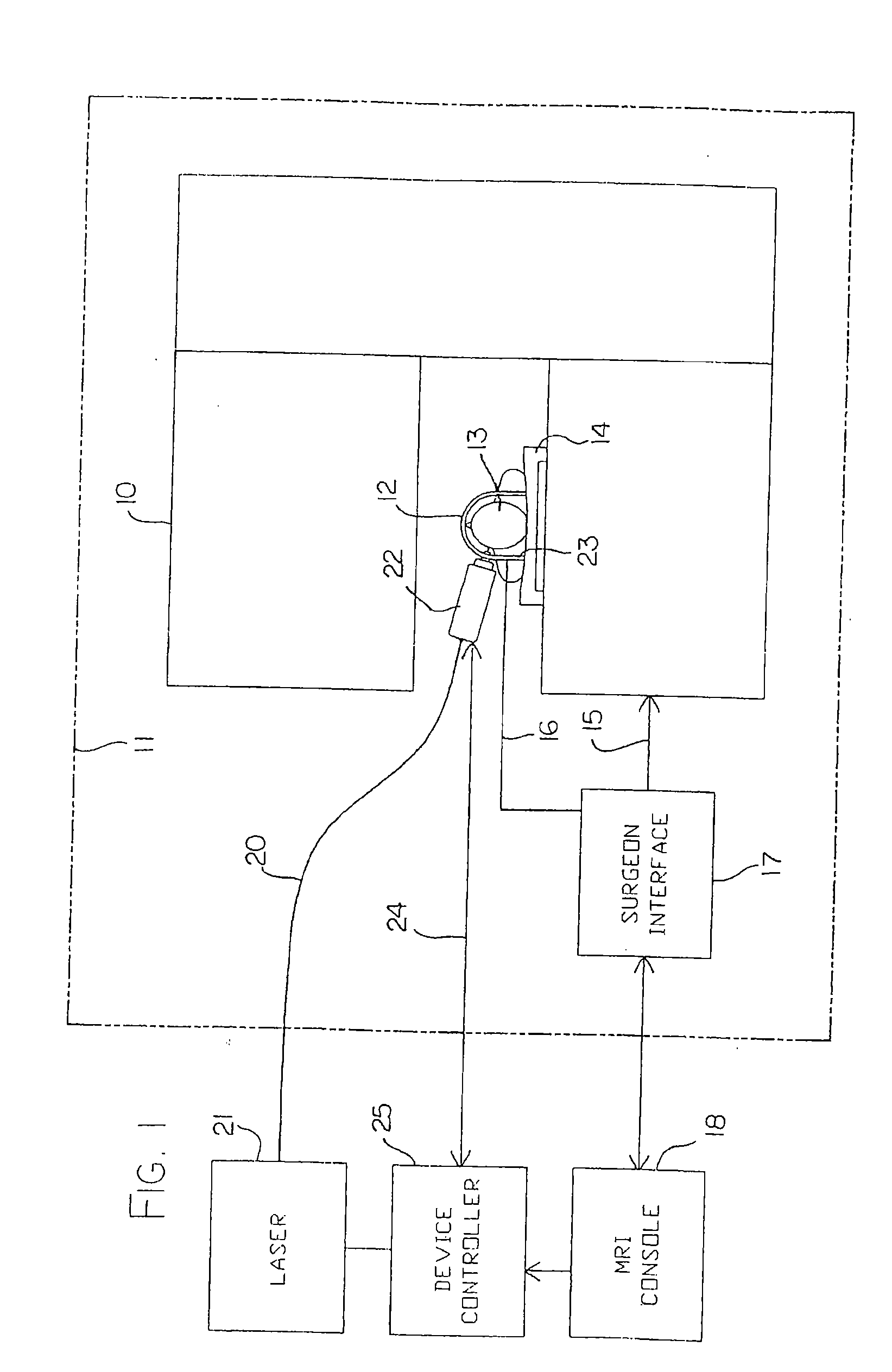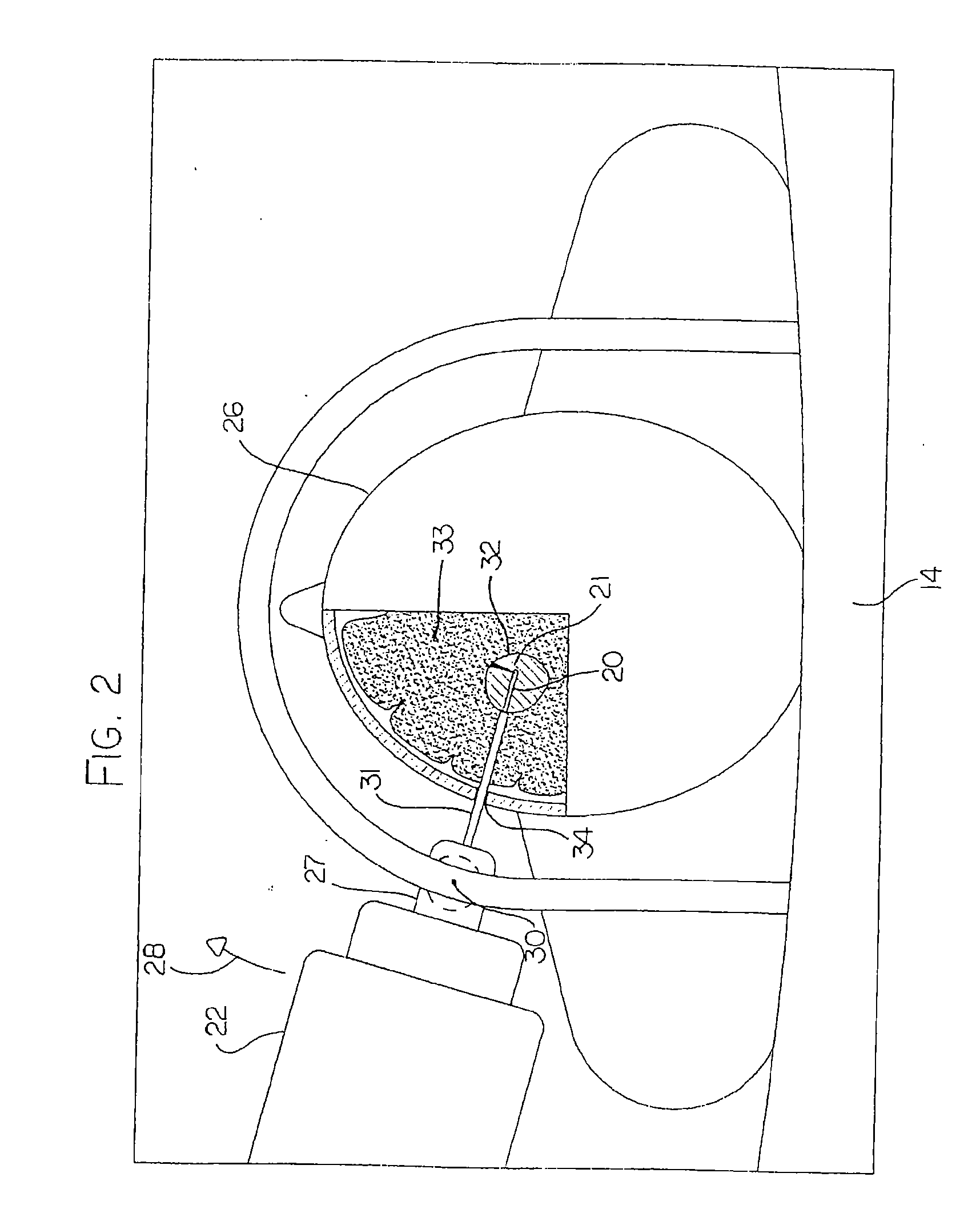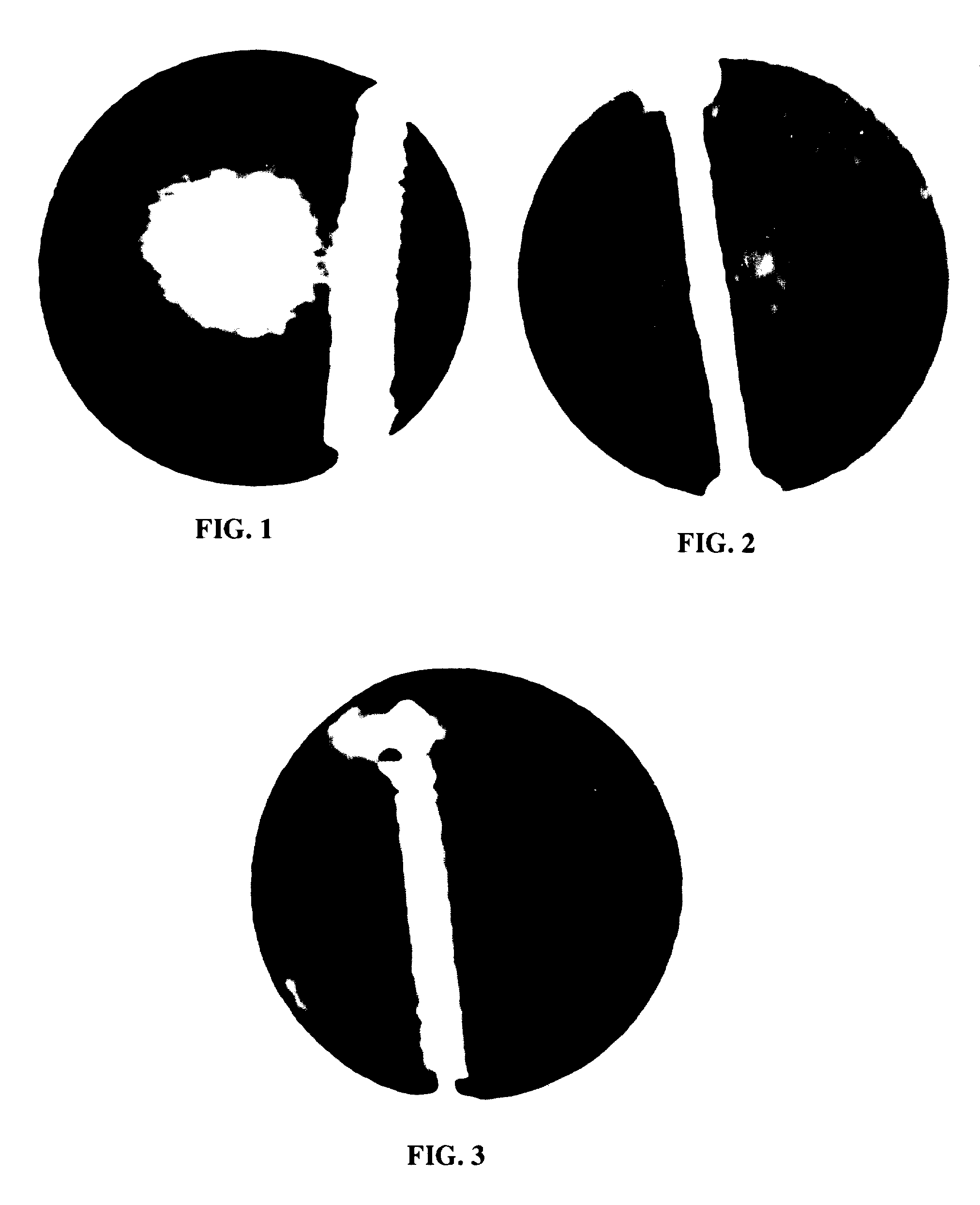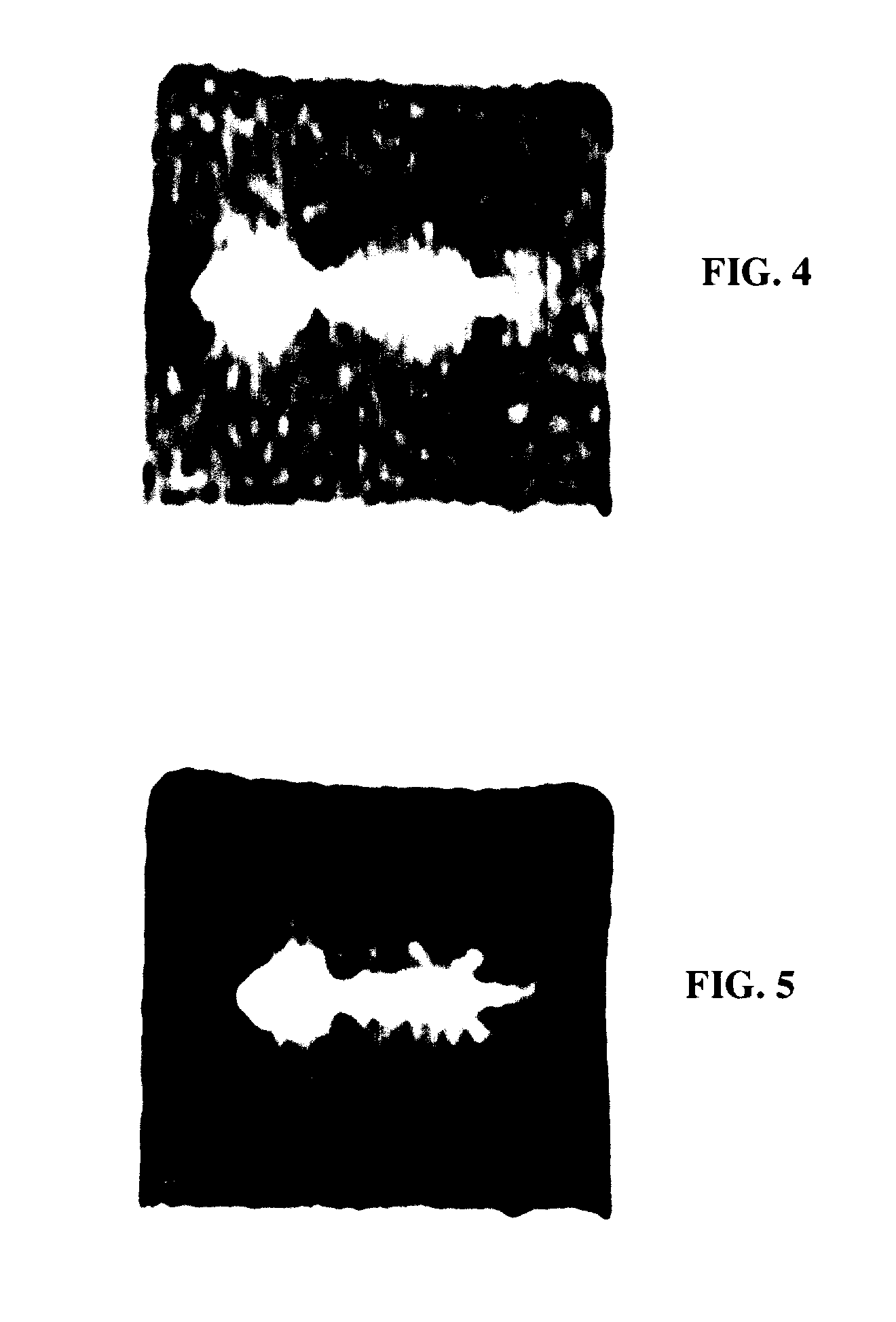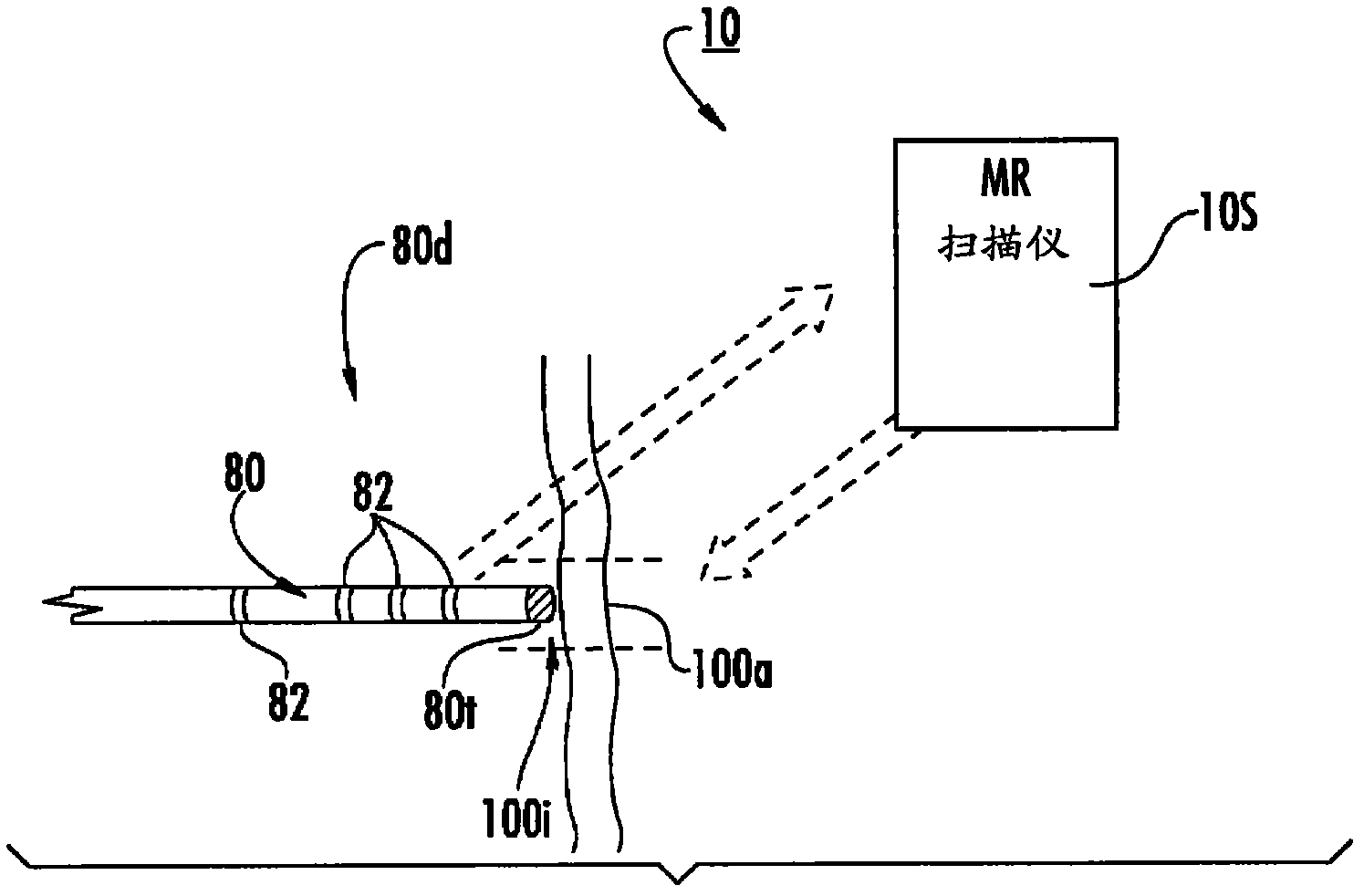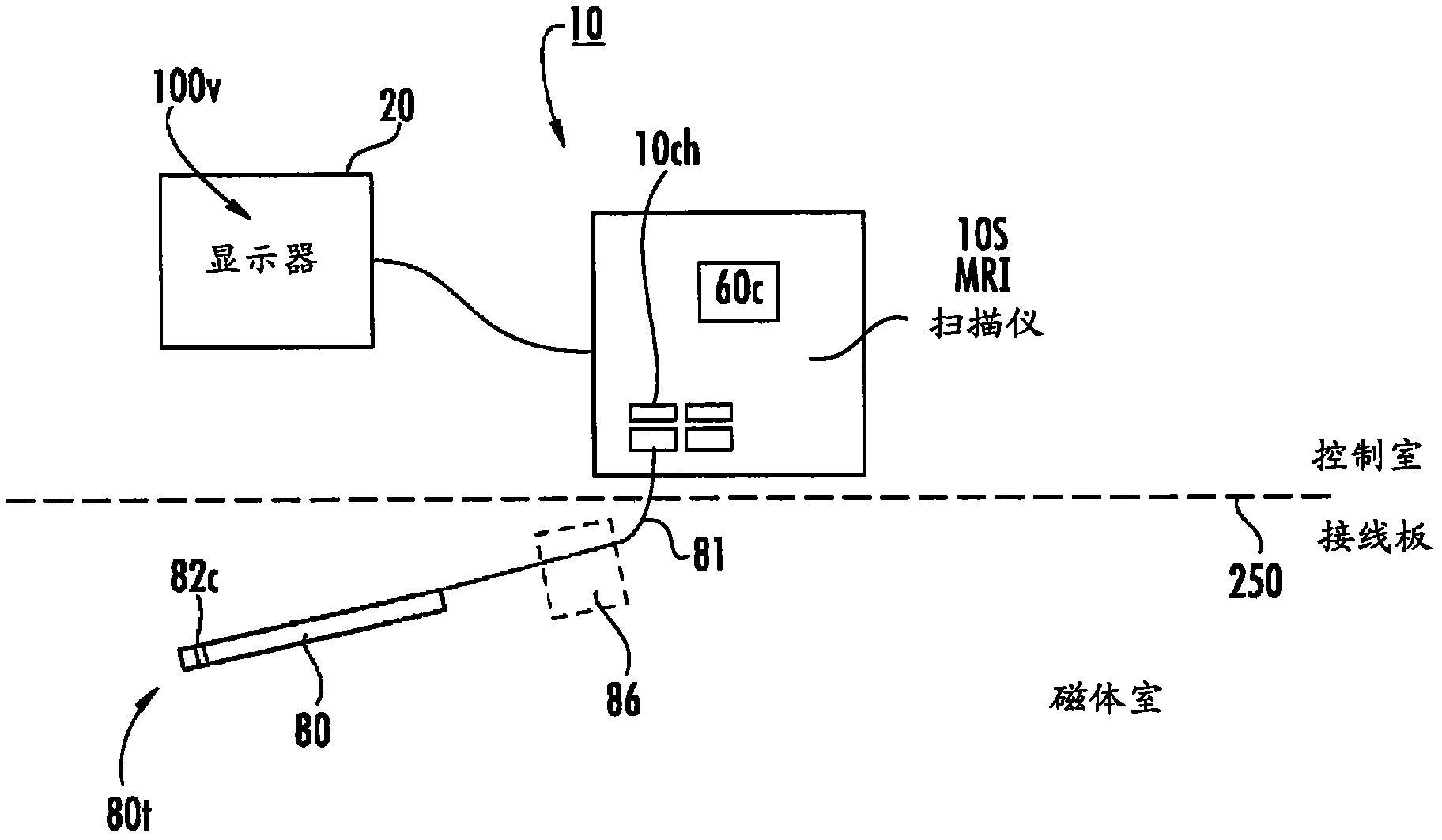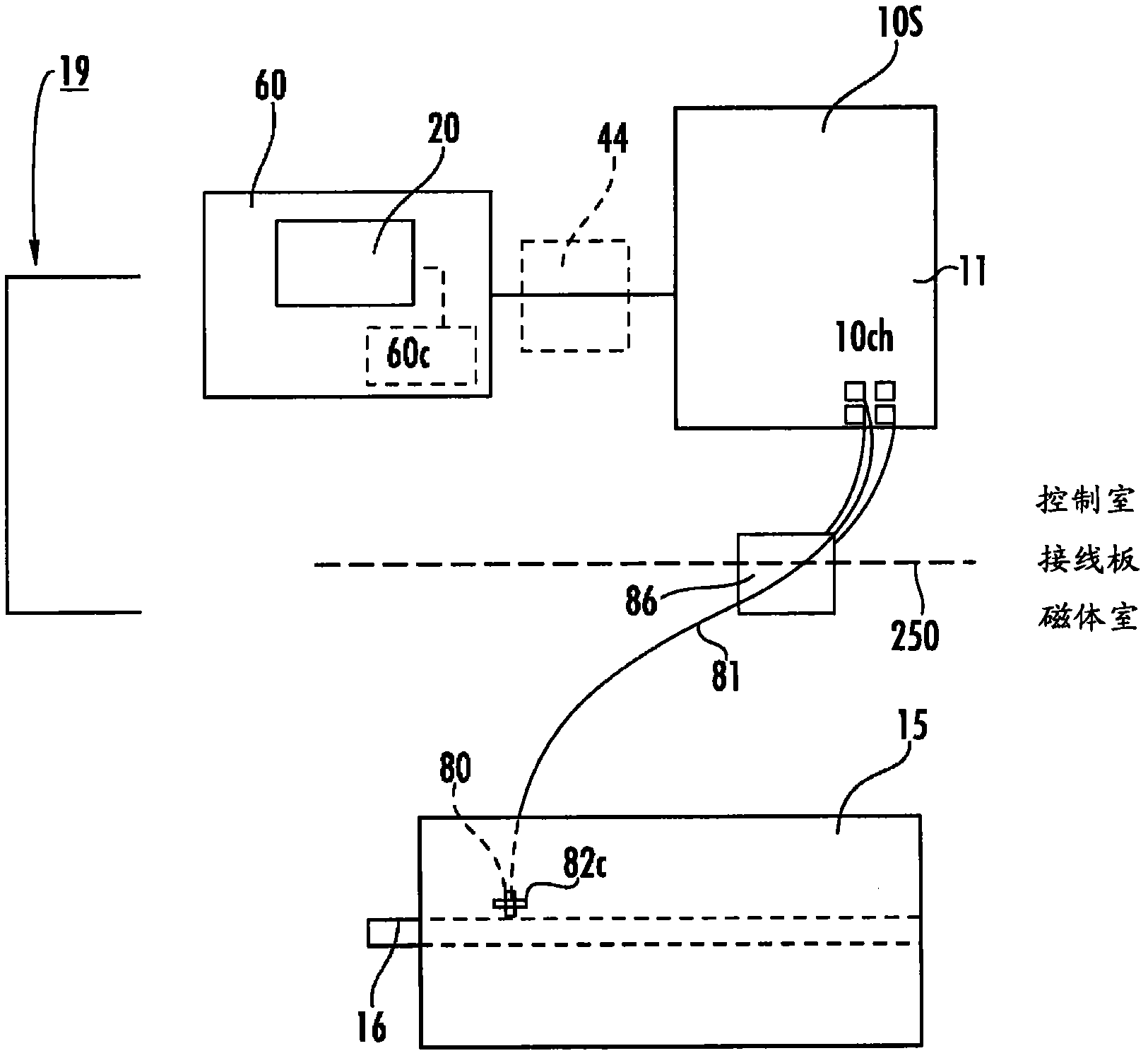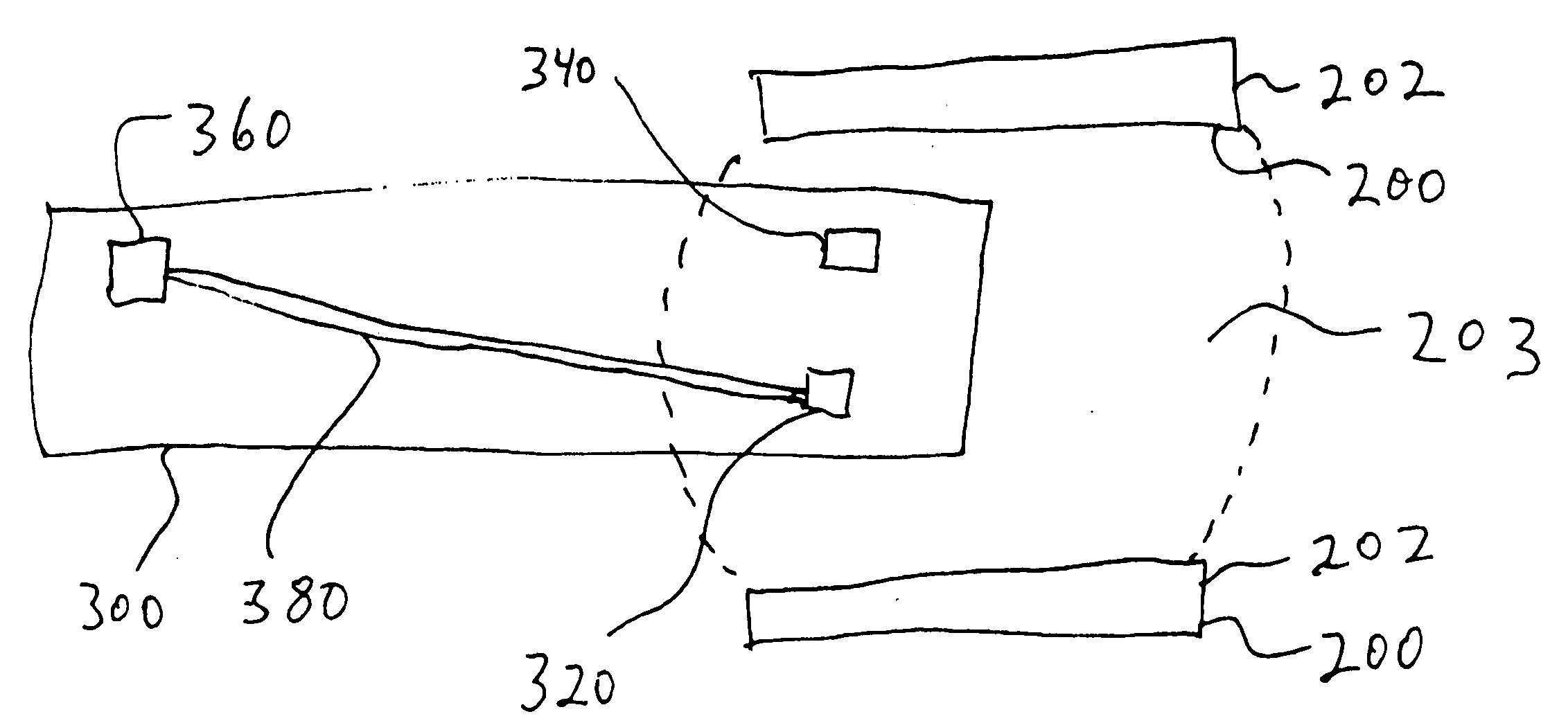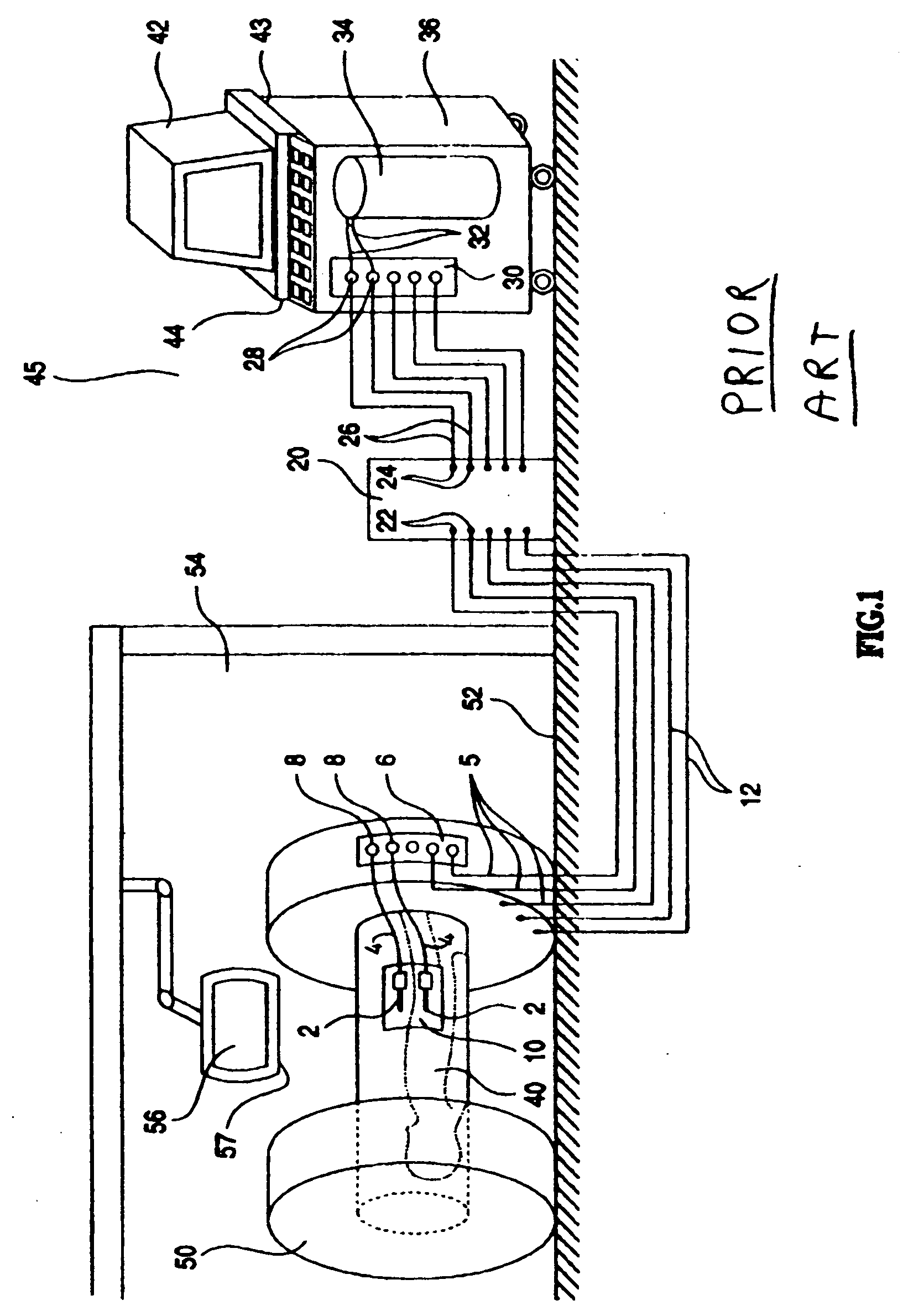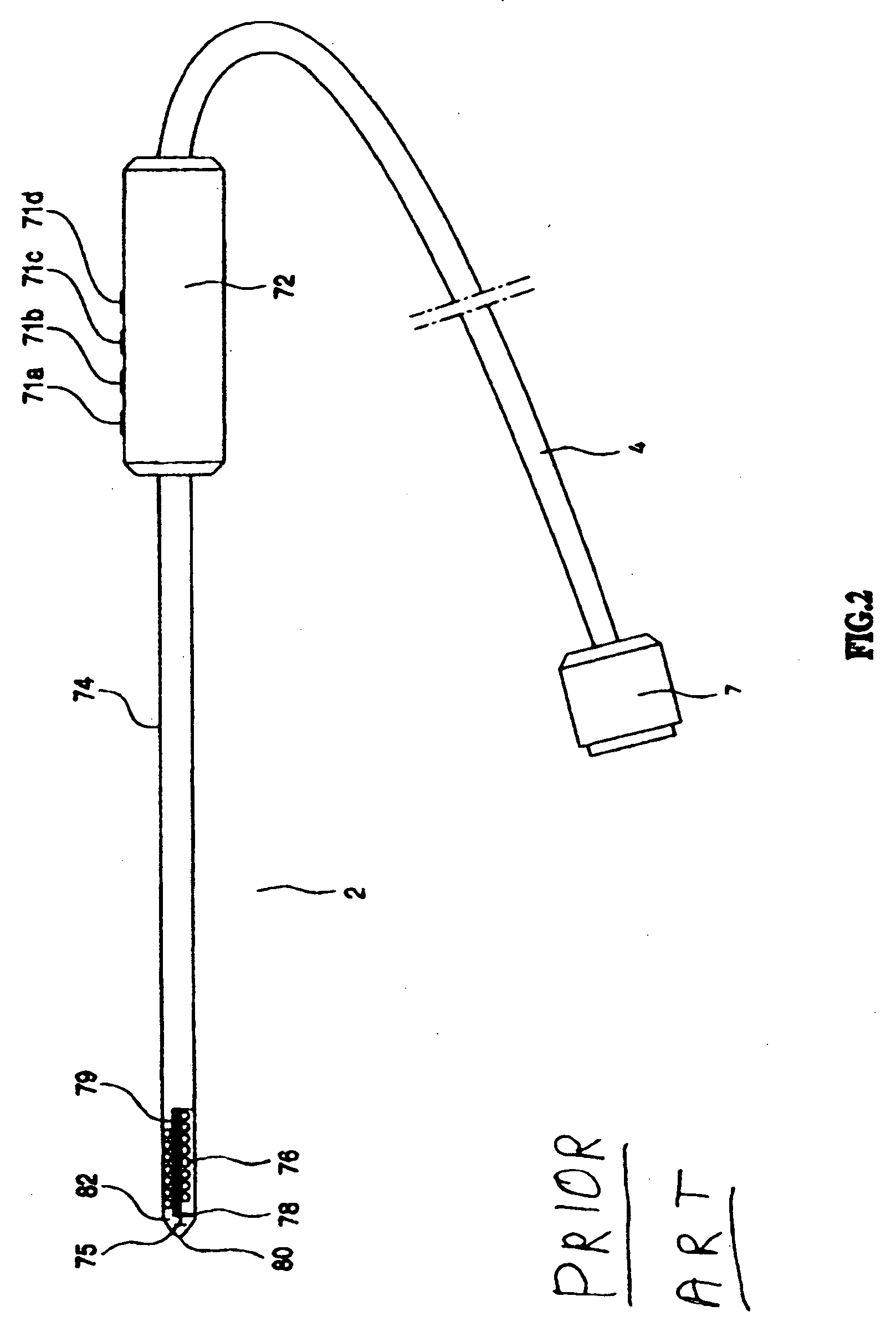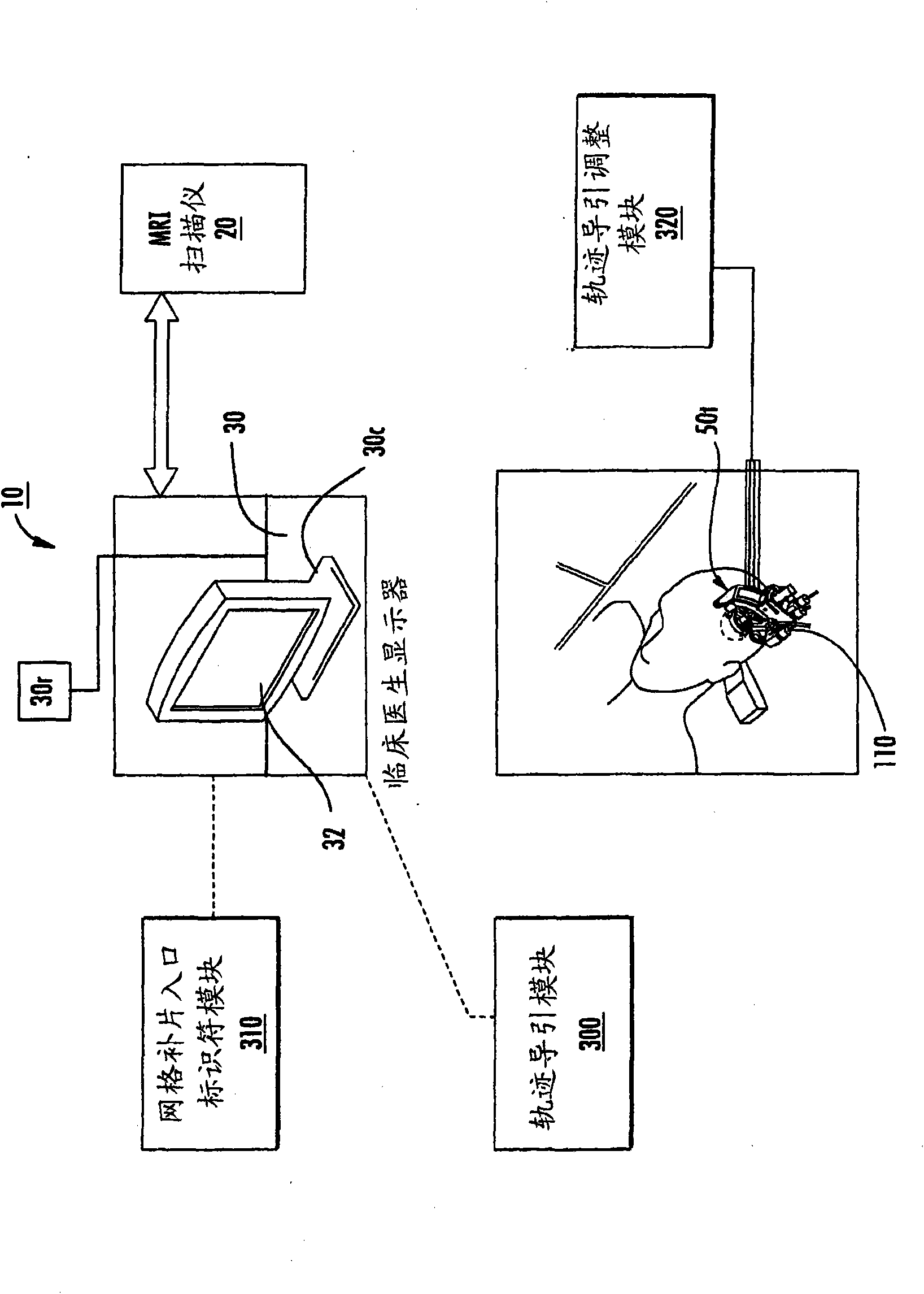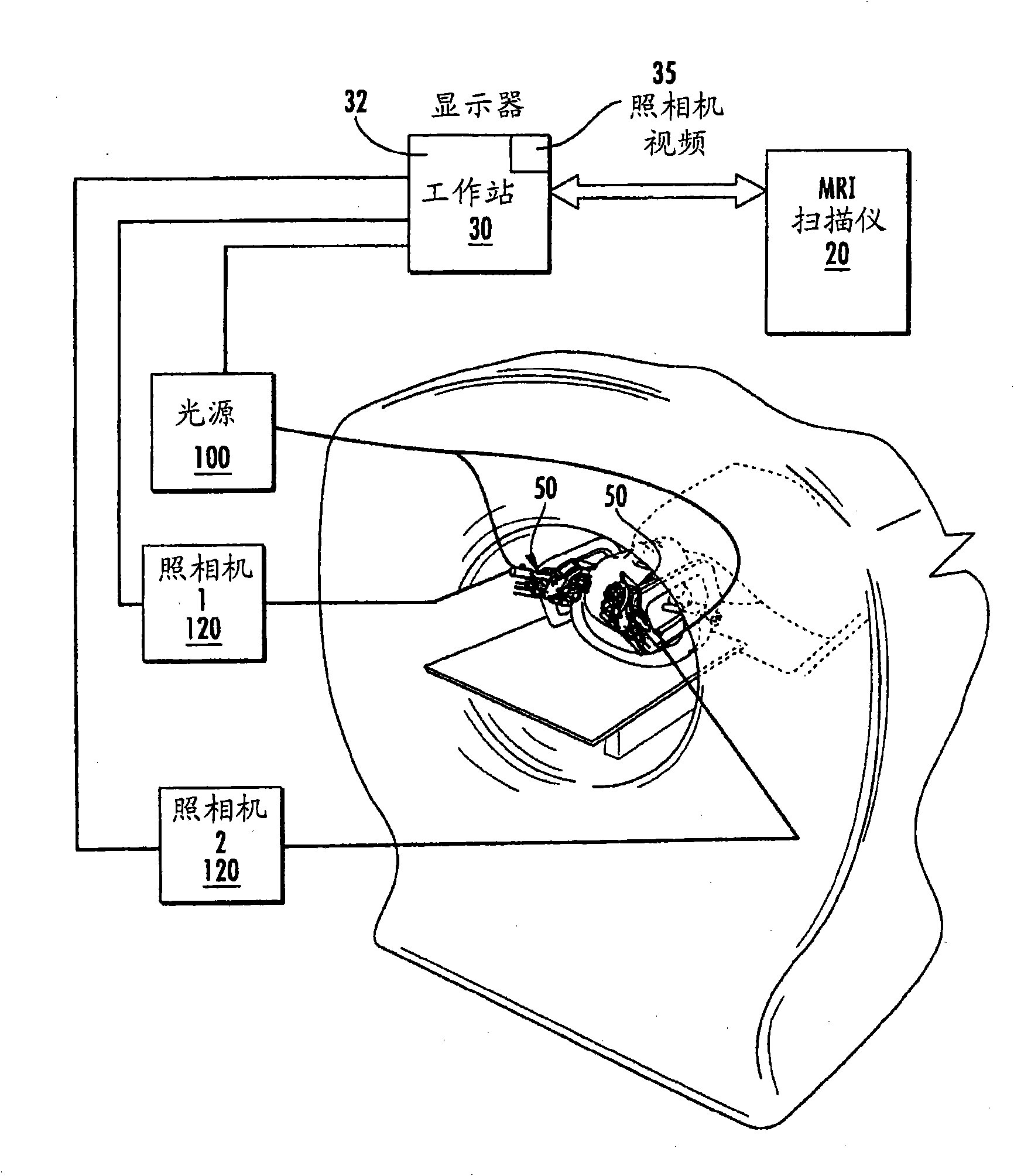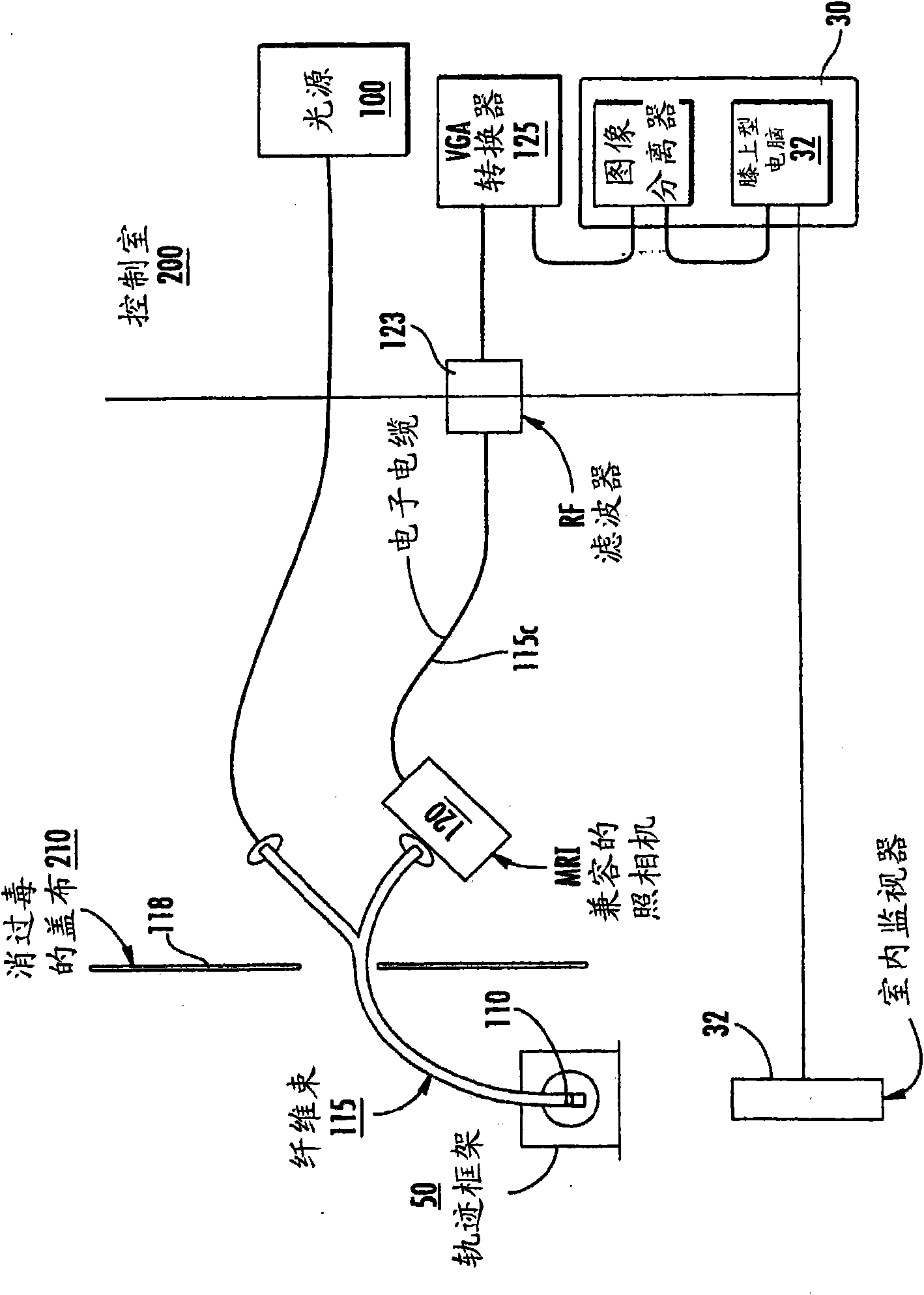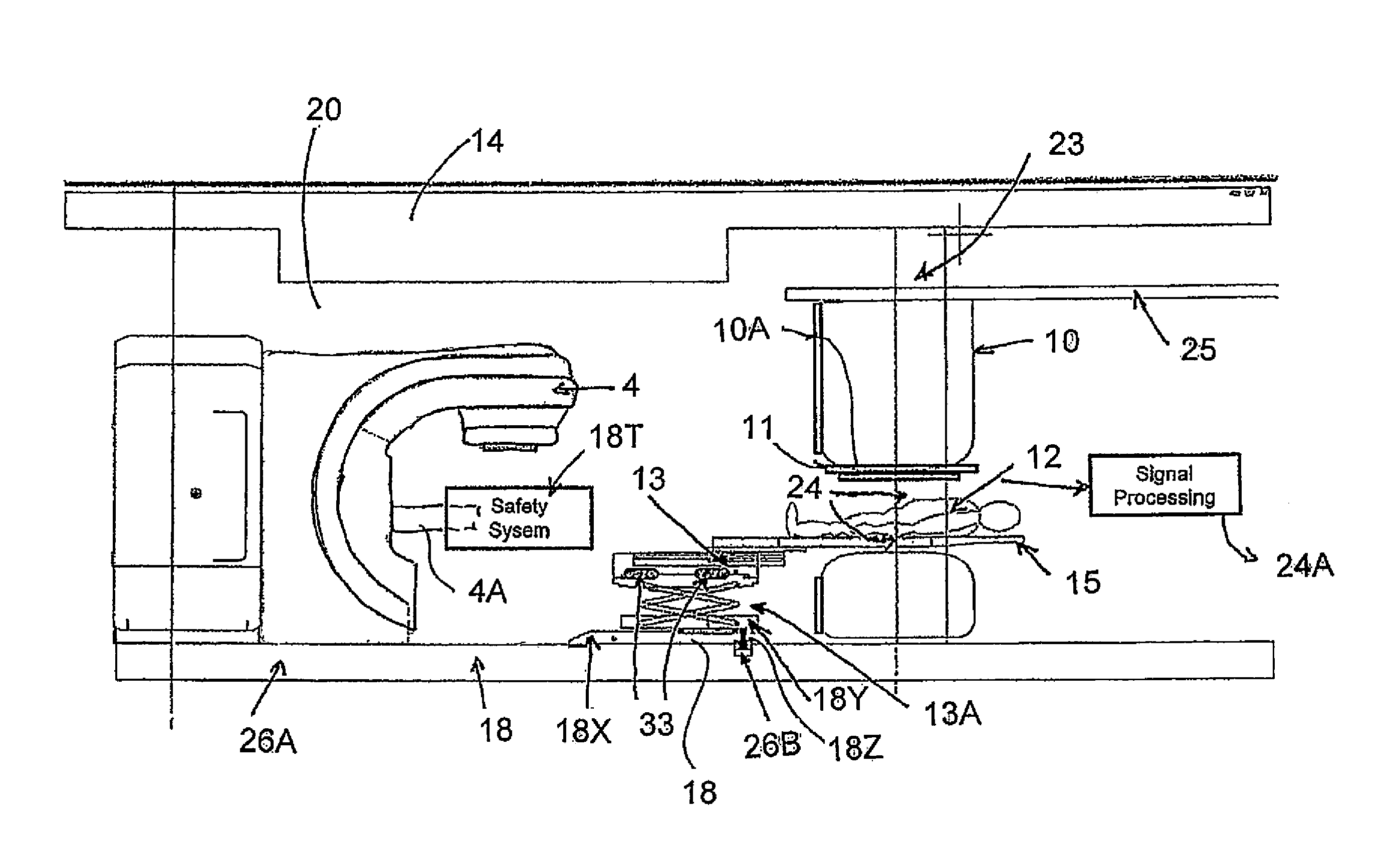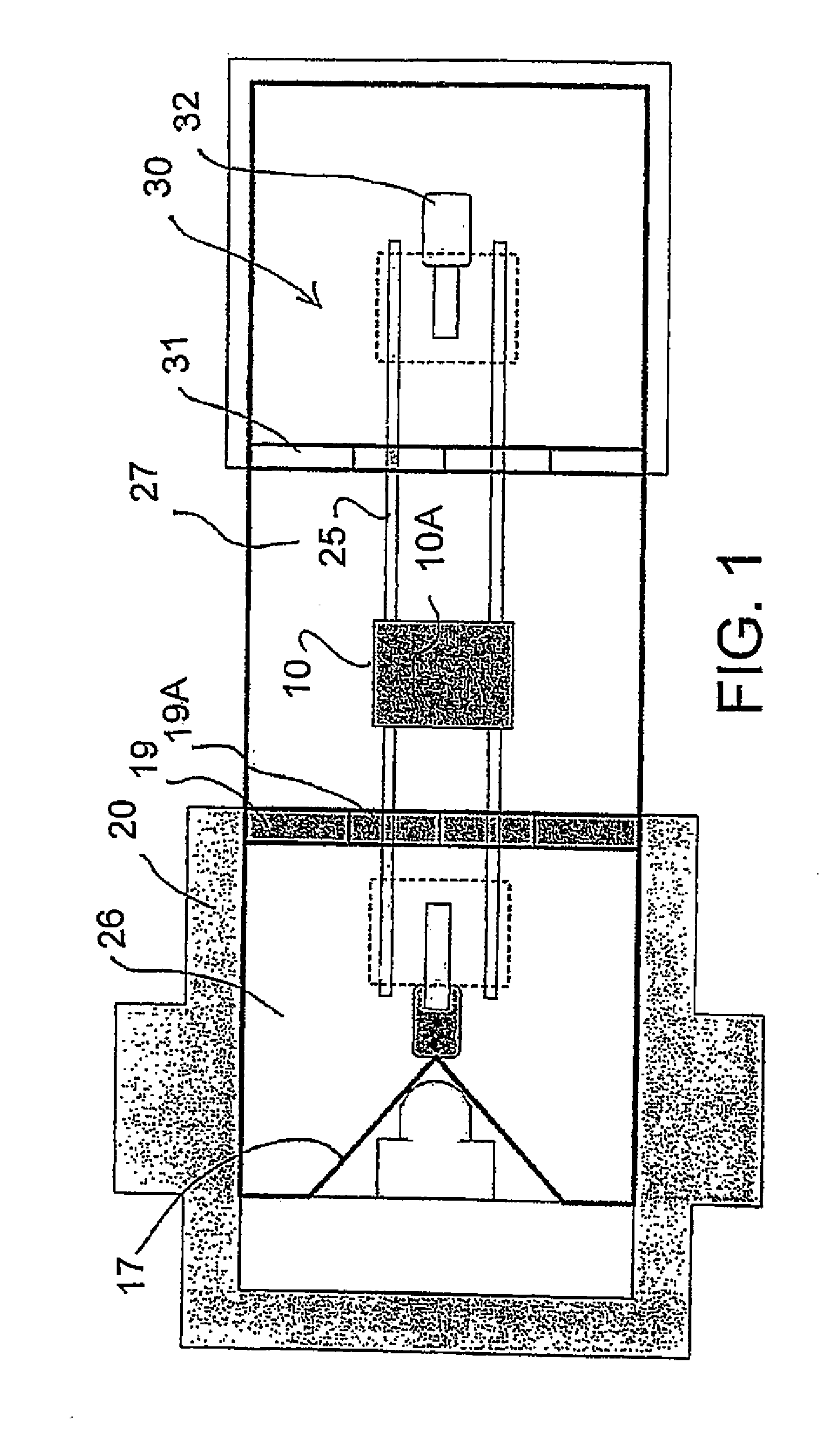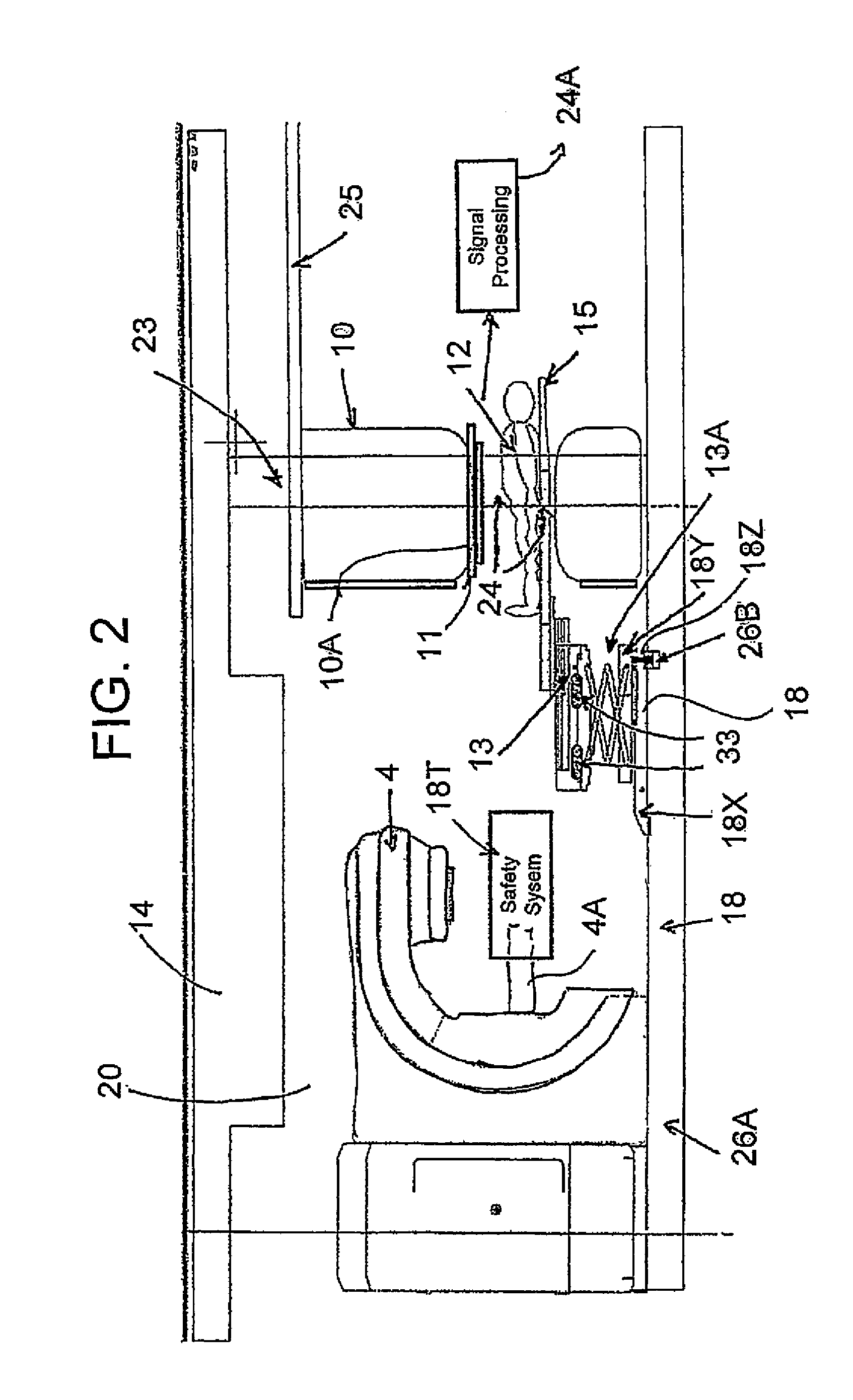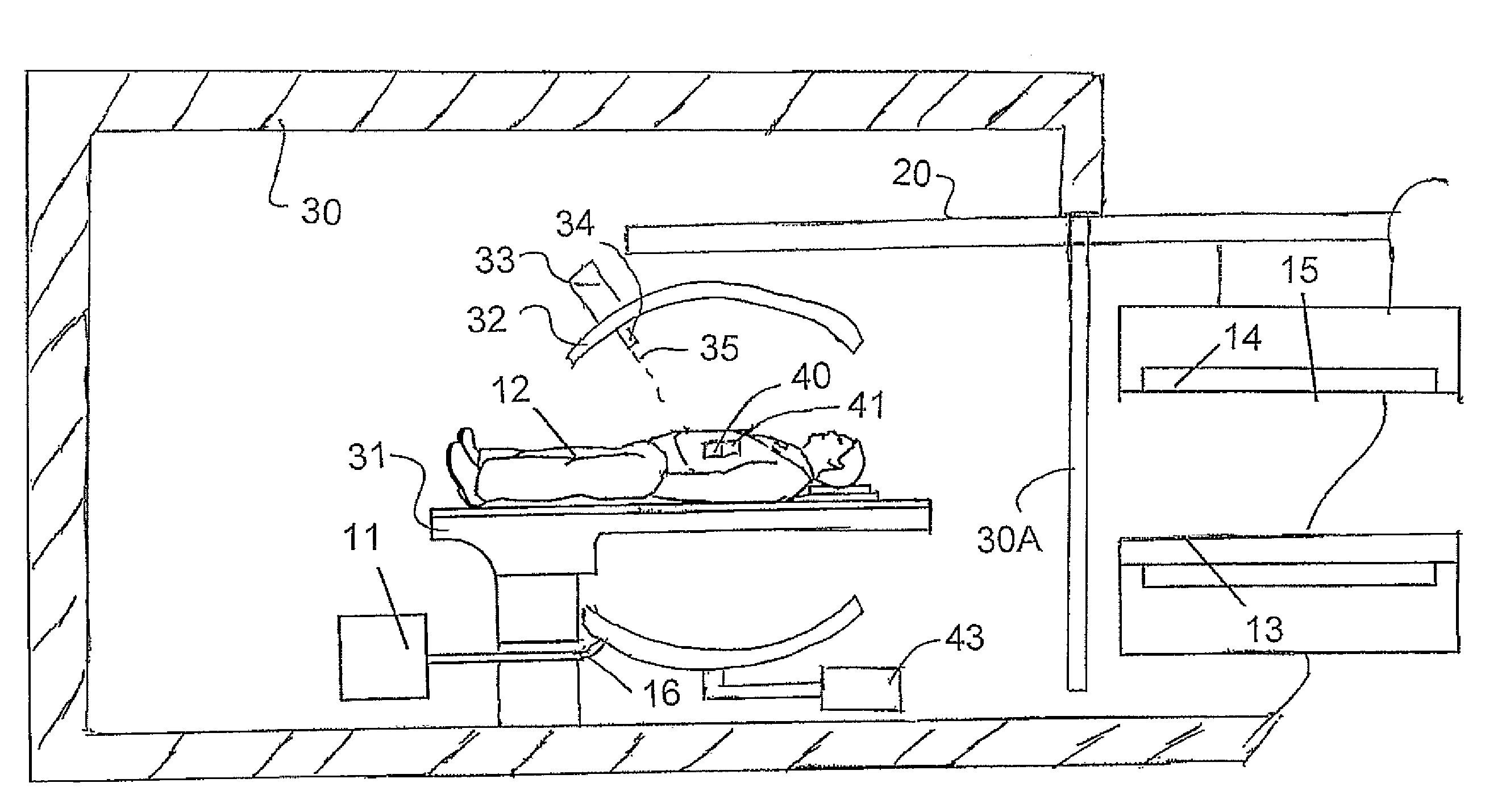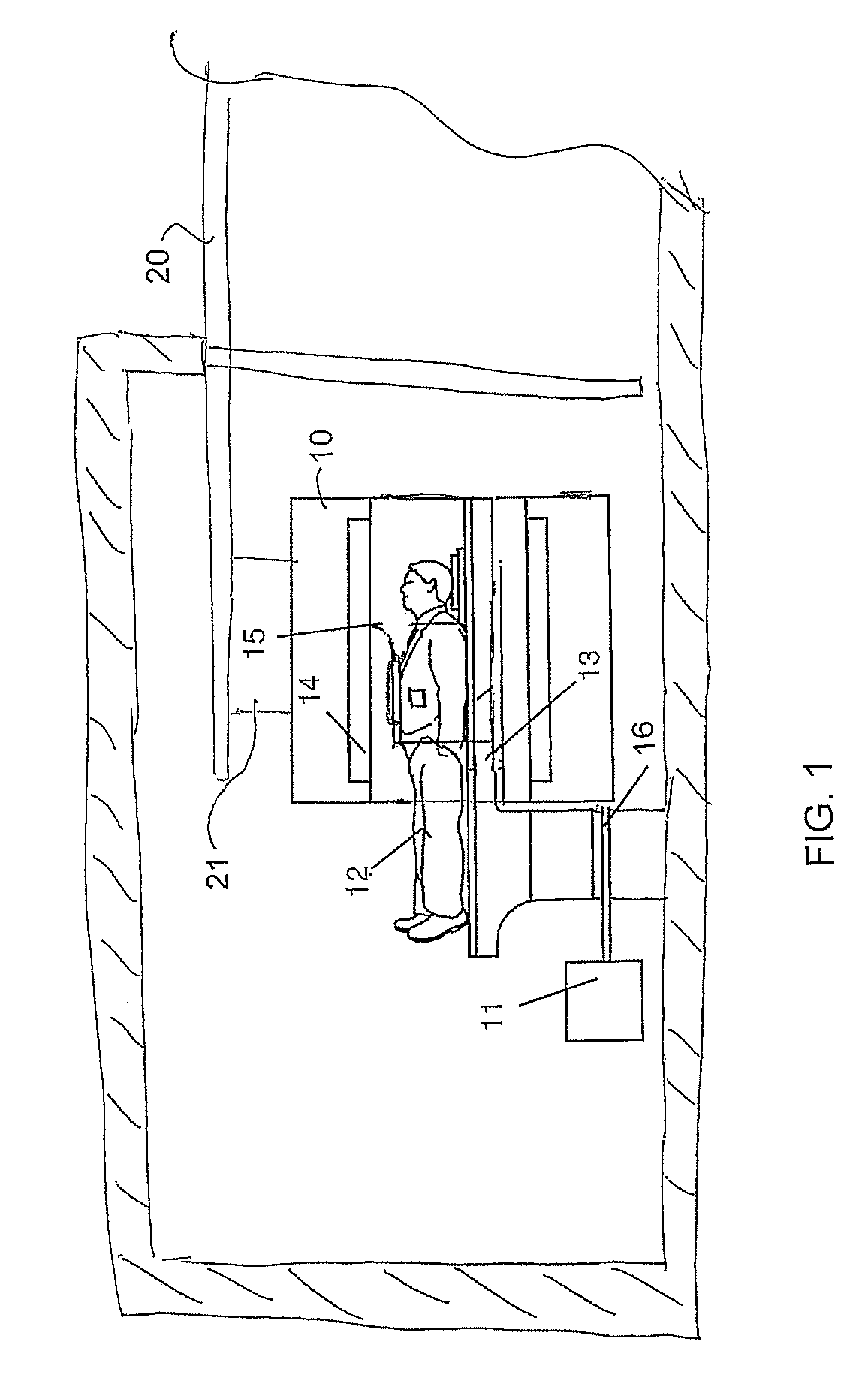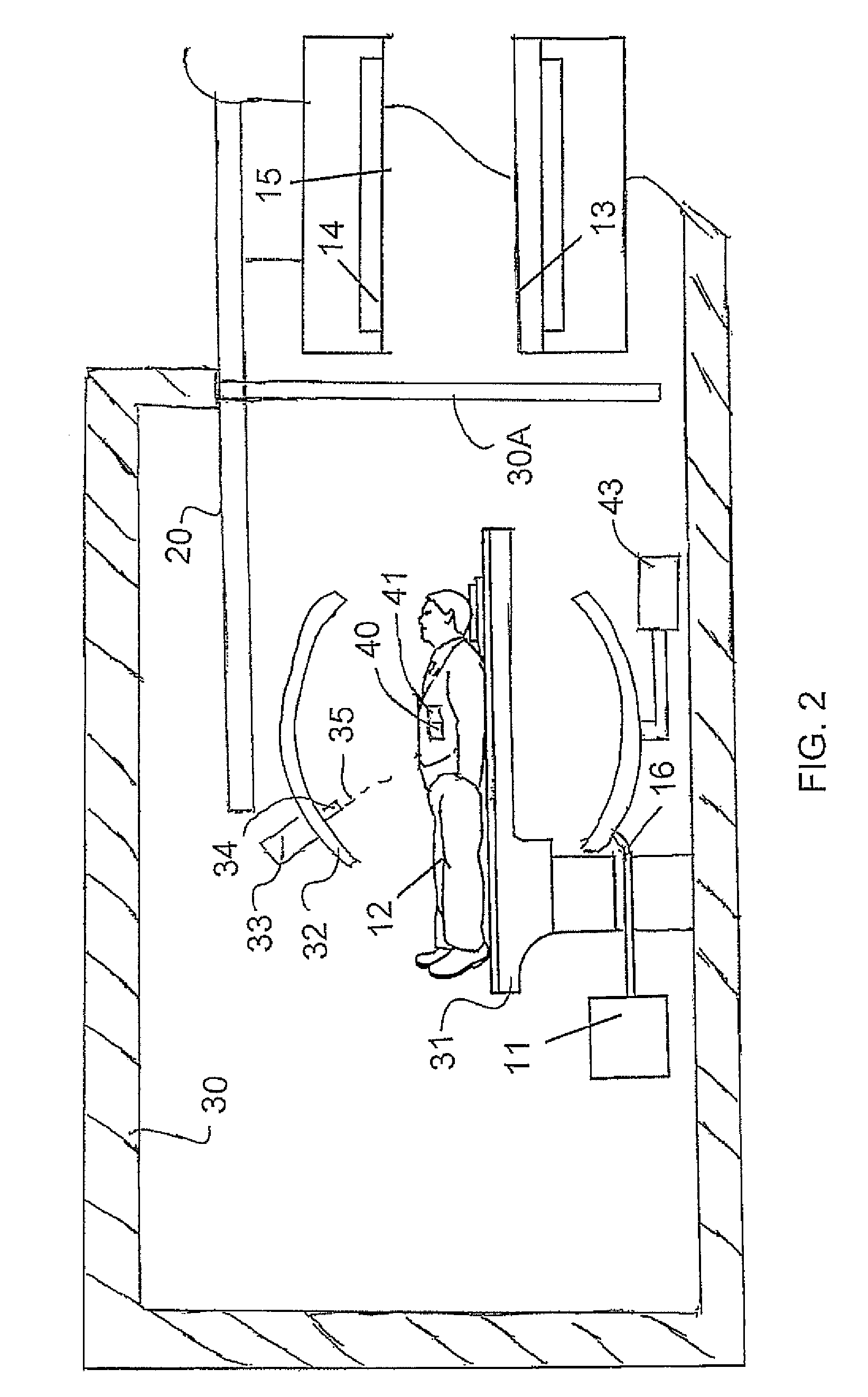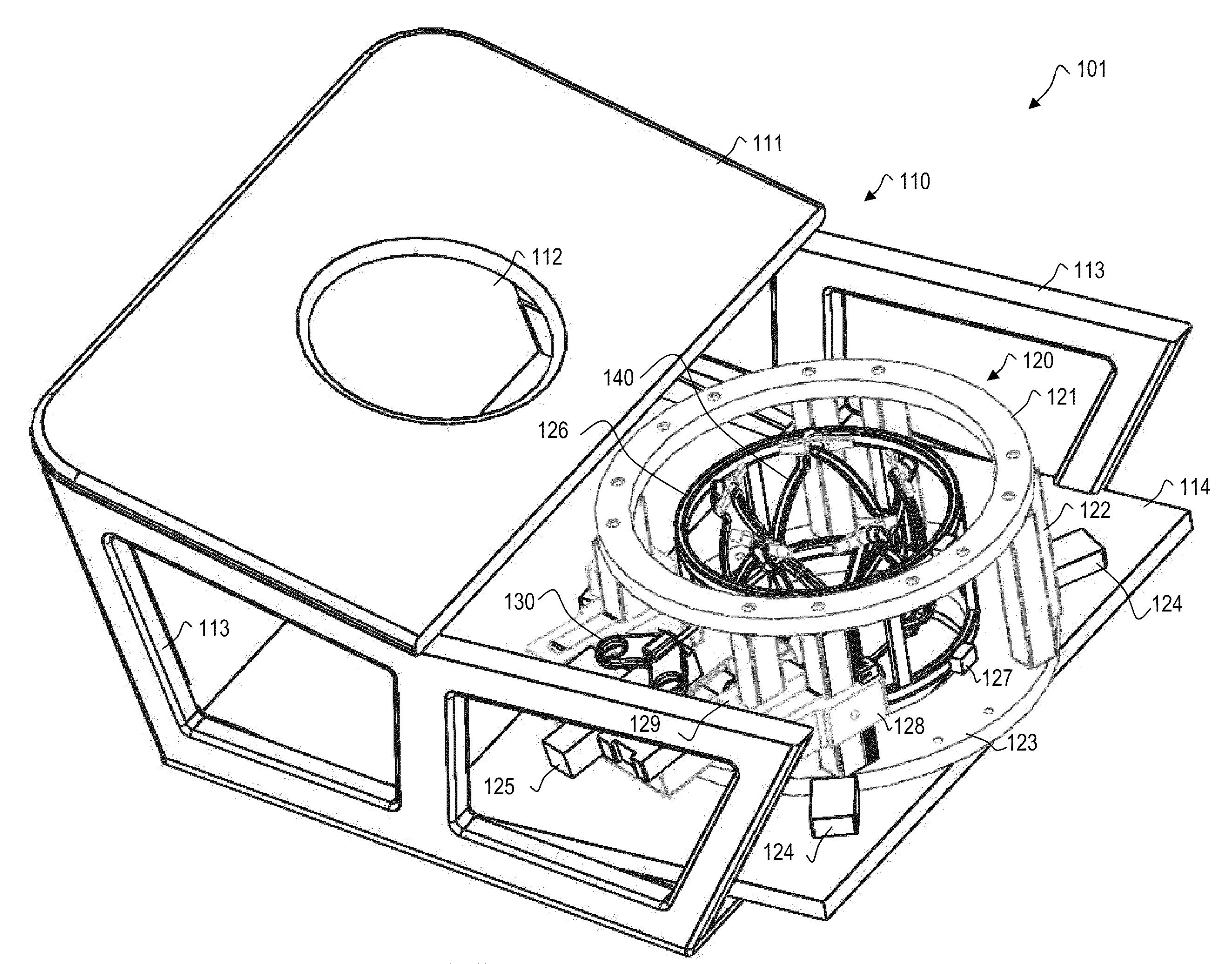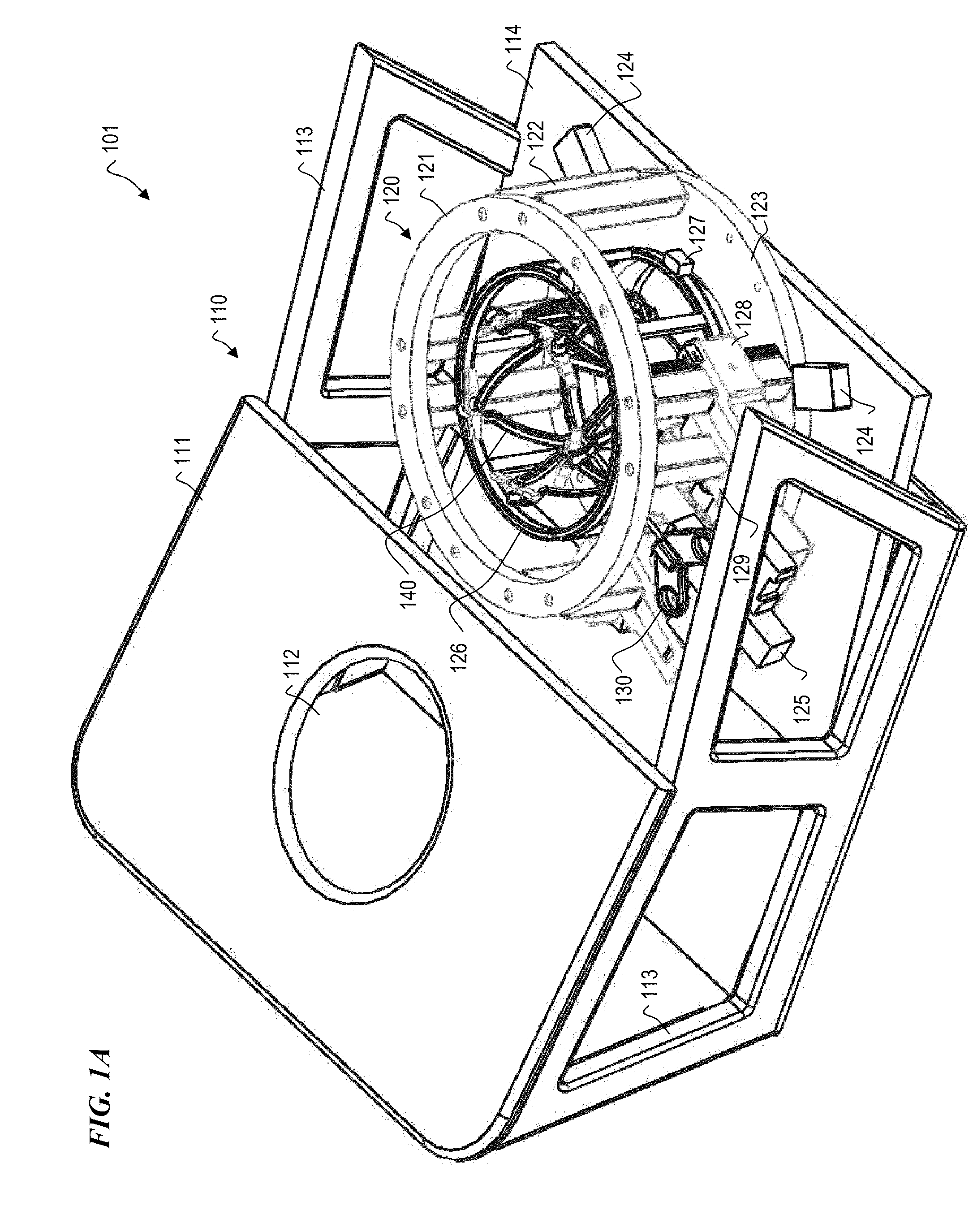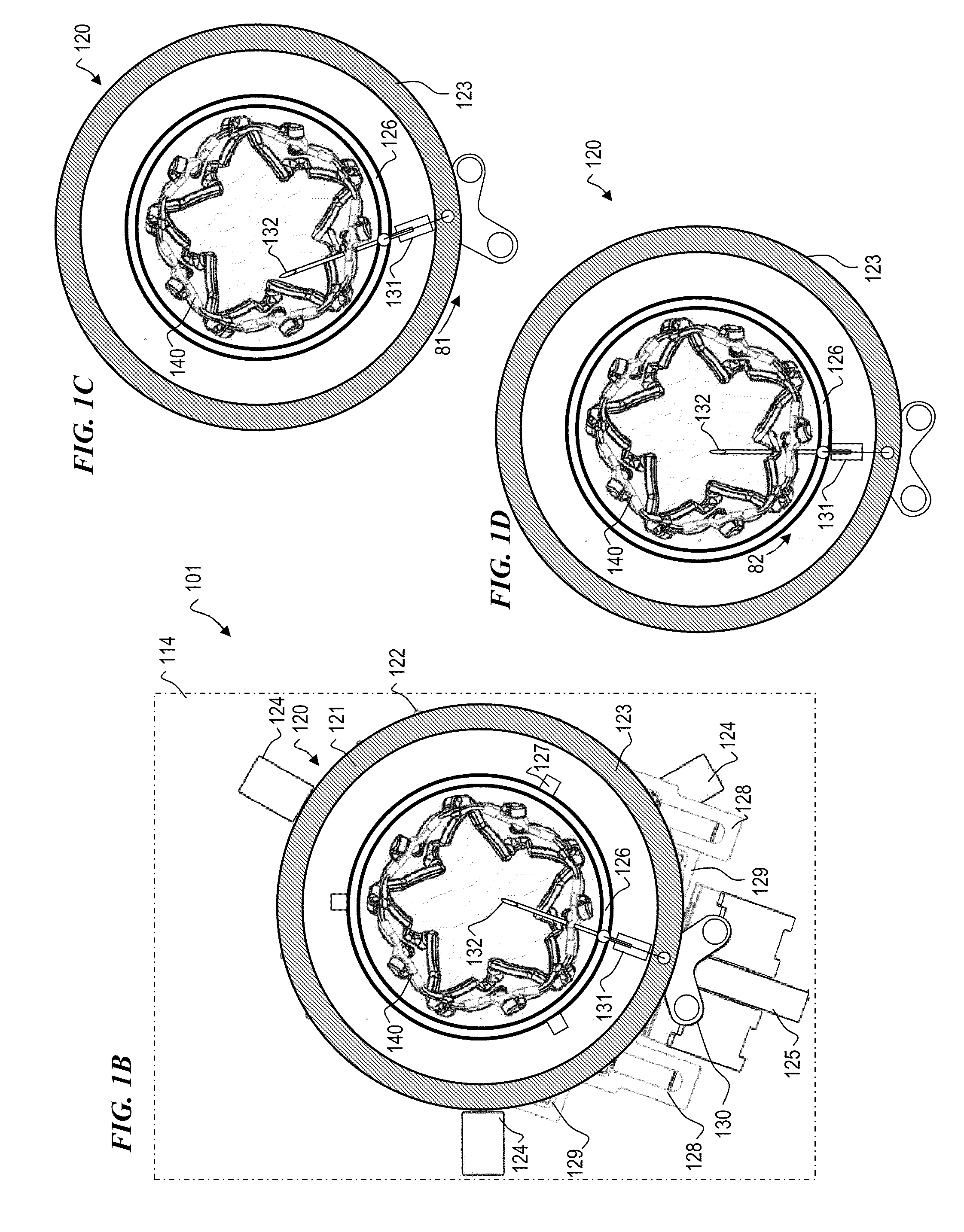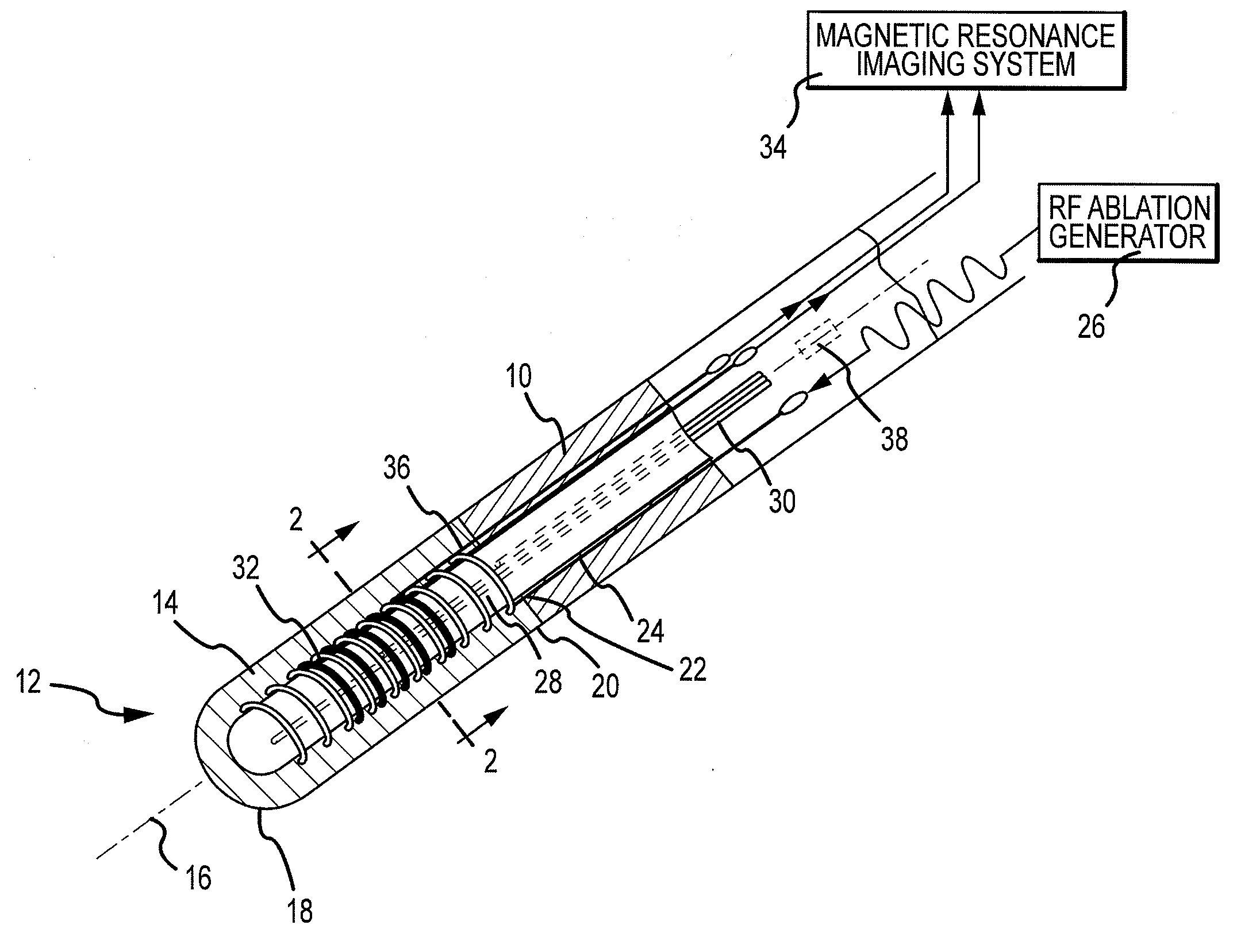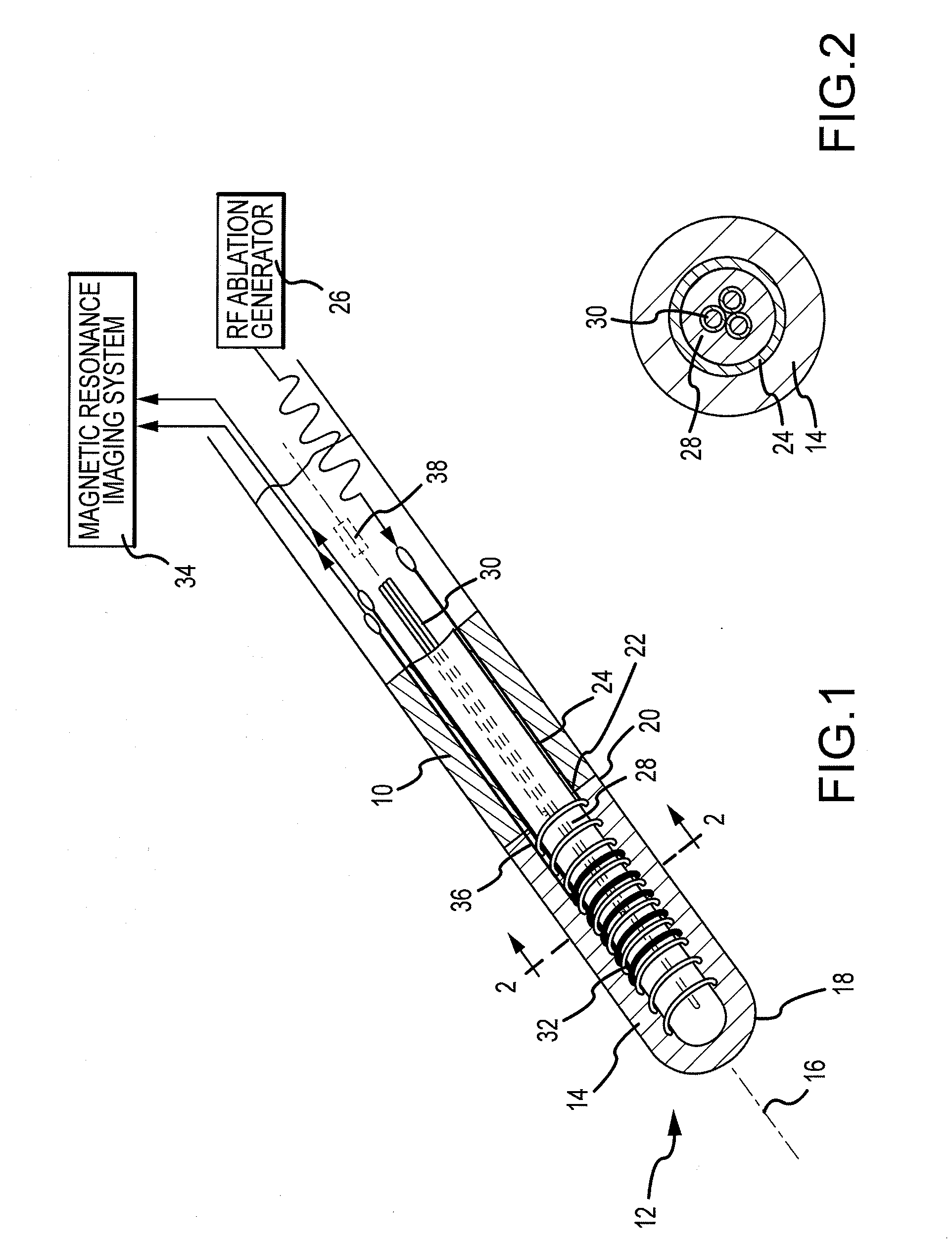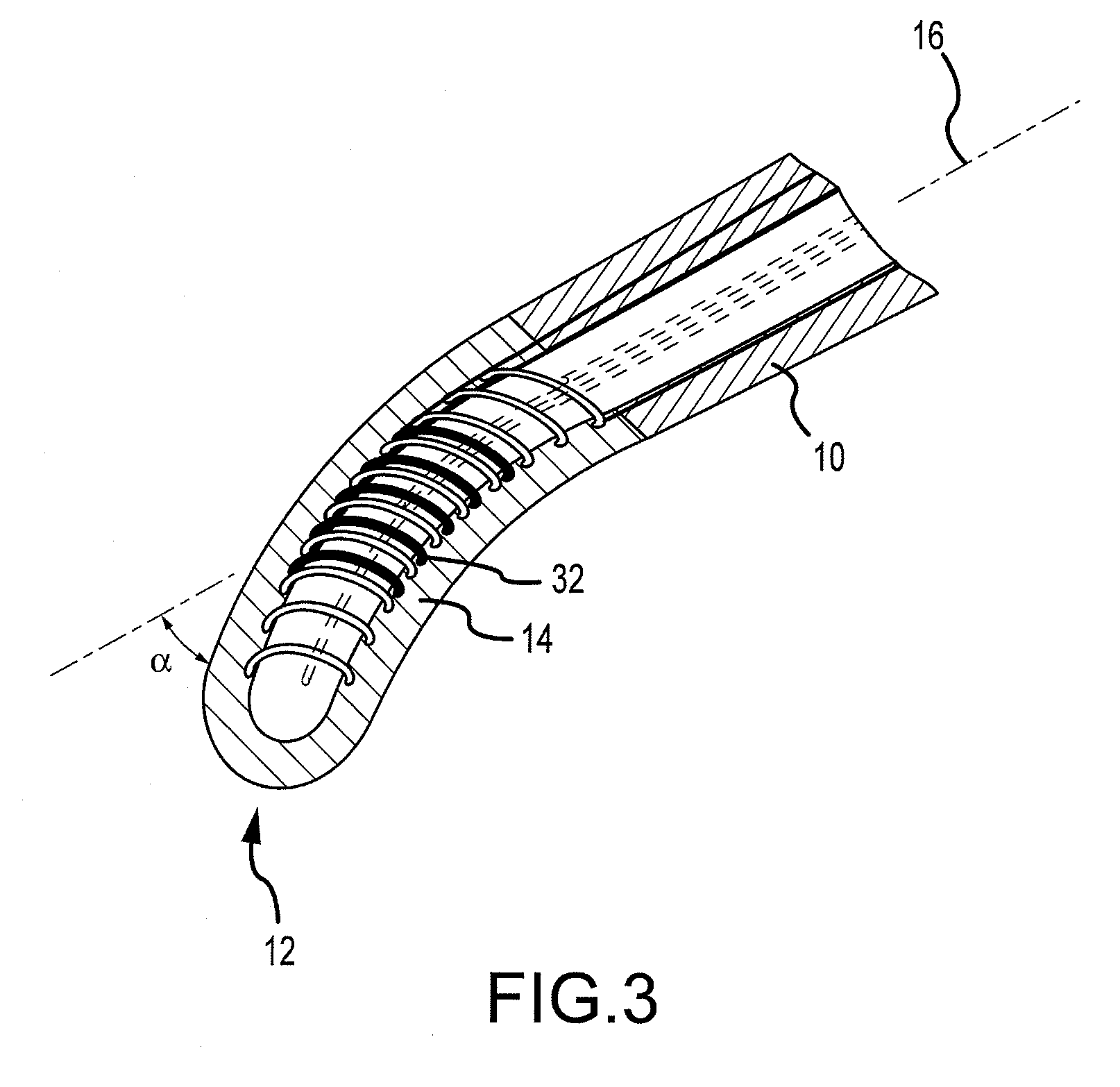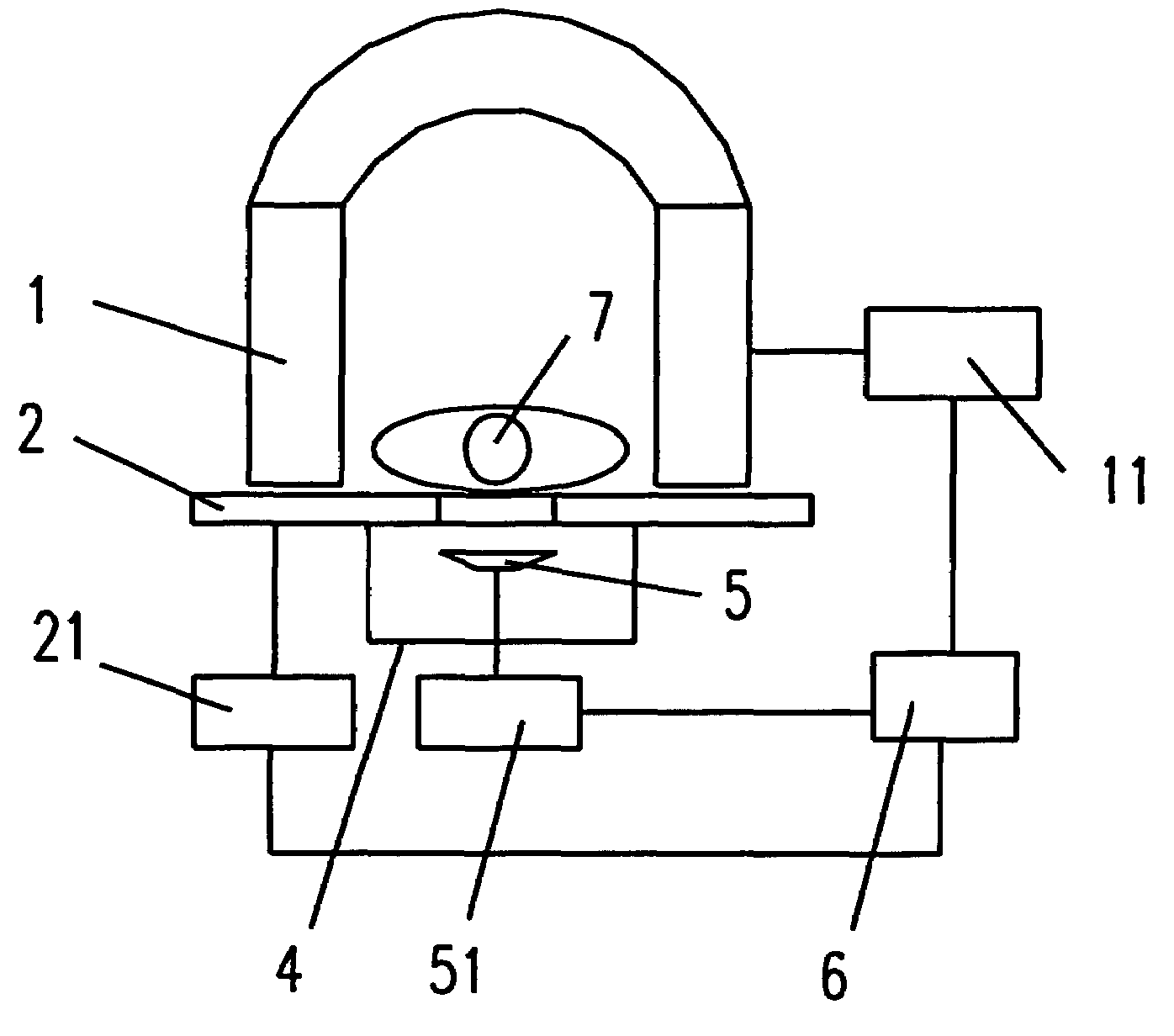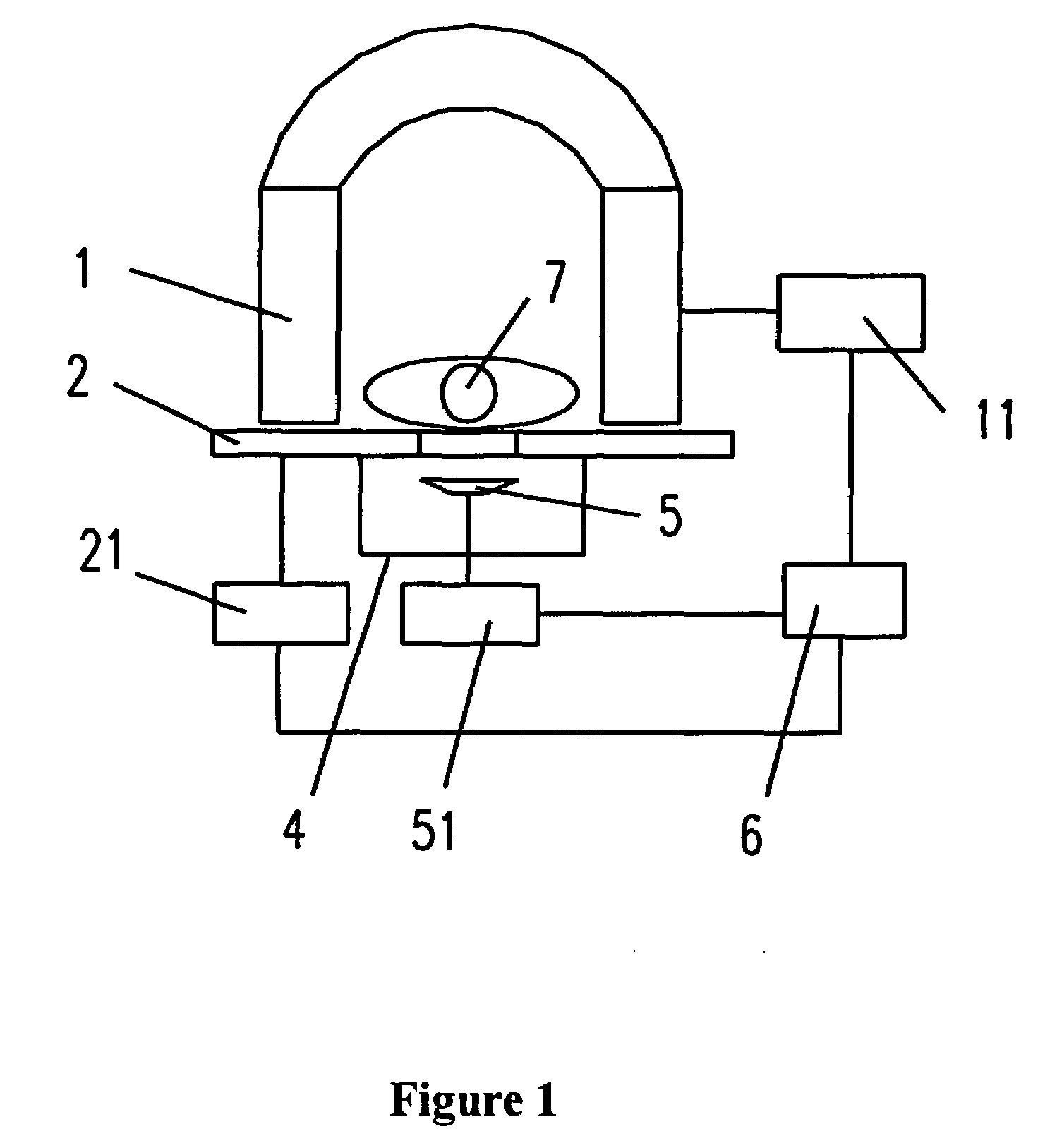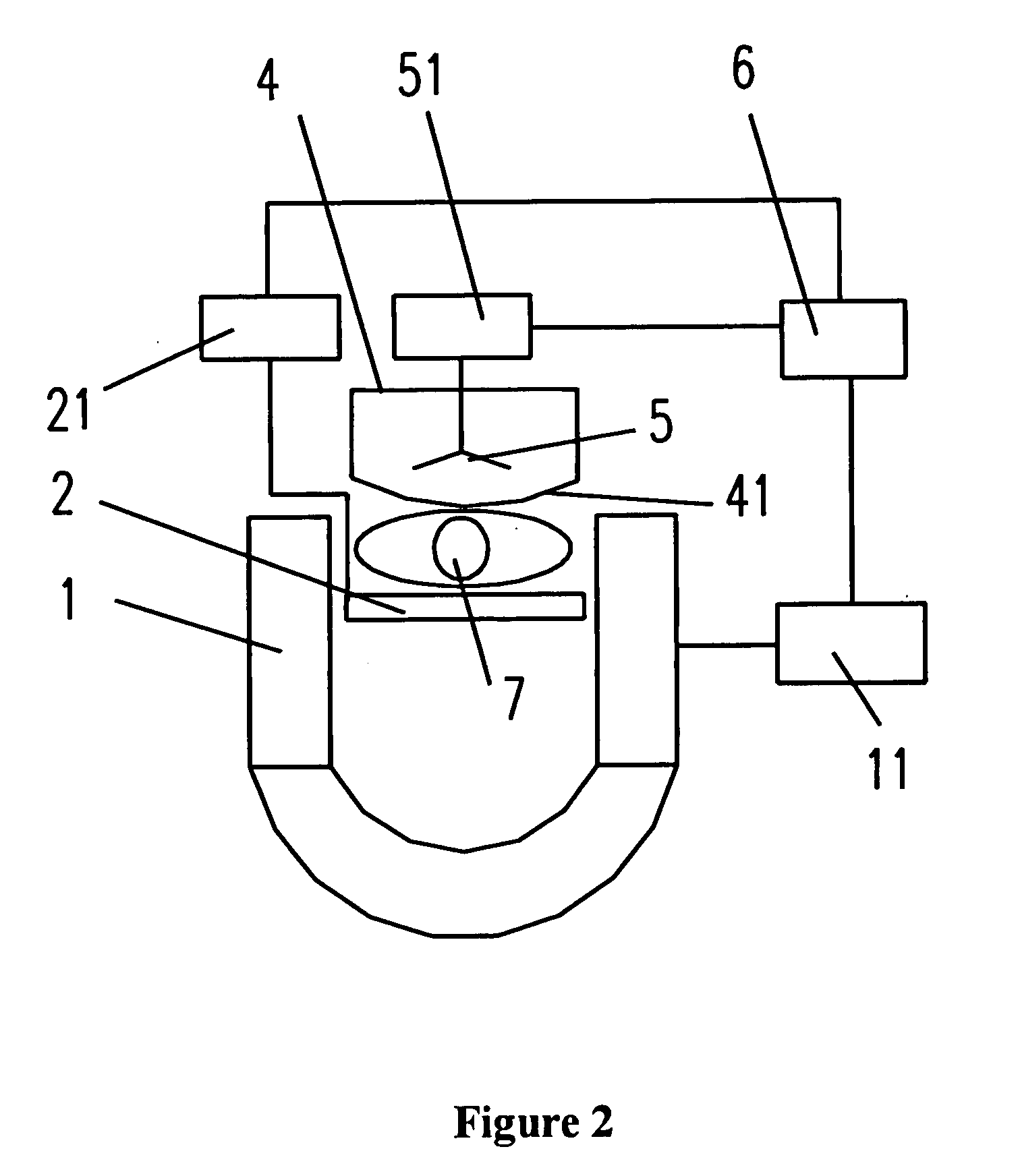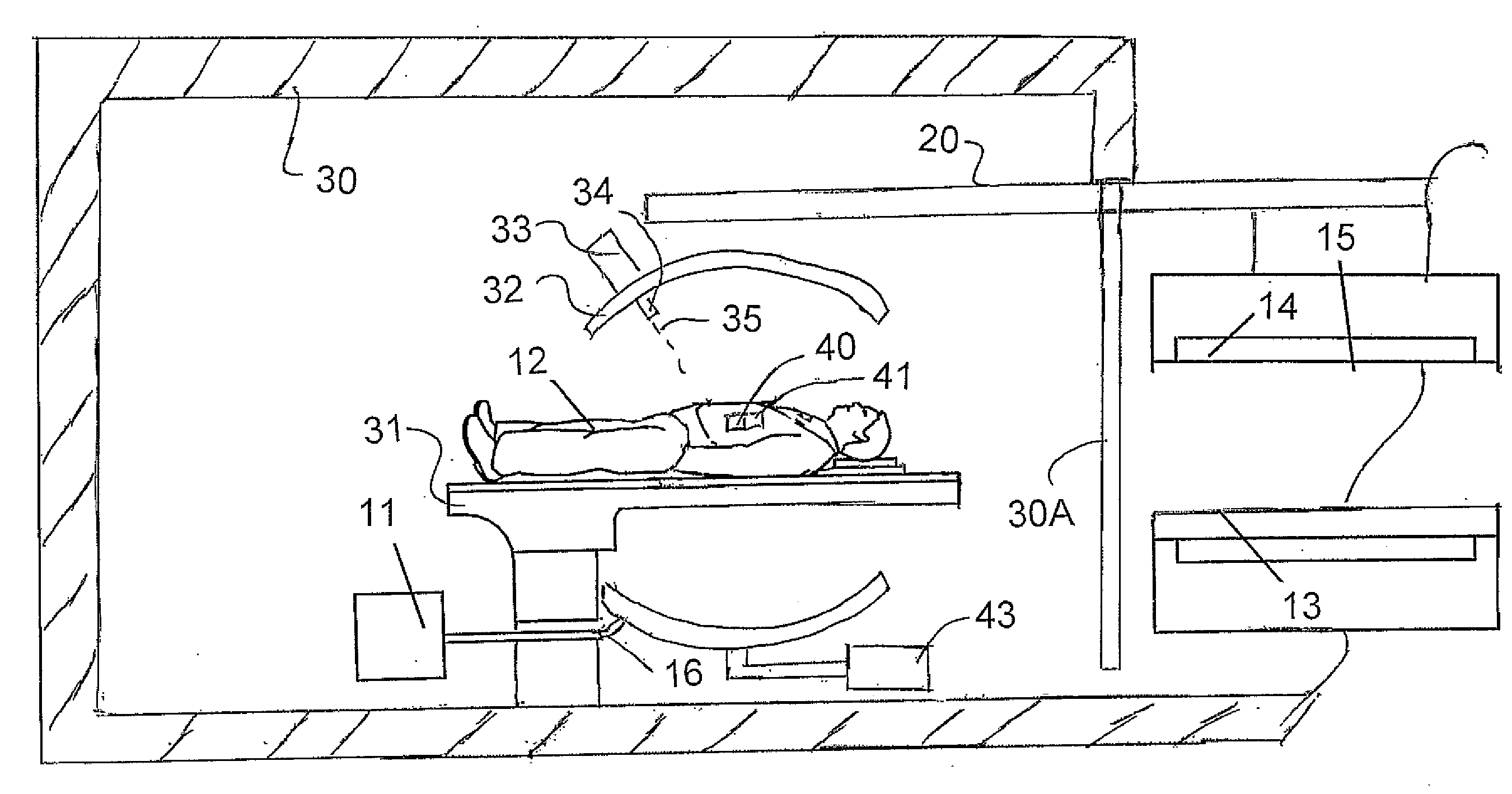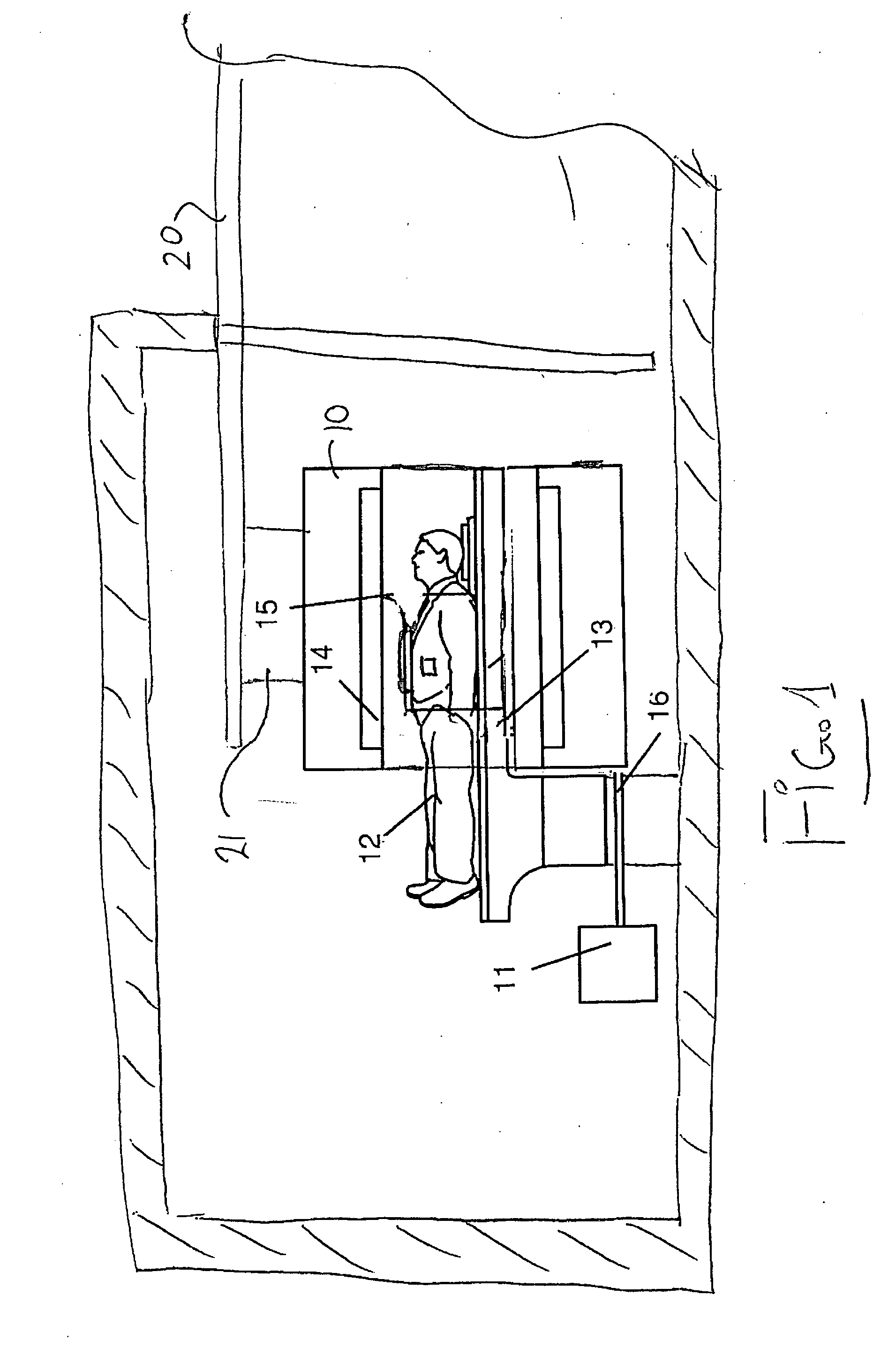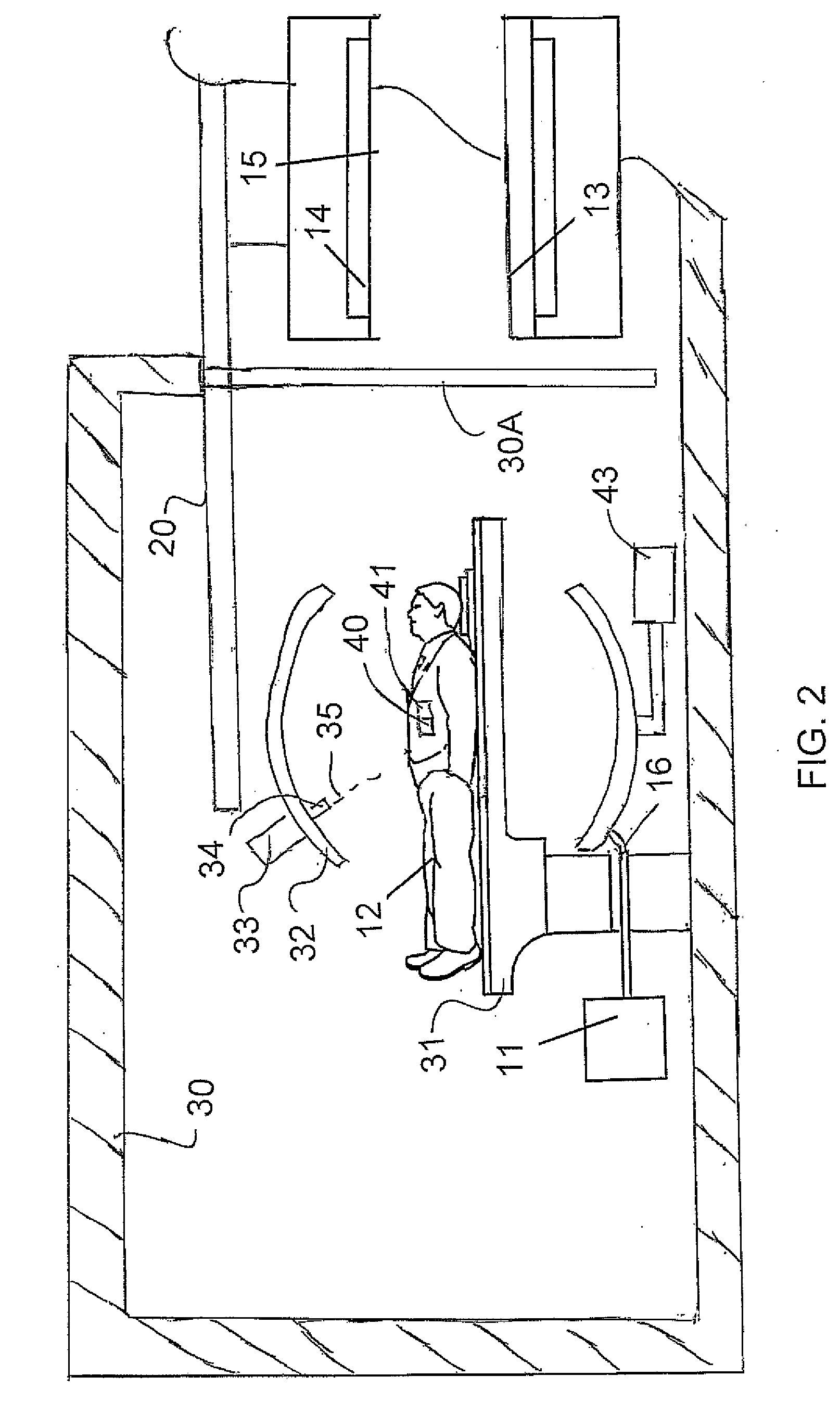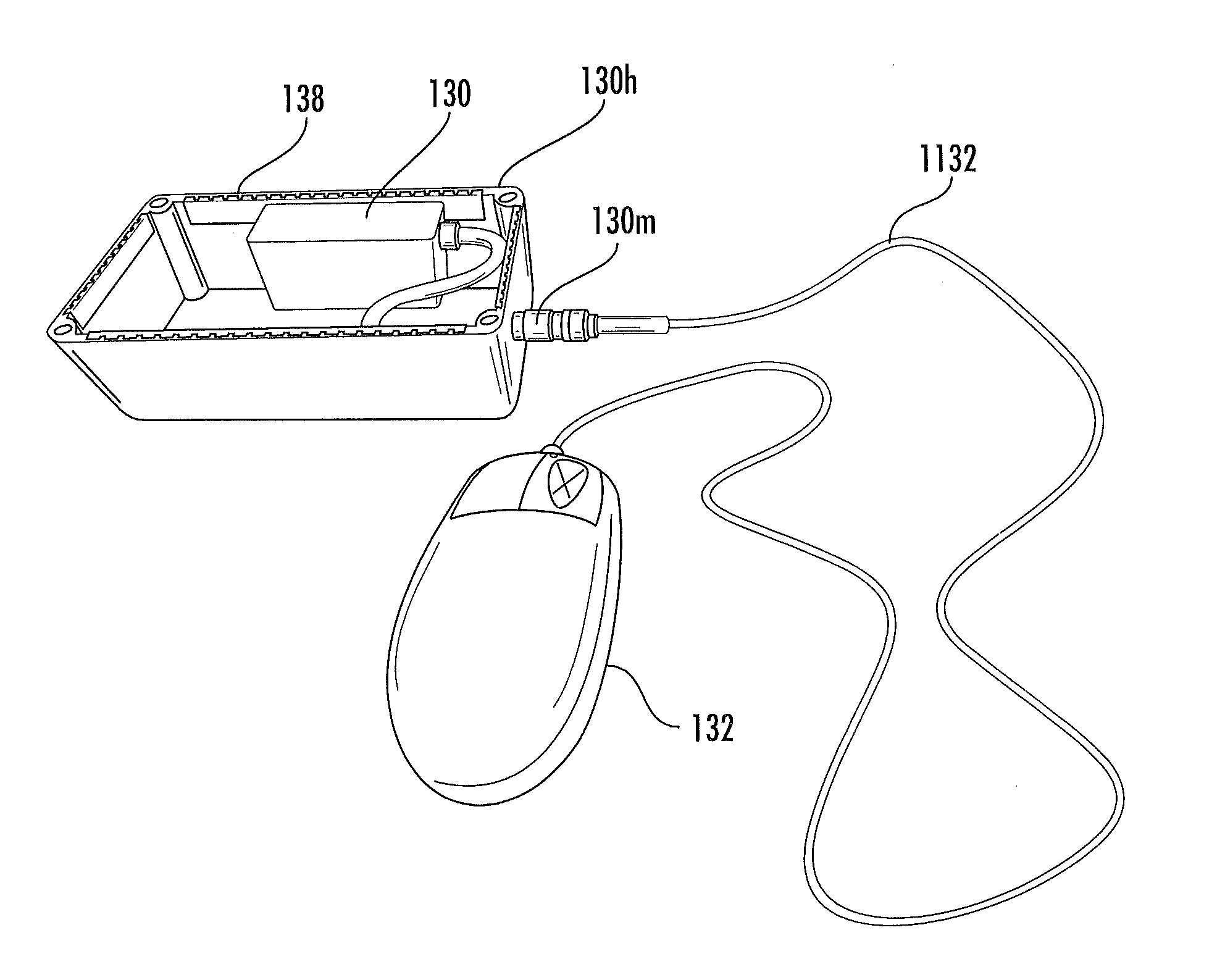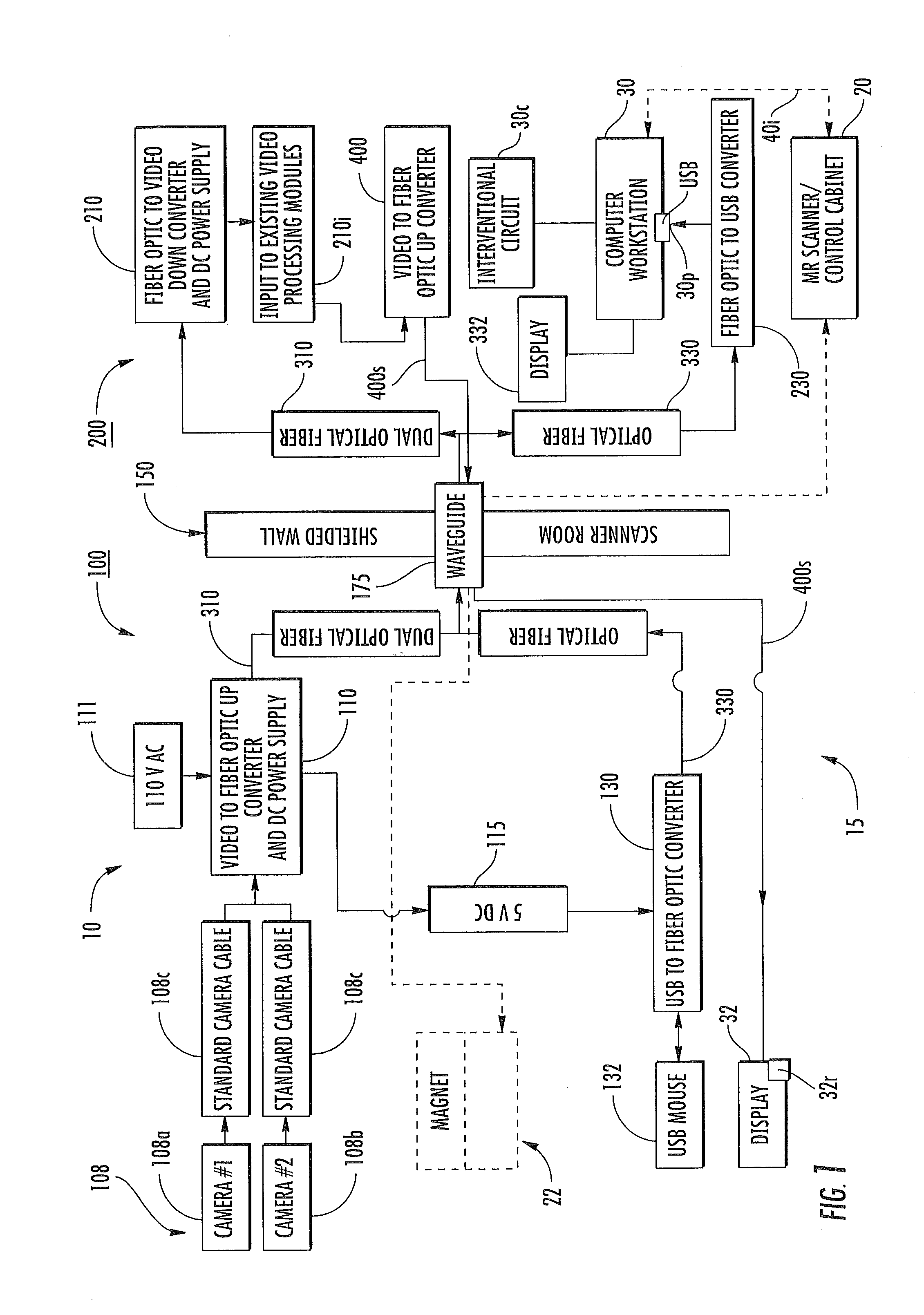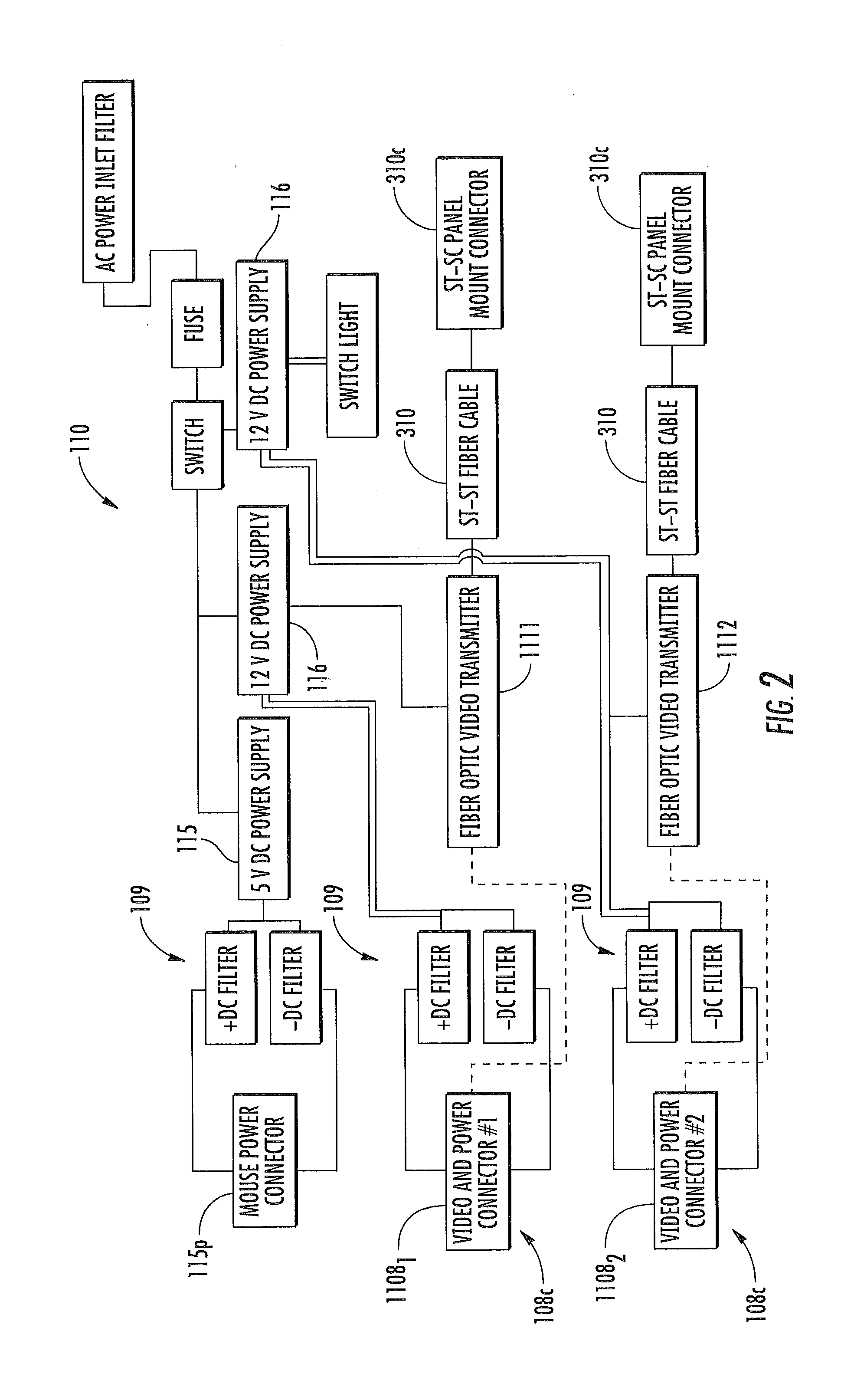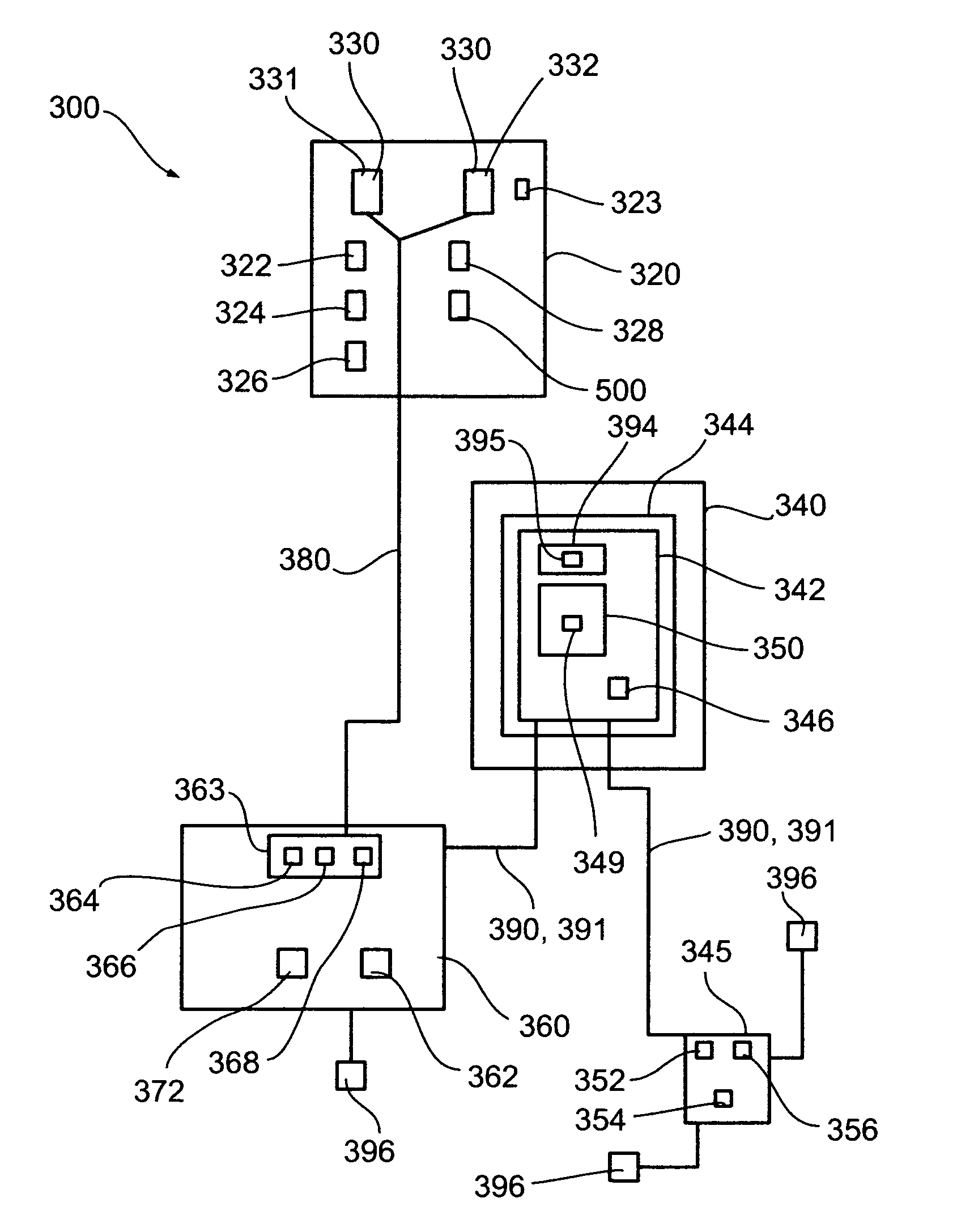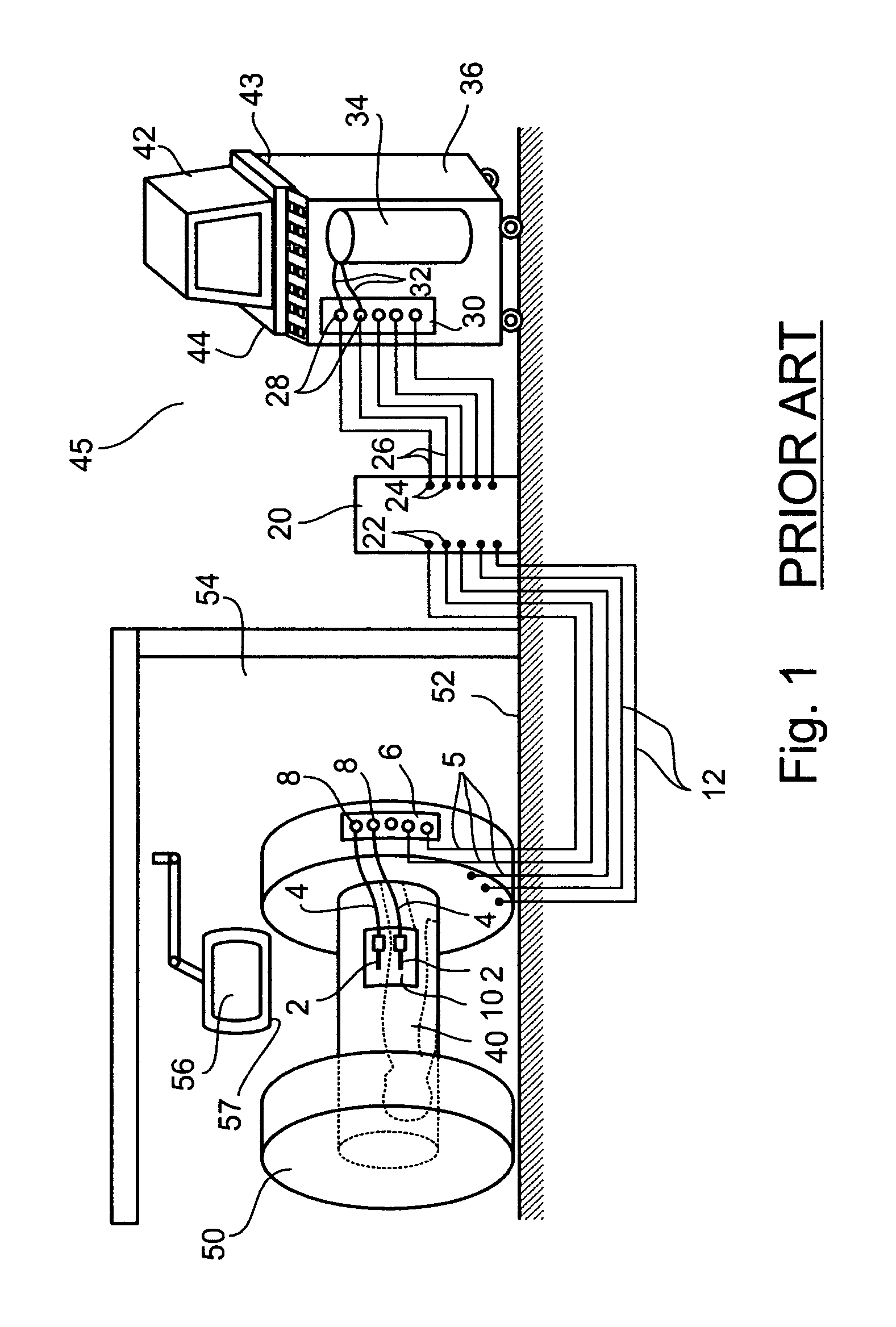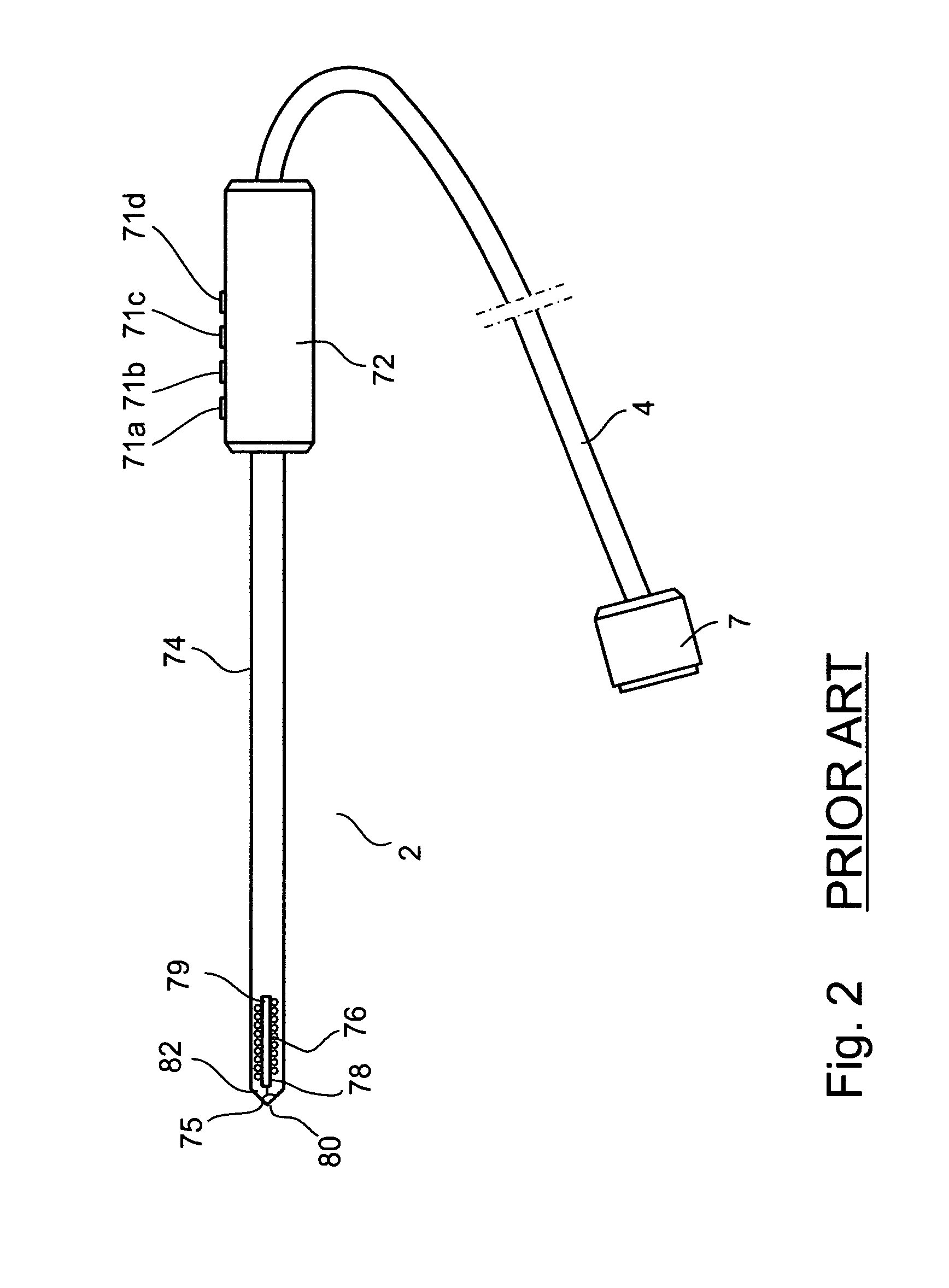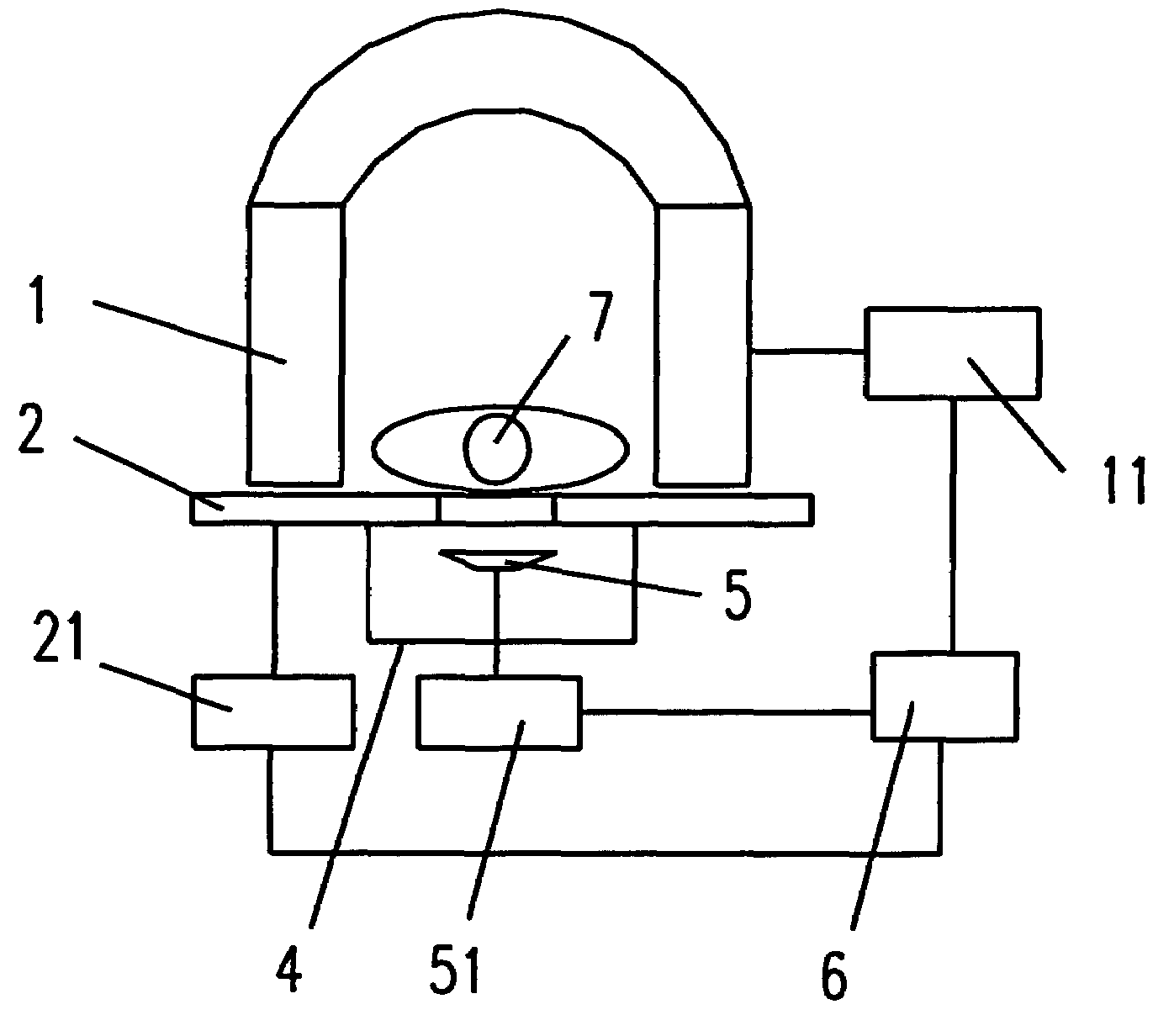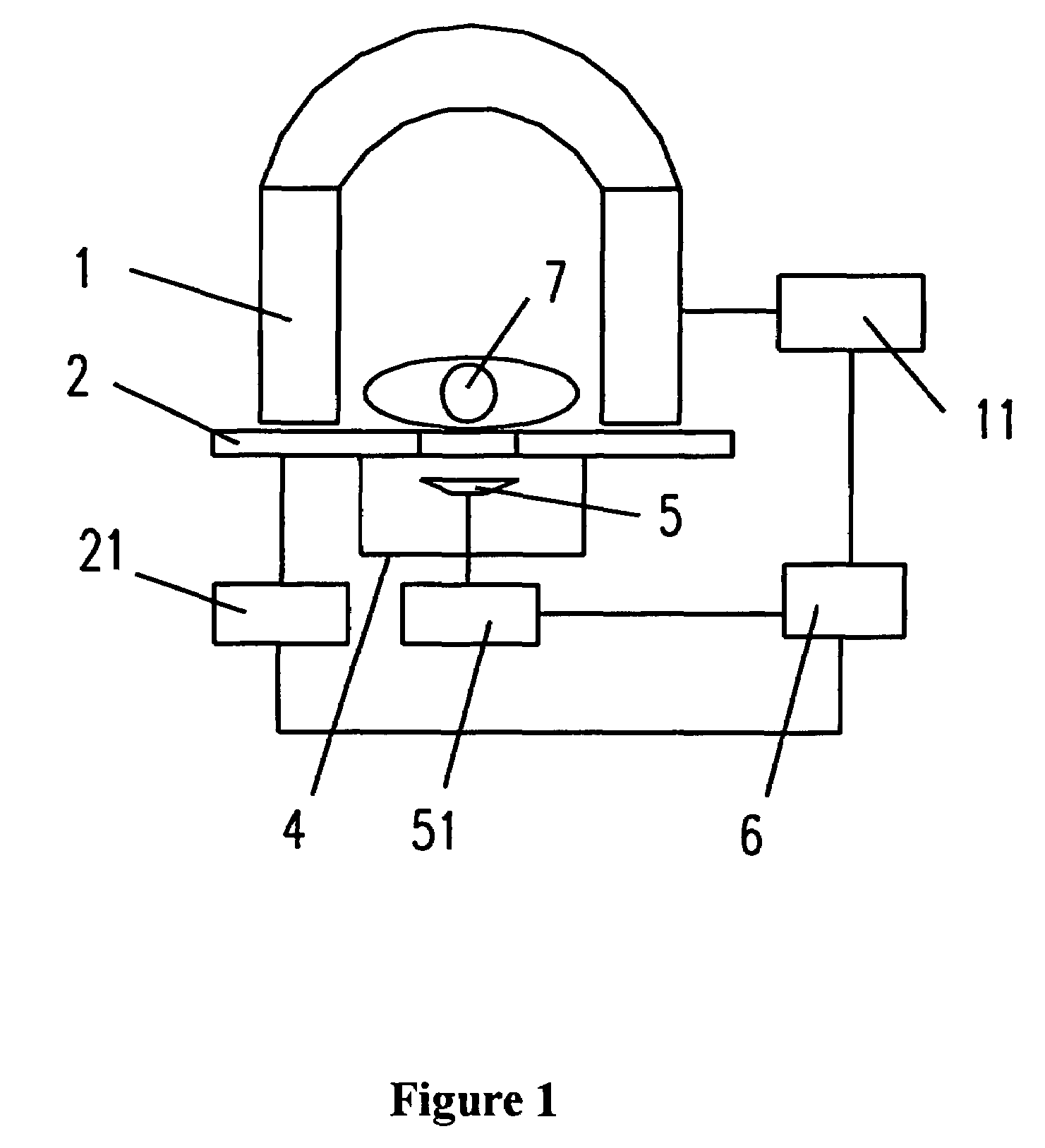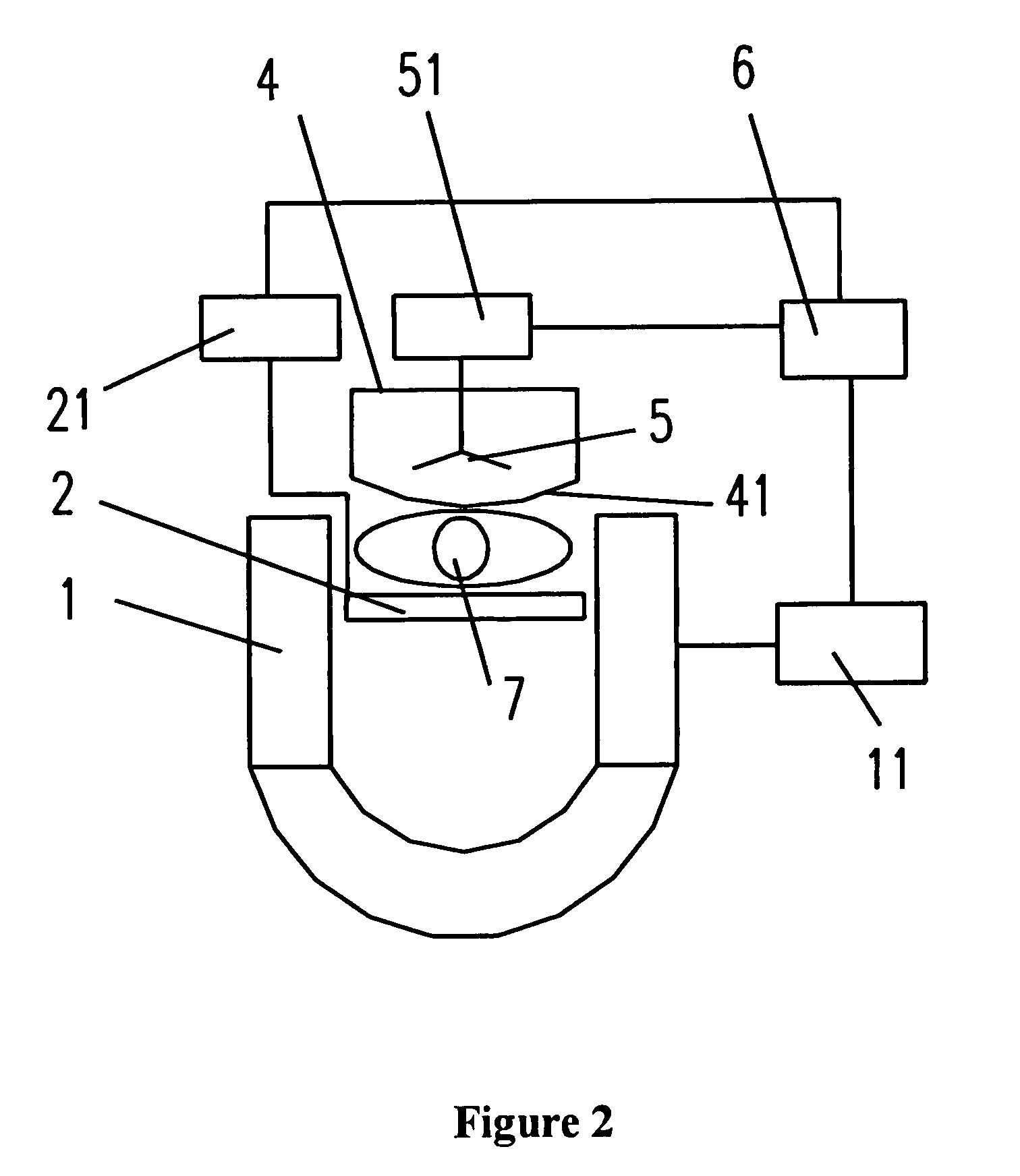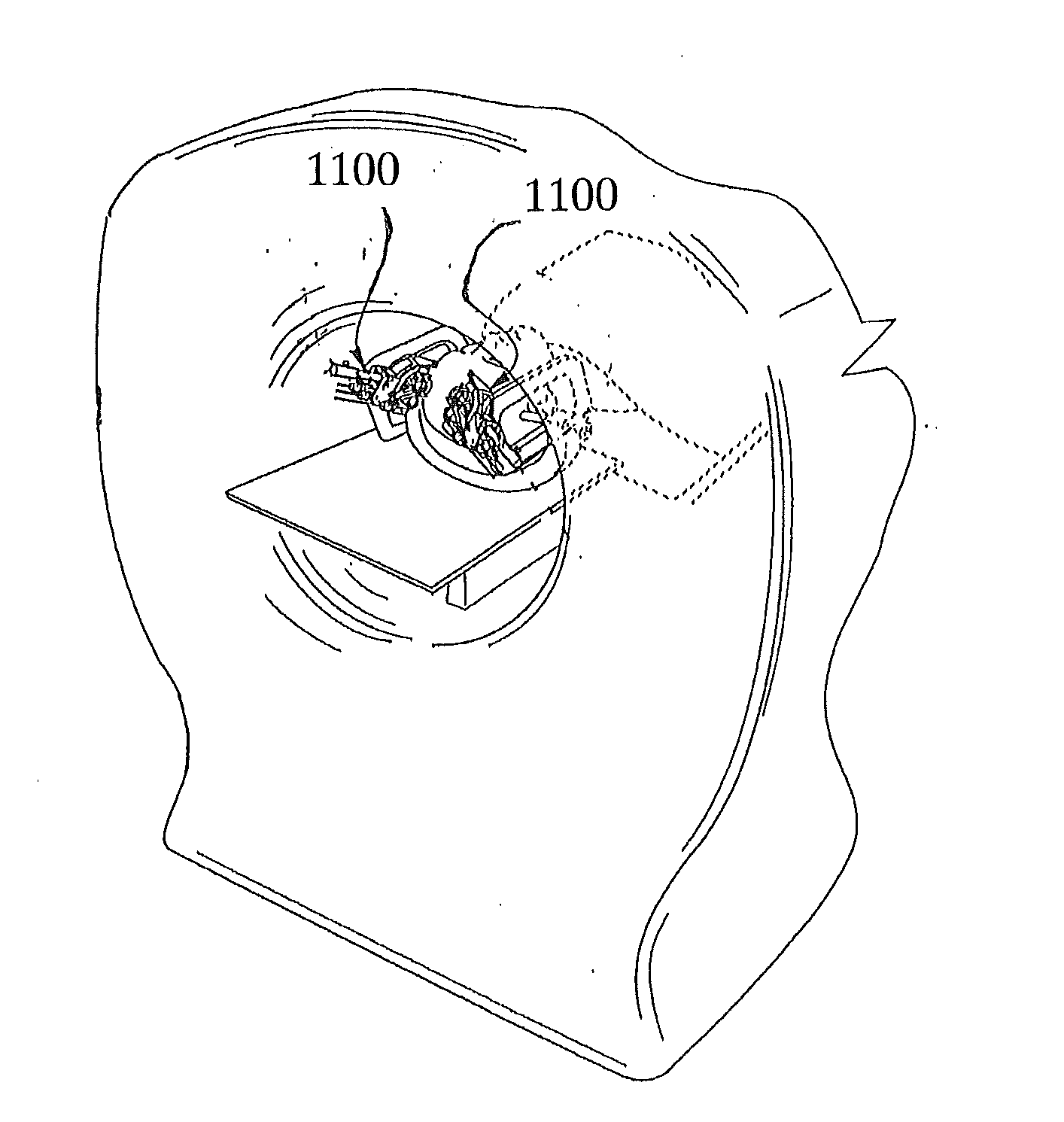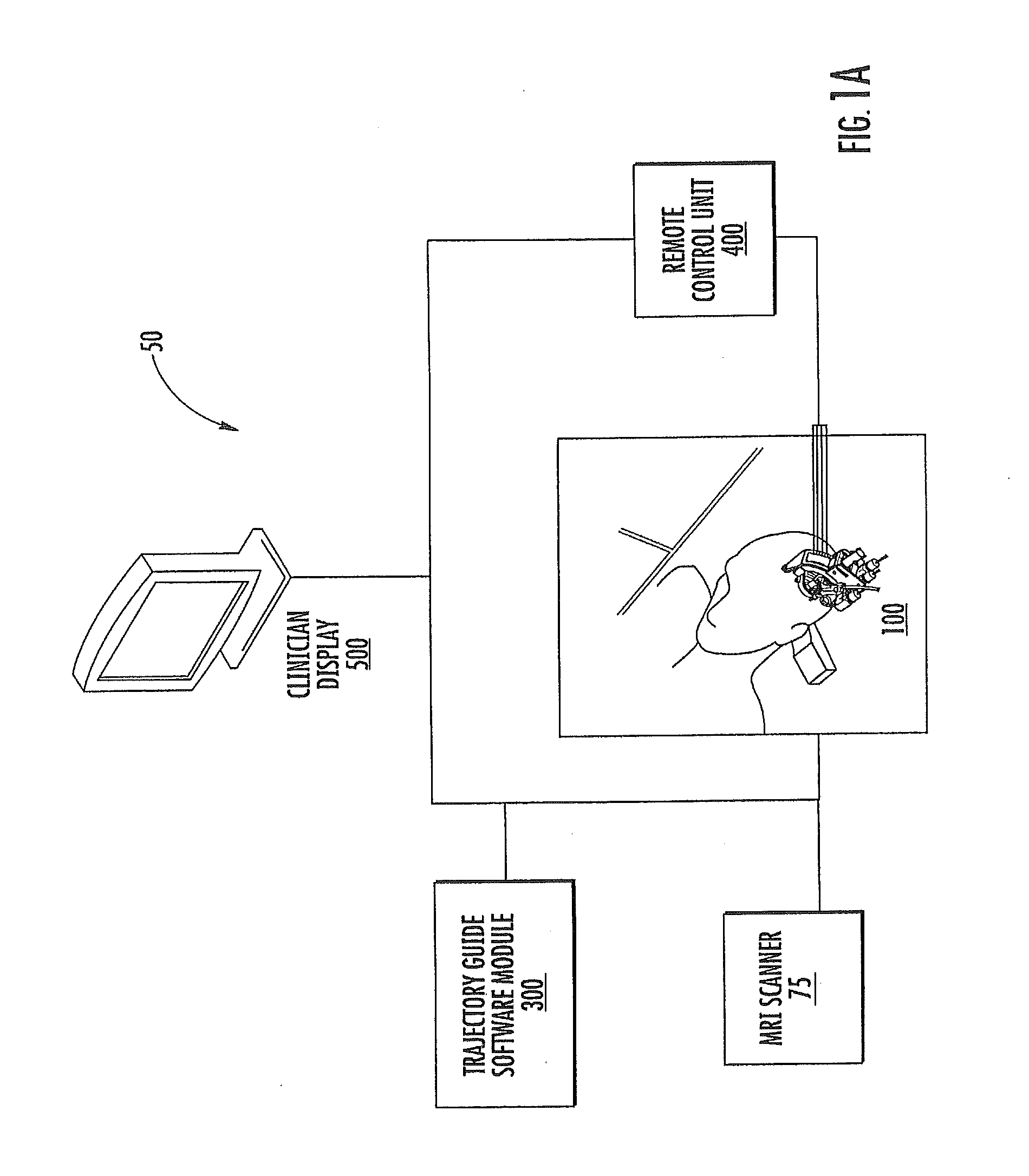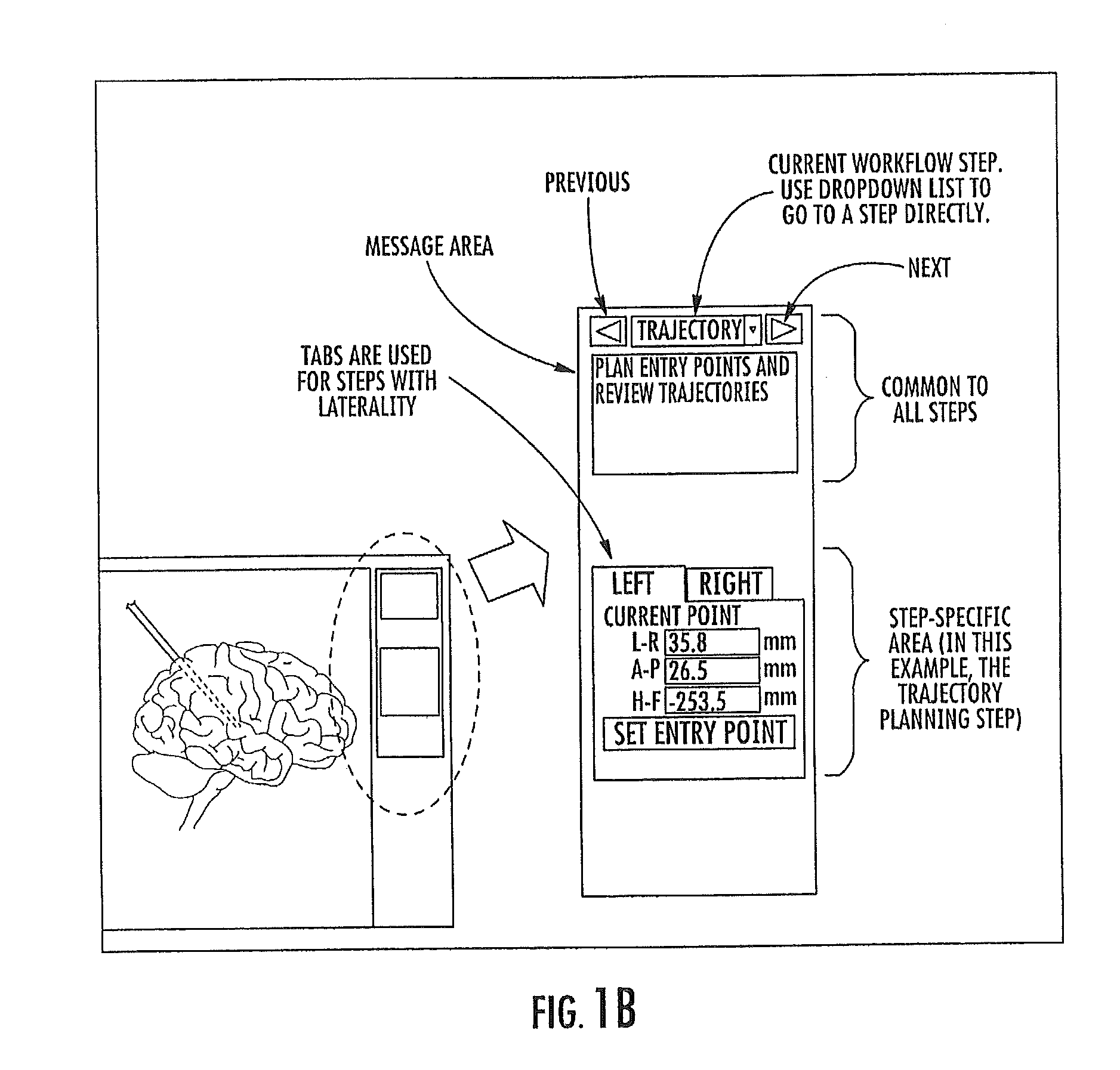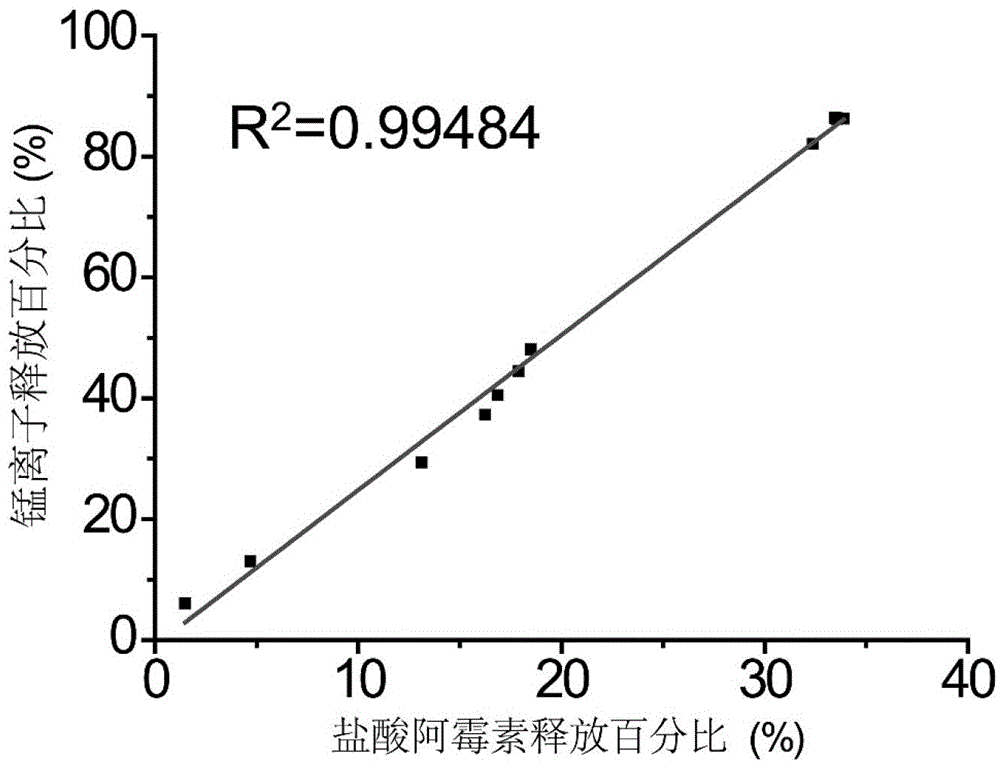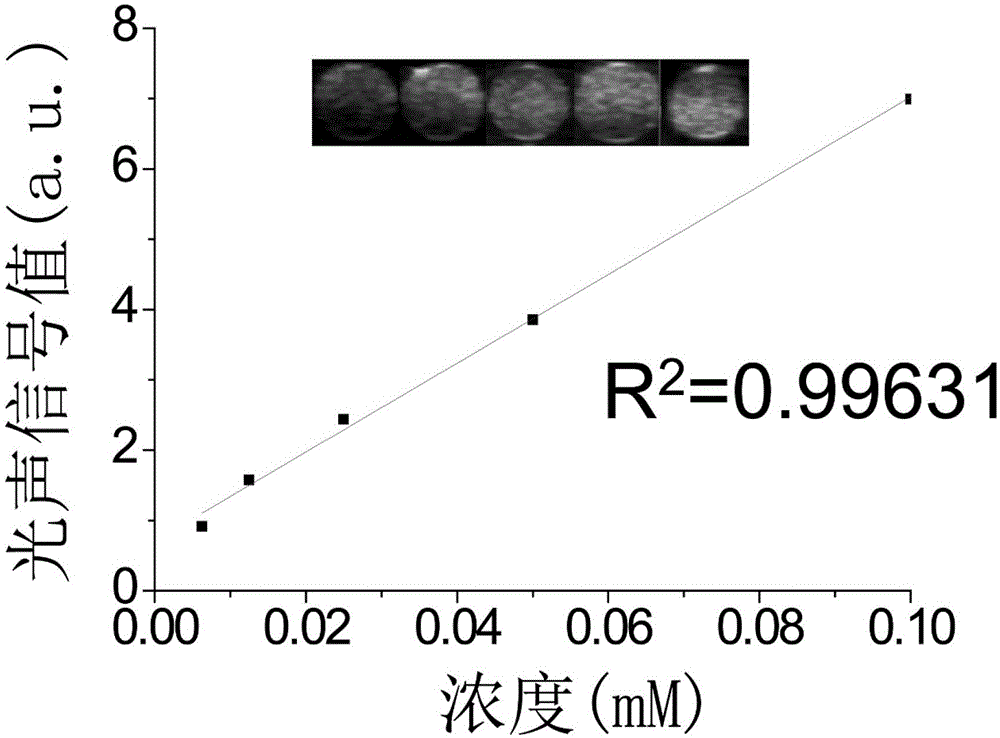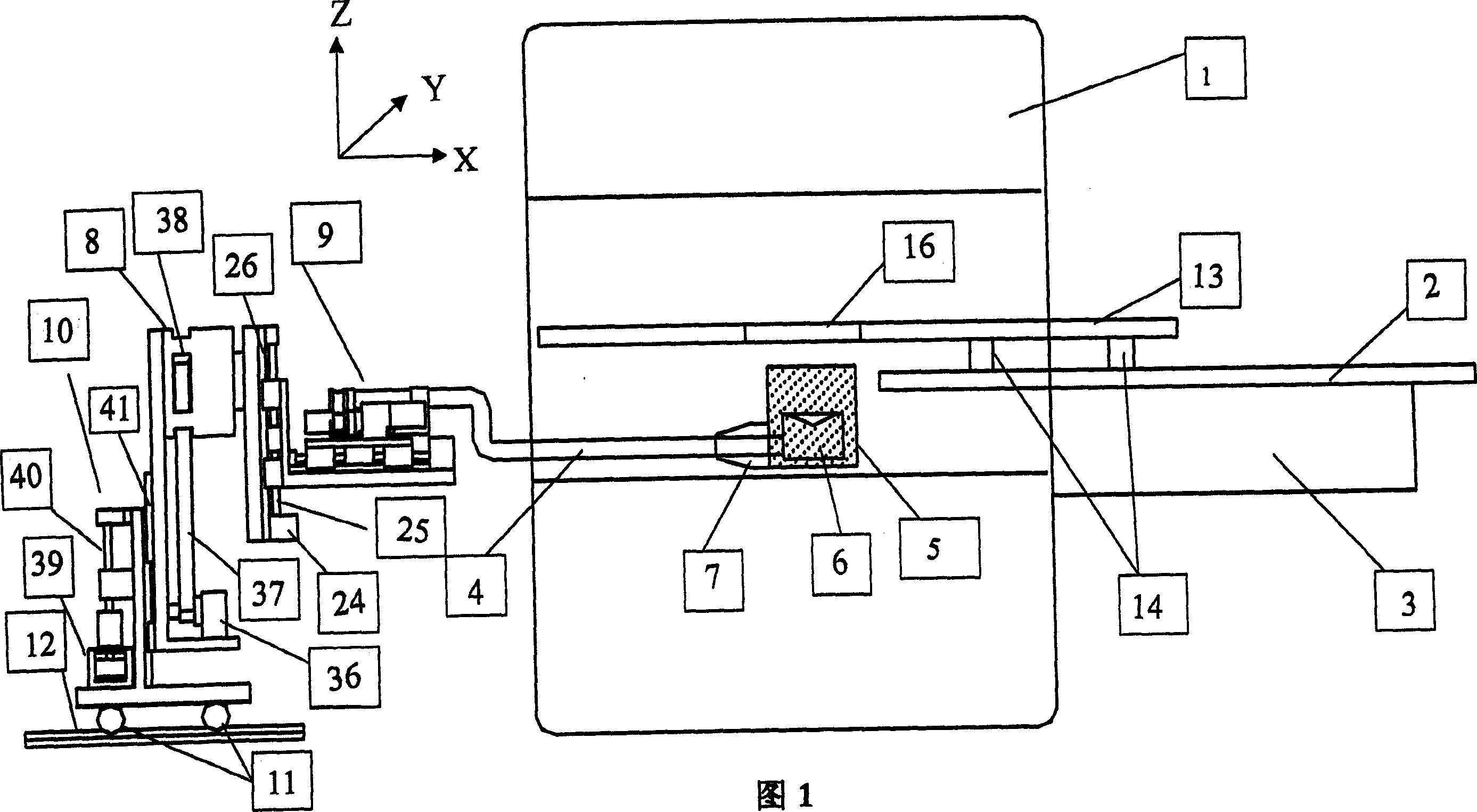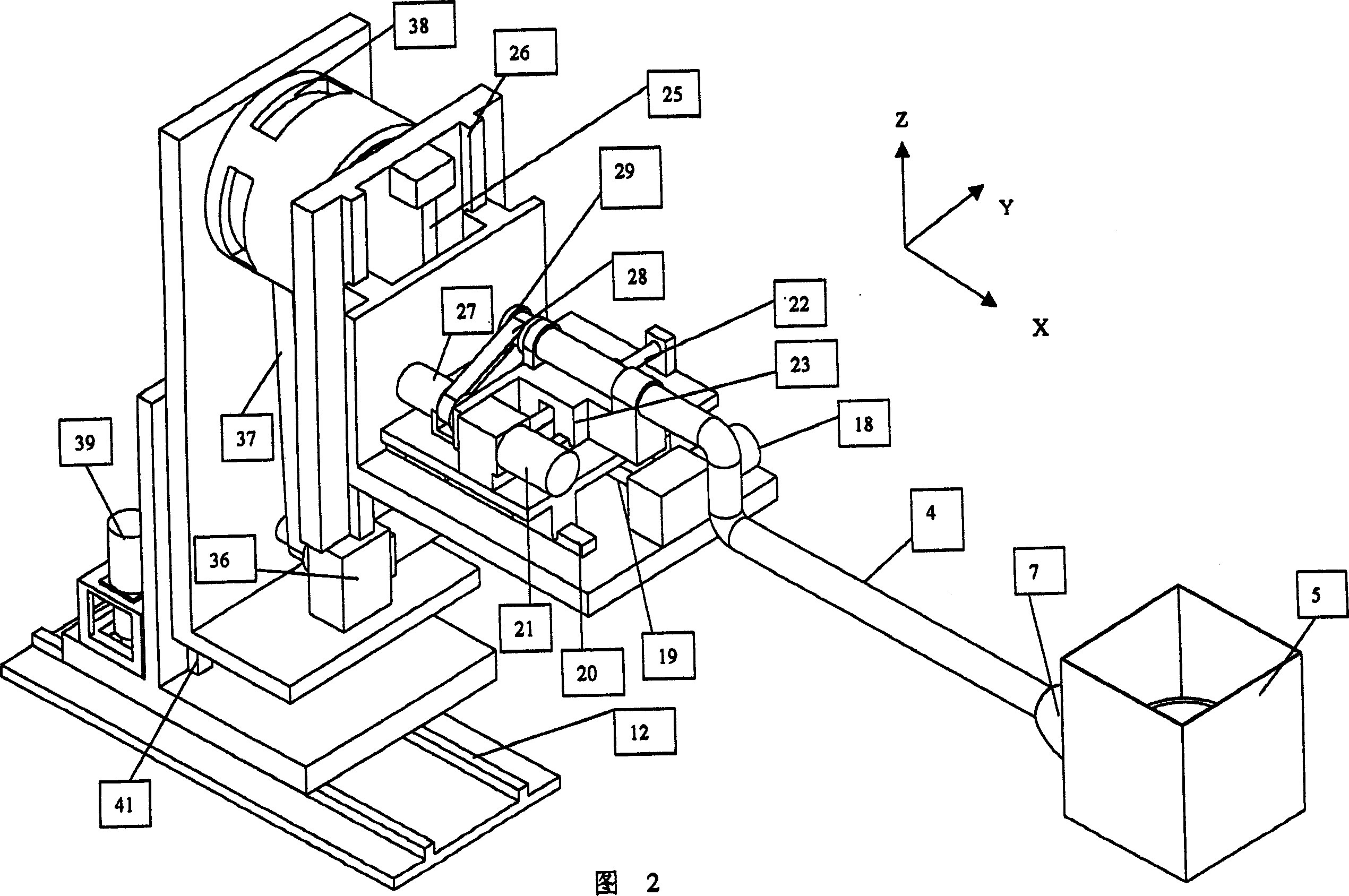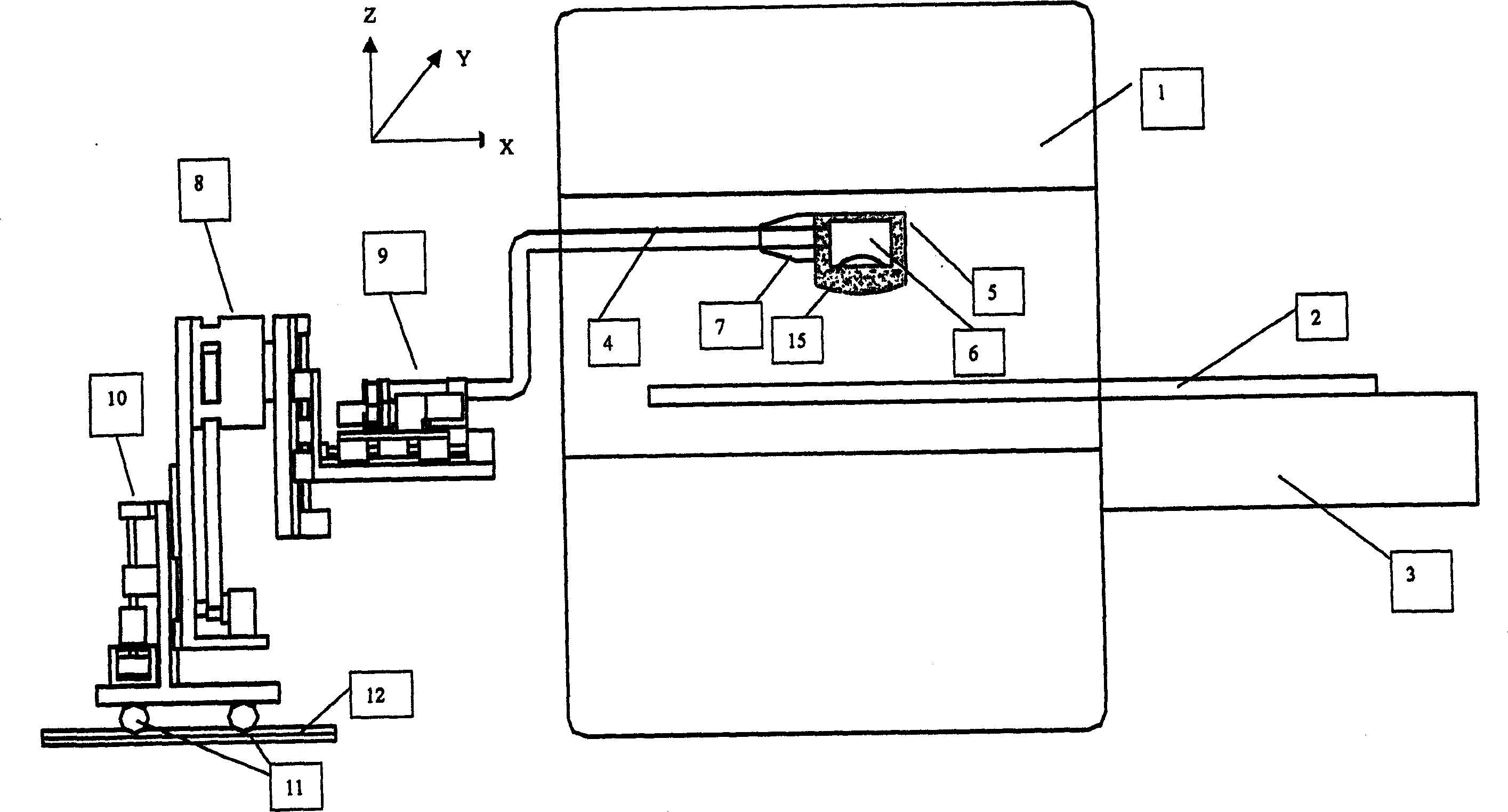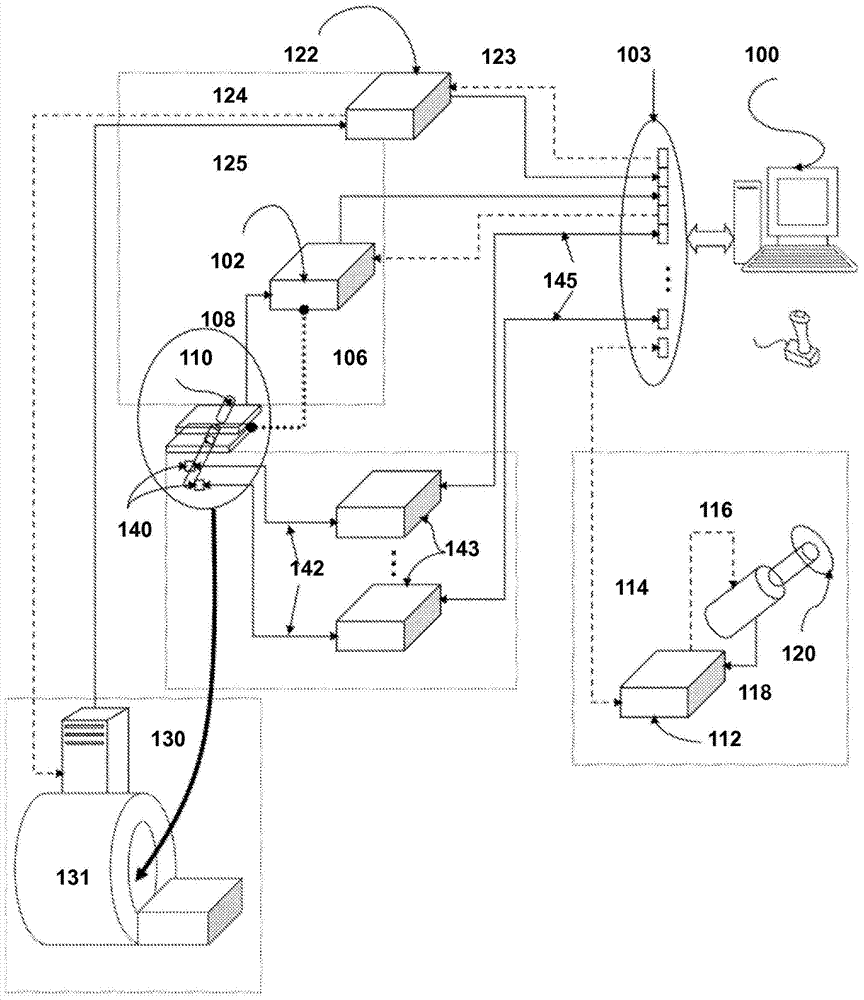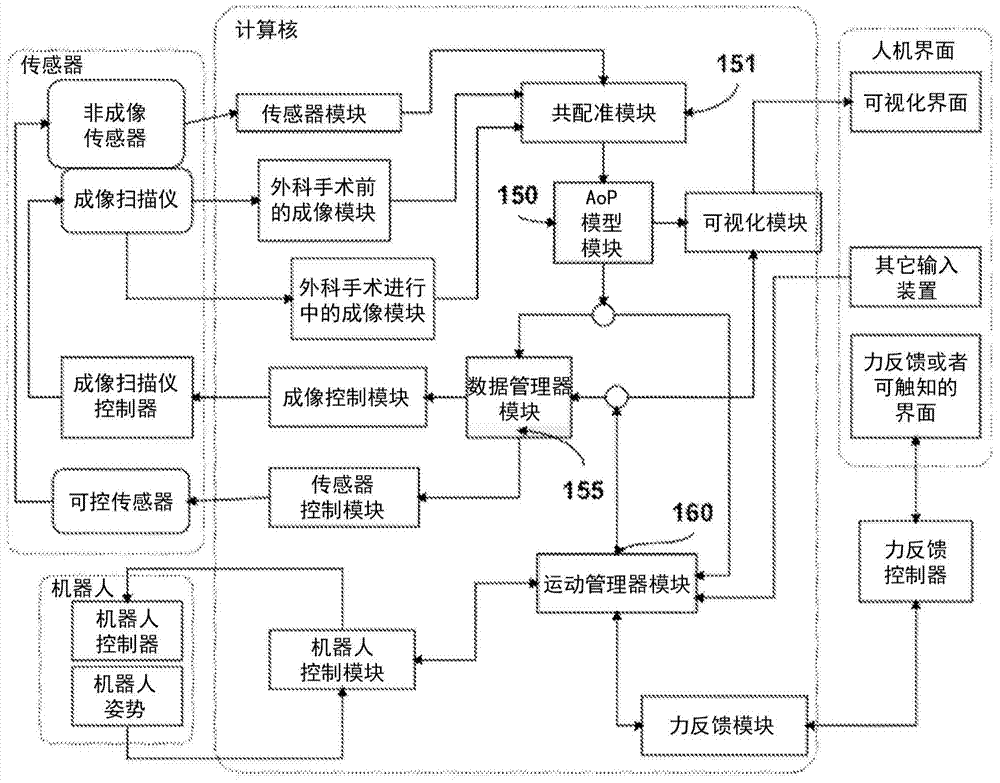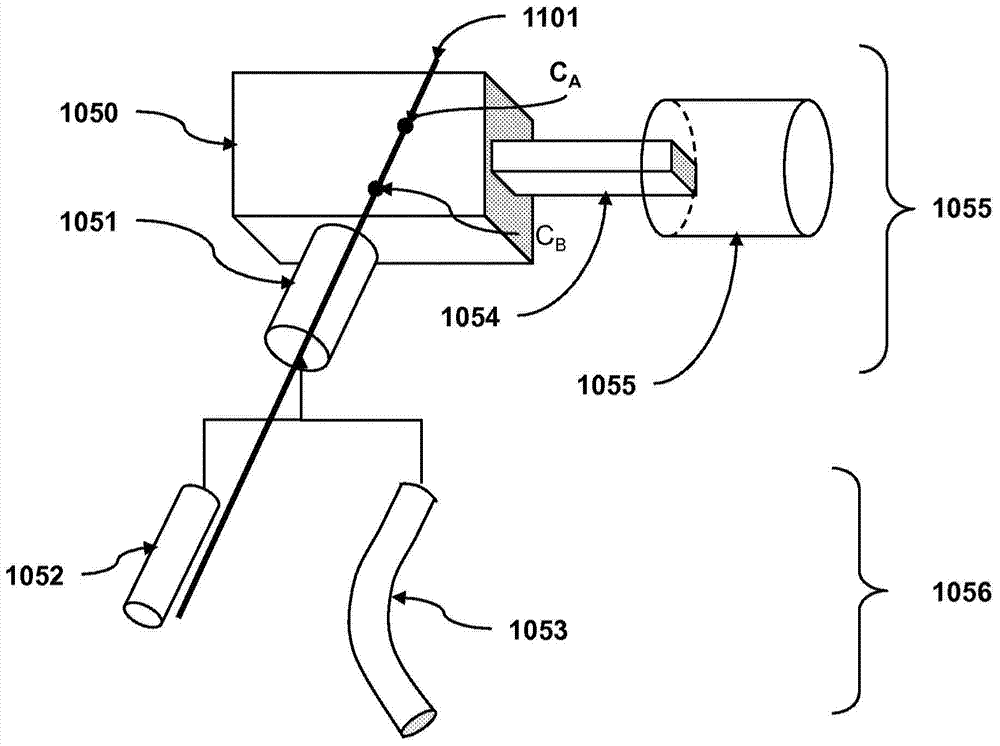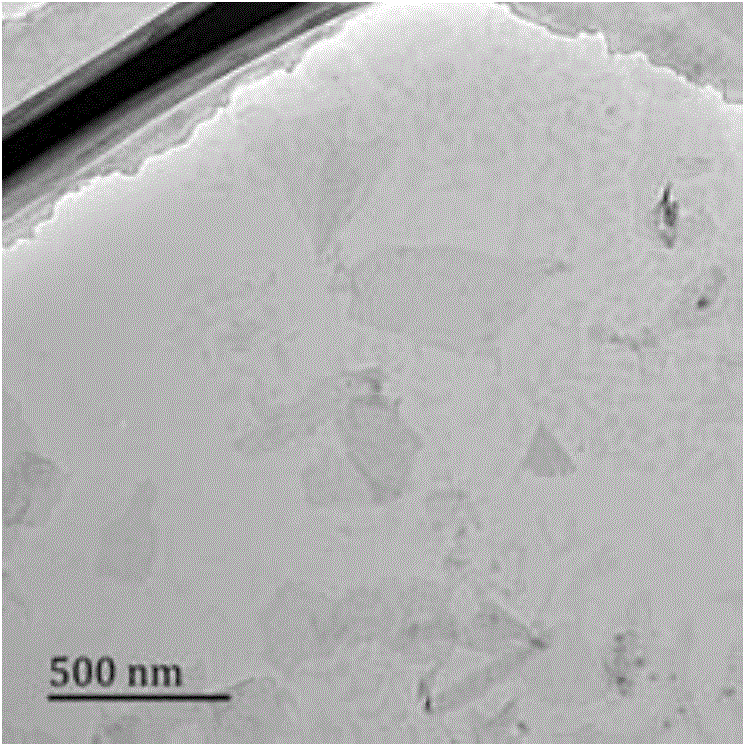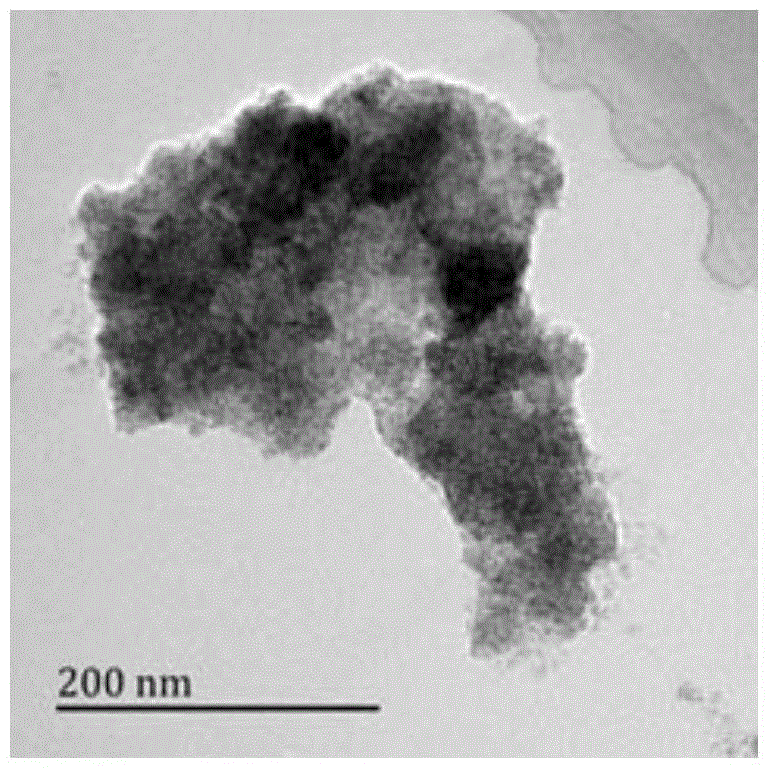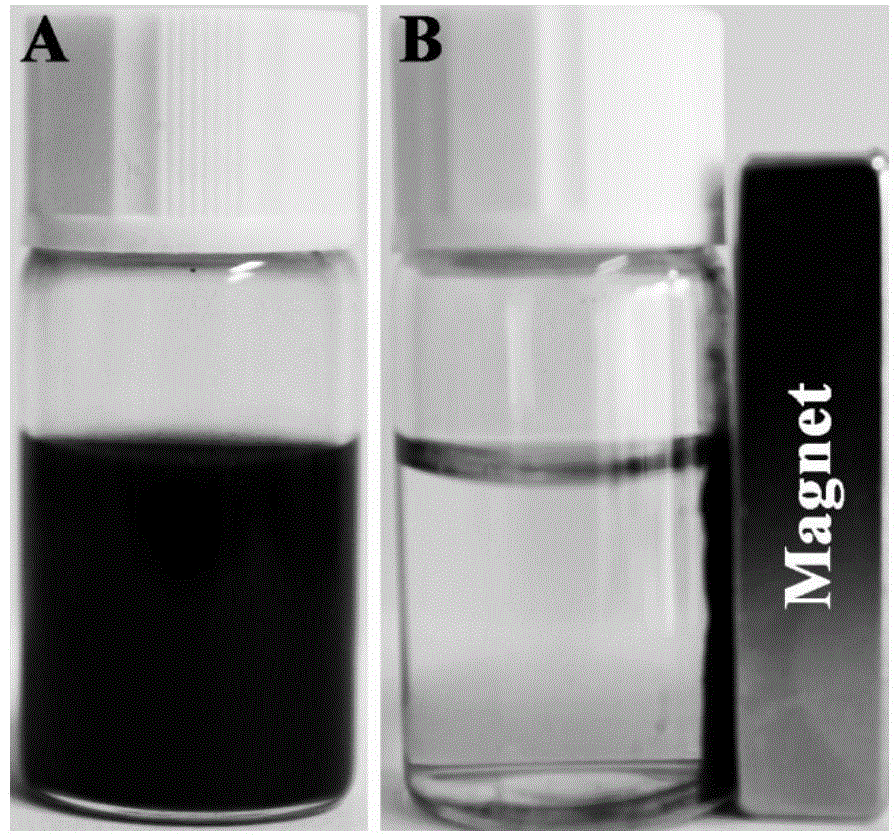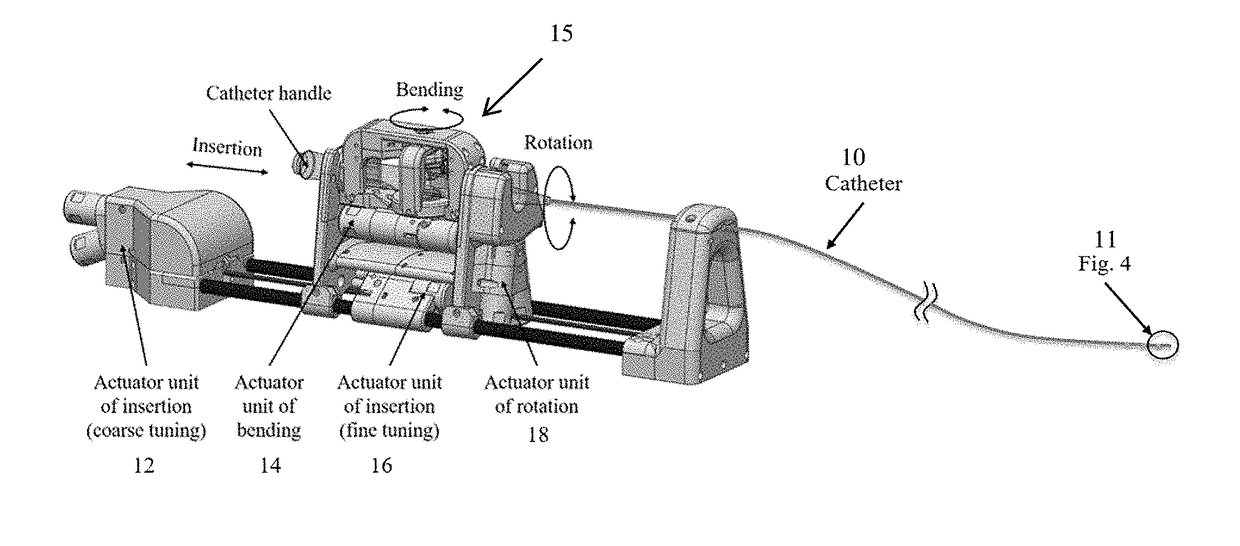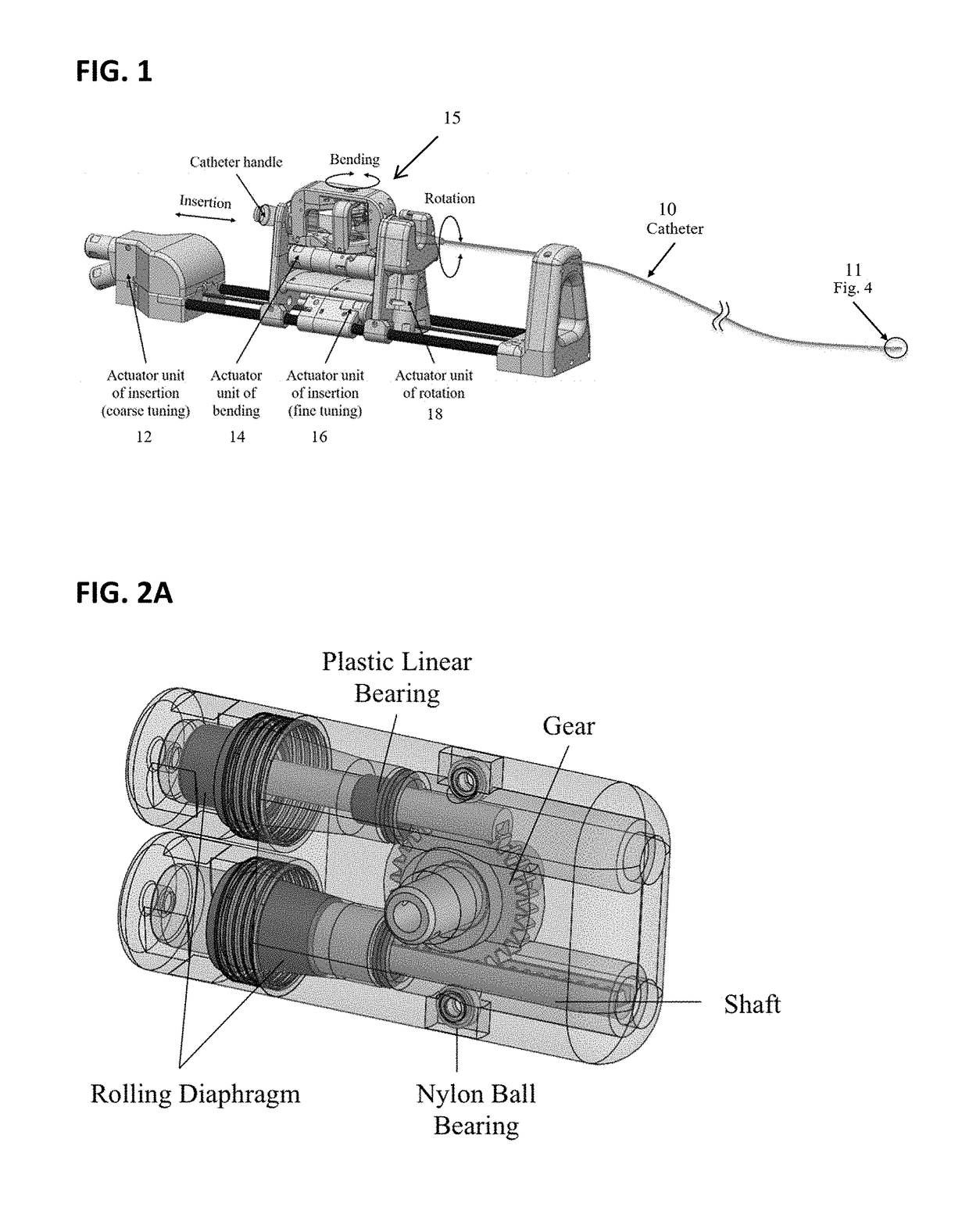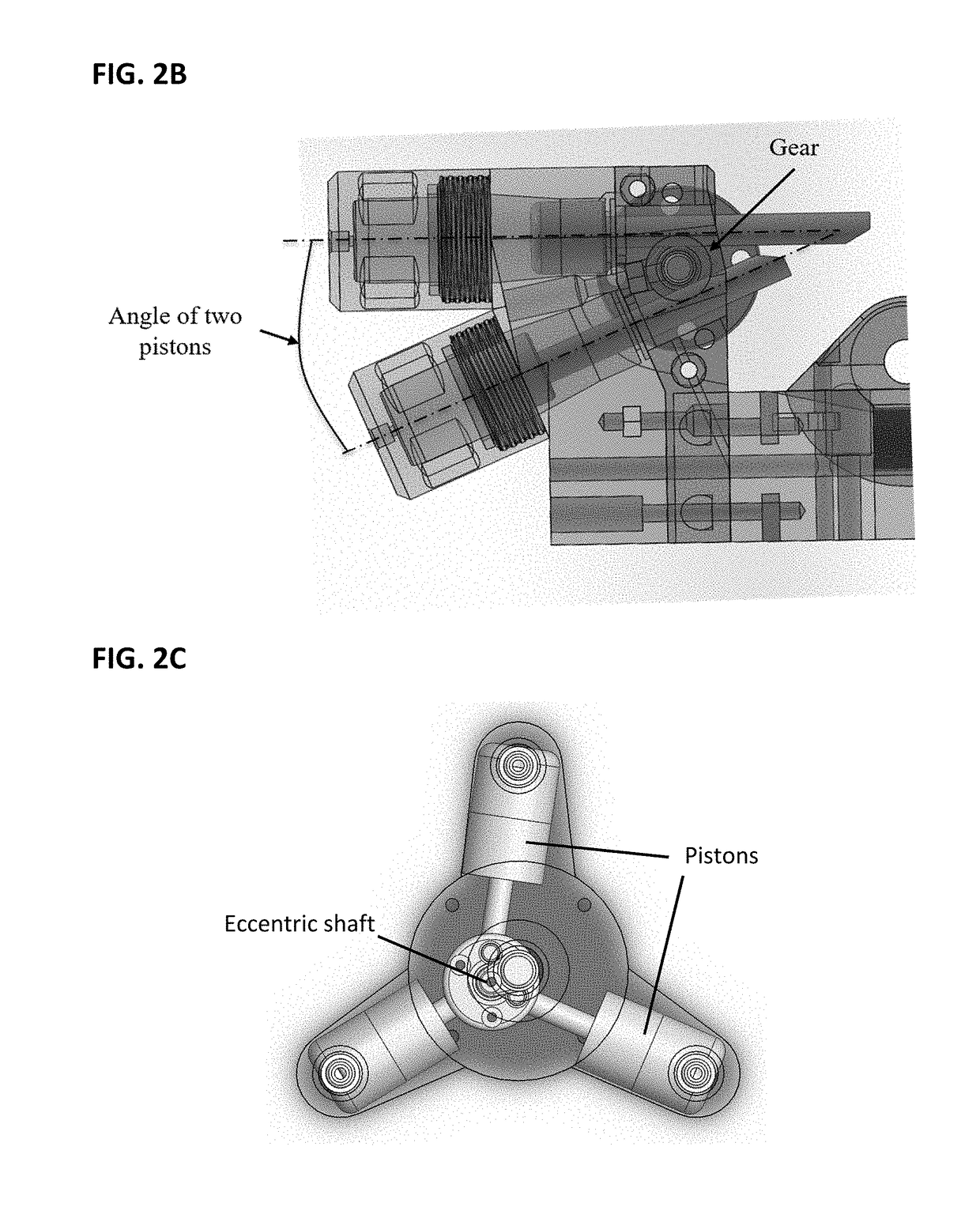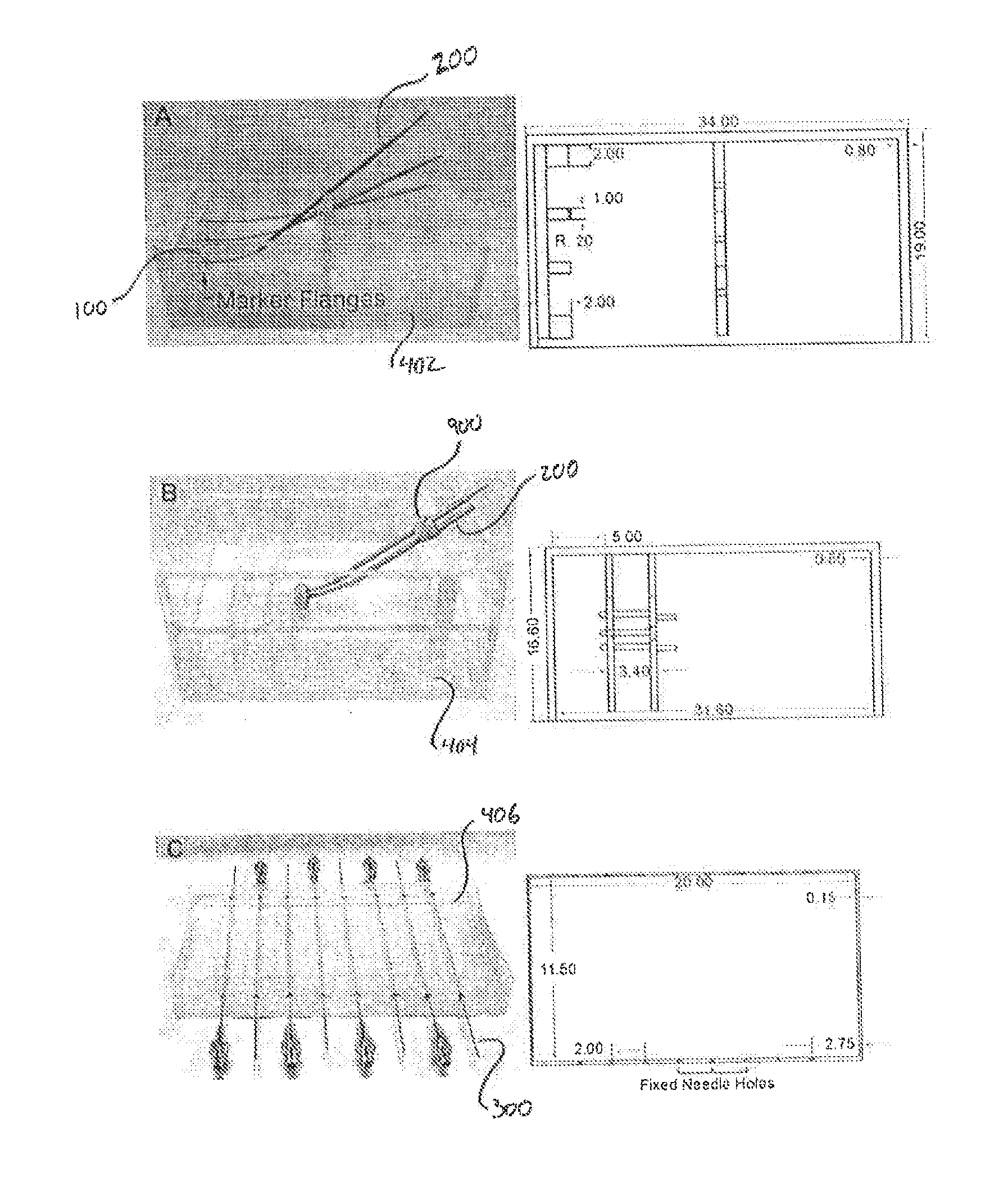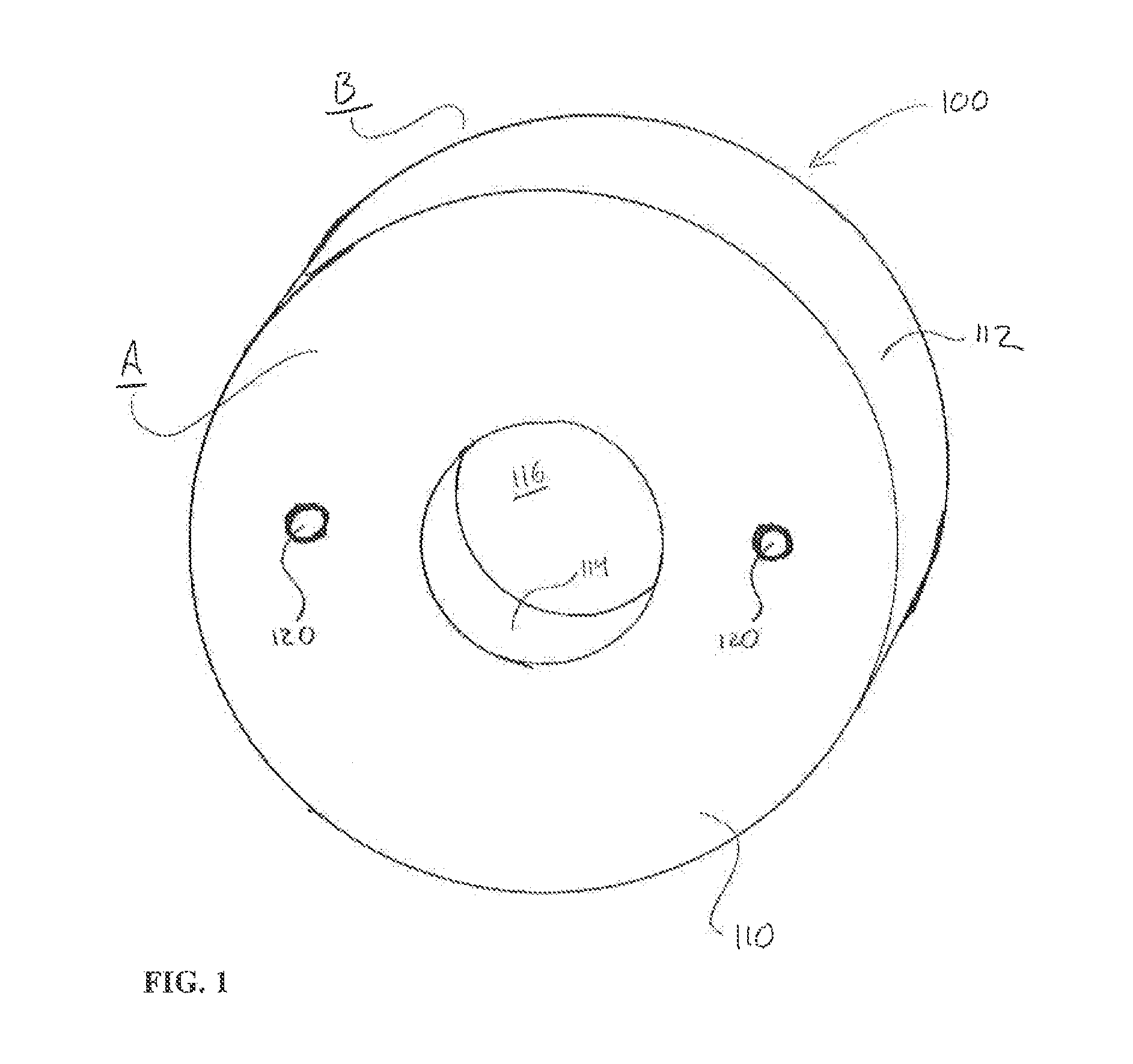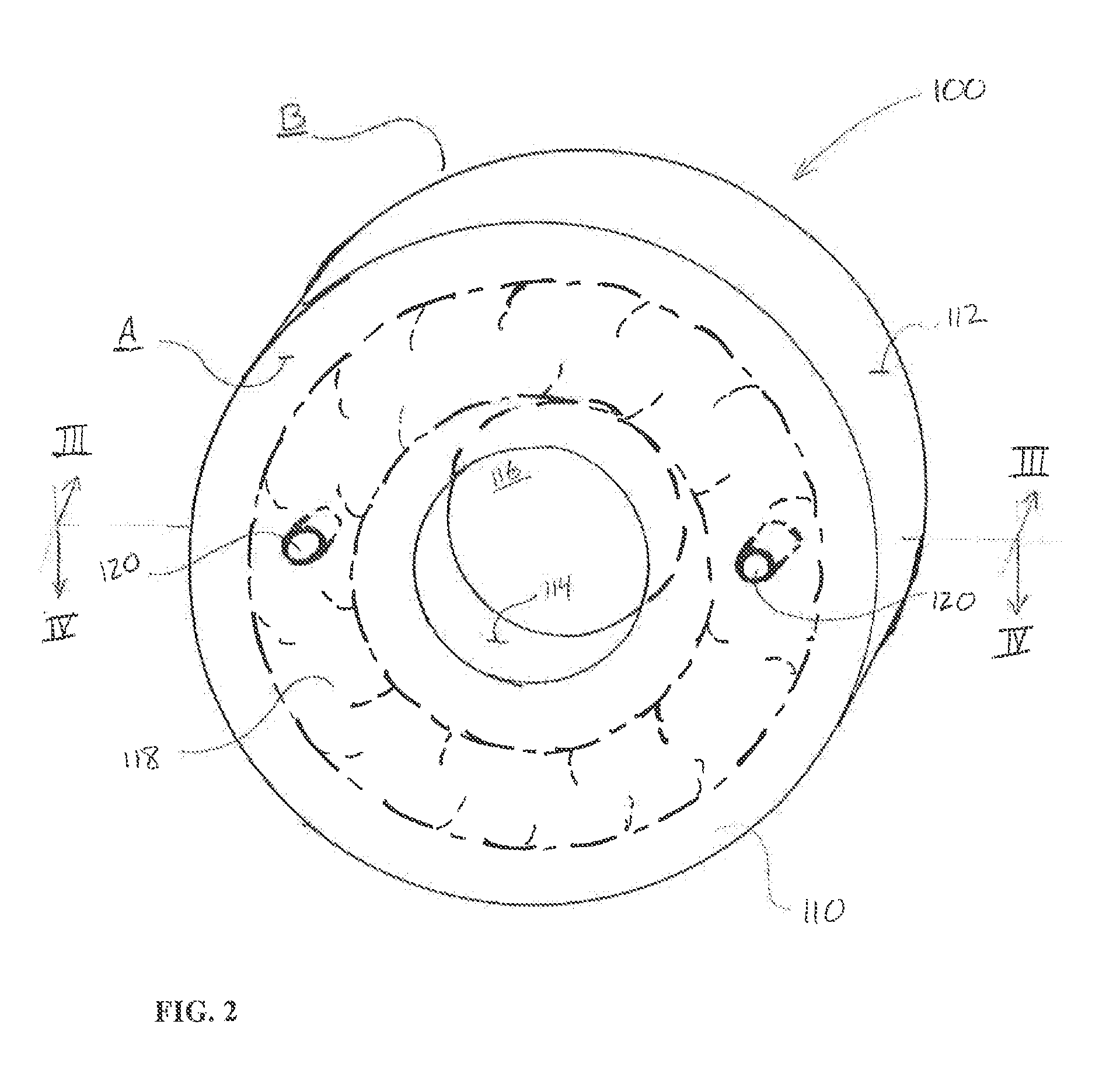Patents
Literature
62 results about "Mri guided" patented technology
Efficacy Topic
Property
Owner
Technical Advancement
Application Domain
Technology Topic
Technology Field Word
Patent Country/Region
Patent Type
Patent Status
Application Year
Inventor
An MRI-Guided Biopsy is highly targeted to select tissue revealed by the MRI imaging. That means physicians and patients have the confidence that any tissue samples come from locations identified as having the most likely chance of containing cancer.
Robotic Device and Systems for Image-Guided and Robot-Assisted Surgery
Provided herein are robotic systems, for example, MRI guided robots, for image-guided robot-assisted surgical procedures and methods for using the same to perform such surgical procedures on a patient. The robotic systems comprise a robotic manipulator device or global positioner, means for actuating the robotic manipulator or global positioner that is mechanically linked thereto and a computer having a memory, a processor and at least one network connection in electronic communication with the robotic system. The actuating means comprises at least one transmission line having a flexible component comprising a displaceable medium, a rigid component comprising rigid pistons or a combination through which actuation is transmitted to the robotic manipulator or global positioner. The computer tangibly stores in memory software modules comprising processor-executable instructions to provide interfaces between the robotic system, an imaging system and an operator and to control operation thereof.
Owner:UNIV HOUSTON SYST
MRI surgical systems for real-time visualizations using MRI image data and predefined data of surgical tools
ActiveUS20090171184A1Increase speedImprove reliabilityMagnetic measurementsSurgical needlesMri guidedDisplay device
MRI-Surgical systems include: (a) at least one MRI-compatible surgical tool; (b) a circuit adapted to communicate with an MRI scanner; and (c) at least one display in communication with the circuit. The circuit electronically recognizes predefined physical characteristics of the at least one tool to automatically segment MR image data provided by the MRI scanner whereby the at least one tool constitutes a point of interface with the system. The circuit is configured to provide a User Interface that defines workflow progression for an MRI-guided surgical procedure and allows a user to select steps in the workflow, and wherein the circuit is configured to generate multi-dimensional visualizations using the predefined data of the at least one tool and data from MRI images of the patient in substantially real time during the surgical procedure.
Owner:CLEARPOINT NEURO INC
Mri-guided localization and/or lead placement systems, related methods, devices and computer program products
MRI compatible localization and / or guidance systems for facilitating placement of an interventional therapy and / or device in vivo include: (a) a mount adapted for fixation to a patient; (b) a targeting cannula with a lumen configured to attach to the mount so as to be able to controllably translate in at least three dimensions; and (c) an elongate probe configured to snugly slidably advance and retract in the targeting cannula lumen, the elongate probe comprising at least one of a stimulation or recording electrode. In operation, the targeting cannula can be aligned with a first trajectory and positionally adjusted to provide a desired internal access path to a target location with a corresponding trajectory for the elongate probe. Automated systems for determining an MR scan plane associated with a trajectory and for determining mount adjustments are also described.
Owner:CLEARPOINT NEURO INC
MRI-guided temperature mapping of tissue undergoing thermal treatment
Systems and methods using magnetic resonance imaging for monitoring the temperature of a tissue mass being heated by energy converging in a focal zone that is generally elongate and symmetrical about a focal axis. A first plurality of images of the tissue mass are acquired in a first image plane aligned substantially perpendicular to the focal axis. A cross-section of the focal zone in the first image plane is then defined from the first plurality of images. A second plurality of images are acquired of the tissue mass in a second image plane aligned substantially parallel to the focal axis, the second image plane bisecting the first image plane at approximately a midpoint of the defined focal zone cross-section.
Owner:INSIGHTEC
MRI-guided medical interventional systems and methods
ActiveUS8374677B2Quick fixFacilitated releaseHead electrodesMagnetic measurementsMri guidedEngineering
Owner:CLEARPOINT NEURO INC
MRI surgical systems for real-time visualizations using MRI image data and predefined data of surgical tools
ActiveUS8315689B2Increase speedImprove reliabilityMagnetic measurementsSurgical needlesMri guidedDisplay device
MRI-Surgical systems include: (a) at least one MRI-compatible surgical tool; (b) a circuit adapted to communicate with an MRI scanner; and (c) at least one display in communication with the circuit. The circuit electronically recognizes predefined physical characteristics of the at least one tool to automatically segment MR image data provided by the MRI scanner whereby the at least one tool constitutes a point of interface with the system. The circuit is configured to provide a User Interface that defines workflow progression for an MRI-guided surgical procedure and allows a user to select steps in the workflow, and wherein the circuit is configured to generate multi-dimensional visualizations using the predefined data of the at least one tool and data from MRI images of the patient in substantially real time during the surgical procedure.
Owner:CLEARPOINT NEURO INC
Nanoparticle loaded stem cells and their use in MRI guided hyperthermia
InactiveUS20120283503A1Enhanced MR propertyEnough timeElectrotherapyMedical devicesMri guidedMagnetite Nanoparticles
The present invention provides stem cells loaded with bi-functional magnetic nanoparticles (nanoparticle-loaded stem cells (NLSC)) that both: a) heat in an alternating magnetic field (AMF); and b) provide MRI contrast enhancement for MR-guided hyperthermia. The nanoparticles in the NLSC are non-toxic, and do not alter stem cell proliferation and differentiation, the nanoparticles do however, become heated in an alternating magnetic field, enabling therapeutic applications for cancer treatment. NLSC can deliver hyperthermia to hypoxic areas in tumors for sensitization of those areas to subsequent treatment, thus delivering therapy to the most treatment-resistant tumor regions. The heating of diseased tissue either results in direct cell killing or makes the tumor more susceptible to radio- and / or chemotherapy. The NLSC of the present invention can be used for MR image-guided hyperthermia in oncology, in stem cell research for cell tracking and heating, and for elimination of mis-injected stem cells.
Owner:OSTROVSKA LYUBOV PHD
MRI-guided localization and/or lead placement systems, related methods, devices and computer program products
MRI compatible localization and / or guidance systems for facilitating placement of an interventional therapy and / or device in vivo include: (a) a mount adapted for fixation to a patient; (b) a targeting cannula with a lumen configured to attach to the mount so as to be able to controllably translate in at least three dimensions; and (c) an elongate probe configured to snugly slidably advance and retract in the targeting cannula lumen, the elongate probe comprising at least one of a stimulation or recording electrode. In operation, the targeting cannula can be aligned with a first trajectory and positionally adjusted to provide a desired internal access path to a target location with a corresponding trajectory for the elongate probe. Automated systems for determining an MR scan plane associated with a trajectory and for determining mount adjustments are also described.
Owner:CLEARPOINT NEURO INC
Magnetic resonance imaging needle antennas
InactiveUS7551953B2Reduce riskLogperiodic antennasRadiating elements structural formsMri guidedPuncture procedure
The invention describes a system, method, and means for an MRI transseptal needle that can be visible on an MRI, can act as an antenna and receive MRI signals from surrounding subject matter to generate high-resolution images and can enable real-time active needle tracking during MRI guided transseptal puncture procedures.
Owner:SURGIVISION
Hyperthermia treatment and probe therefor
An MRI guided surgical apparatus includes a heat source formed by a laser and an optical fiber carrying the heat energy into a part to be coagulated by hyperthermia with an end reflector to direct the energy in a beam to one side of the fiber end. A reinforcing sleeve for the fiber is mounted in a shielded, Piezo-electric motor which causes movement of the fiber longitudinally and angularly within a rigid elongate cannula. A magnetic resonance imaging system is arranged to generate a series of output signals over a period of time representative of temperature in the part as the temperature of the part changes during that time. The heat source is controlled in heat energy applied and location and orientation of the beam to stop heating when the temperature at the boundary of a tumor reaches the required hyperthermic temperature. Cooling of the tip portion of the probe is effected by expansion of a supplied cooling fluid in gaseous form through a restrictive orifice into an expansion zone at the probe end. The fiber is thus encased in a stiff tubular titanium probe with a relatively small fluid supply duct along the inside of the probe with the interior of the probe acting as a return duct for the expanded gas. Thus the fiber end is contained in gas rather than liquid and the temperature of the probe end can be monitored by a sensor in the probe end and controlled by controlling the pressure in the supplied cooling fluid. The probe is driven in the longitudinal and rotational directions to move the fiber tip.
Owner:MONTERIS MEDICAL
Bulk metallic glass medical instruments, implants, and methods of using same
InactiveUS20030111142A1Reduce capacityLow corrosion rateIncision instrumentsSurgical needlesMri guidedAlloy
MRI-compatible medical instruments and appliances are made using bulk metallic glass alloys. MRI-guided methods include the use of articles that include bulk metallic glass alloys.
Owner:HORTON JOSEPH A JR +1
MRI-guided interventional systems that can track and generate dynamic visualizations of flexible intrabody devices in near real time
InactiveCN102625669APrecise deliveryAccurate confirmationSurgical navigation systemsSurgical systems user interfaceMri guidedTissue characterization
MRI guided cardiac interventional systems are configured to generate dynamic (interactive) visualizations of patient anatomy and medical devices during an MRI-guided procedure and may also include at least one user selectable 3-D volumetric (tissue characterization) map of target anatomy, e.g., a defined portion of the heart.
Owner:MRI INTERVENTIONS INC
Systems for MRI-guided cryosurgery
ActiveUS20060155268A1Successfully addressDiagnosticsSurgical instruments for coolingMri guidedAutomatic control
The present invention is of systems and methods for MI-guided cryosurgery. The systems enable a surgeon positioned next to a patient and within an MRI, magnetic environment both to monitor progress of a cryosurgical intervention by observing MRI images of the intervention in real time, and to fully control aspects of operation of a cryosurgery Apparatus by remotely controlling a fluid supply source positioned external to that magnetic environment, which fluid supplies cryogenic fluids to cryoprobes operable within that magnetic environment, thereby enabling real-time MRI-guided control of a cryoablation process. A preferred embodiment enables calculation and display of borders of an ablation volume surrounding a cooled cryoprobe in real time, and, further enables automatic control of elements of a cryoablation procedure, which elements are triggered when shape and position of that calculated ablation volume are found to bear a predefined relationship to the shape and position of a predefined treatment target.
Owner:GALIL MEDICAL
MRI surgical systems for real-time visualizations using MRI image data and predefined data of surgical tools
InactiveCN101918855AEasy to controlPrecise deliveryElectrotherapySurgical needlesMri guidedDisplay device
MRI-Surgical systems include: (a) at least one MRI-compatible surgical tool; (b) a circuit adapted to communicate with an MRI scanner; and (c) at least one display in communication with the circuit. The circuit electronically recognizes predefined physical characteristics of the at least one tool to automatically segment MR image data provided by the MRI scanner whereby the at least one tool constitutes a point of interface with the system. The circuit is configured to provide a User Interface that defines workflow progression for an MRI-guided surgical procedure and allows a user to select steps in the workflow, and wherein the circuit is configured to generate multi-dimensional visualizations using the predefined data of the at least one tool and data from MRI images of the patient in substantially real time during the surgical procedure.
Owner:MRI INTERVENTIONS INC
Patient Alignment in MRI Guided Radiation Therapy
InactiveUS20130235969A1Simple methodSharp contrastMaterial analysis using wave/particle radiationRadiation/particle handlingMri guidedTransformation algorithm
Apparatus for radiation therapy combines a patient table, an MRI and a radiation treatment apparatus mounted in a common treatment room with the MR magnet movable through a radiation shielded door to an imaging position. An initial MR image and an initial X-ray image is used to generate an RT program for the patient to be carried out in a plurality of separate treatment steps. Before carrying out the procedure, a registration step is performed using a phantom by which X-ray images are registered relative to MR images to generate a transformation algorithm required to align the MR images of the part of the patient relative to the X-ray images. Prior to each separate treatment step a current MR image of the part of the patient is obtained and the transformation algorithm data is used from the current MR image is used in guiding the RT treatment step.
Owner:IMRIS
MRI guided radiation therapy
ActiveUS8295906B2Accurate predictionMagnetic measurementsDiagnostic recording/measuringMri guidedReal-time data
Radiation therapy of a lesion within a patient is guided to take into account movement of the lesion caused by respiration and / or cardiac effects by using MRI to image the patient while on the treatment support to obtain a series of images of a location of the lesion within the patient while obtaining data relating to respiration and / or cardiac function of the patient to generate lesion movement data as a function of respiration and / or cardiac function. After the magnet is removed from the bunker, during the radiation therapy, real time data relating to respiration and / or cardiac function of the patient is used to guide the radiation therapy using the lesion movement data obtained during the imaging.
Owner:DEERFIELD IMAGING INC
Device and method for mri-guided breast interventions
ActiveUS20090259122A1Improve accuracySuperior in pointUltrasonic/sonic/infrasonic diagnosticsSurgical needlesMri guidedComputerized system
A method and apparatus for radially compressing bodily tissue and performing medical procedures from a selected one of a plurality of circumferential positions and angles, a selected one of a plurality of different elevations and elevational angles. Some embodiments include a tissue-compression fixture having members that are configured to be moved to radially compress bodily tissue such that each of a plurality of areas of biological tissue are exposed between the plurality of members, and wherein the fixture is compatible with use in an MRI machine in operation; an actuator having a receiver for a medical-procedure probe; and a computer system operatively coupled to the actuator to move the probe. The computer receives user commands, and based on the commands, moves the actuator to a selected one of a plurality of different positions around the tissue-compression fixture and then extends the probe into the patient.
Owner:MRI ROBOTICS
Flexible polymer electrode for mri-guided positioning and radio frequency ablation
An electrode for use on a medical device is disclosed. The electrode may have a main body of electrically conductive material extending along an axis and may have a proximal end and a distal end. The electrode may also include a magnetic resonance imaging (MRI) tracking coil disposed in the body. The MRI tracking coil may comprise electrically insulated wire. A catheter including an electrode, as well as a method for determining the location of an electrode, are also disclosed.
Owner:ST JUDE MEDICAL ATRIAL FIBRILLATION DIV
Mri Guided Ultrasound Therapy Apparatus
InactiveUS20080275330A1Reduce space constraintsReduce magnetic interferenceUltrasonic/sonic/infrasonic diagnosticsUltrasound therapyMri guidedPower flow
This invention provides a MRI guided ultrasound therapy apparatus. It comprises a static field magnet adapted to apply a static magnetic field in an magnetic resonance volume at a predetermined disposition; at least one ultrasound energy applicator adapted to apply energy within an energy application zone at a predetermined disposition; and The mechanical positioning means for moving said ultrasound energy applicator to position the applicator so that the energy application zone intersects said magnetic resonance volume within said region of the subject. In that apparatus, the static field magnet is open at both ends or open at side. The sided open is upward or downward and the mechanical positioning means of this ultrasound energy applicator is close to and is located outside of this sided open. This invention reduces the space limitation for the mechanical positioning means of the ultrasound transducer. Meanwhile, the non-magnetic requirement on the mechanical positioning means become less greatly and particularly the problem of interference from magnetic field produced by working current of the transducer power cord to MRI system can be solved.
Owner:RONGHAI SUPERSONIC MEDICINE EN
MRI guided radiation therapy
ActiveUS20100049030A1Accurate predictionMagnetic measurementsDiagnostic recording/measuringMri guidedReal-time data
Radiation therapy of a lesion within a patient is guided to take into account movement of the lesion caused by respiration and / or cardiac effects by using MRI to image the patient while on the treatment support to obtain a series of images of a location of the lesion within the patient while obtaining data relating to respiration and / or cardiac function of the patient to generate lesion movement data as a function of respiration and / or cardiac function. After the magnet is removed from the bunker, during the radiation therapy, real time data relating to respiration and / or cardiac function of the patient is used to guide the radiation therapy using the lesion movement data obtained during the imaging.
Owner:DEERFIELD IMAGING INC
Fiber optic systems for MRI suites and related devices and methods
Fiber optic systems with an MR compatible mouse in an MR scanner room that connects to a fiber optic computer mouse interface that is attached to a fiber optic cable that connects to a USB port of a computer in the MR control room to allow the mouse in the MR scanner room to move a cursor on a monitor in communication with the computer in the control room of an MRI suite during an MRI guided surgical procedure. The fiber optic cable(s) can be routed though a conventional RF wall waveguide and avoids the need for additional holes in the penetration panel for connectors. The fiber optic systems can also include up converters and down converters for providing fiber optic video signals from cameras in the MR scanner room to display video signal on the monitor.
Owner:CLEARPOINT NEURO INC
Systems for MRI-guided cryosurgery
The present invention is of systems and methods for MRI-guided cryosurgery. The systems enable a surgeon positioned next to a patient and within an MRI magnetic environment both to monitor progress of a cryosurgical intervention by observing MRI images of the intervention in real time, and to fully control aspects of operation of a cryosurgery apparatus by remotely controlling a fluid supply source positioned external to that magnetic environment, which fluid supply source supplies cryogenic fluids to cryoprobes operable within that magnetic environment, thereby enabling real-time MRI-guided control of a cryoablation process. A preferred embodiment enables calculation and display of borders of an ablation volume surrounding a cooled cryoprobe in real time, and further enables automatic control of elements of a cryoablation procedure, which elements are triggered when shape and position of that calculated ablation volume are found to bear a predefined relationship to the shape and position of a predefined treatment target.
Owner:GALIL MEDICAL
MRI guided ultrasound therapy apparatus
InactiveUS8224420B2Reduce space constraintsReduce magnetic interferenceUltrasonic/sonic/infrasonic diagnosticsUltrasound therapyMri guidedResonance
Owner:RONGHAI SUPERSONIC MEDICINE EN
MRI-Guided Medical Interventional Systems and Methods
ActiveUS20130102883A1Quick fixFacilitated releaseHead electrodesMagnetic measurementsMri guidedEngineering
An MRI-guided interventional system includes a trajectory guide frame for guiding an interventional device with respect to a patient in an MRI-guided procedure and including a base, a platform, a targeting cannula, and a stabilizer mechanism. The platform is mounted on the base and includes a support table and a moving plate that is translatable relative to the support table and the base along a translational axis. The targeting cannula is mounted on the moving plate for movement therewith and includes an elongate guide bore defining a trajectory axis. The stabilizer mechanism is operable to selectively control movement between the support table and the moving plate to stabilize a position of the targeting cannula with respect to the base. The frame is operable to translate the moving plate along the translational axis relative to the base to position the trajectory axis. The translational axis is transverse to the trajectory axis.
Owner:CLEARPOINT NEURO INC
Prussian blue-based intelligent pH-triggered MRI drug release-monitoring synergetic nanometer diagnosis and treatment agent and preparation method thereof
ActiveCN105031671AReduce releaseFacilitated releaseOrganic active ingredientsEnergy modified materialsMri guidedPrussian blue
The invention relates to a Prussian blue-based intelligent pH-triggered MRI drug release-monitoring synergetic nanometer diagnosis and treatment agent and a preparation method thereof. The nanometer diagnosis and treatment agent comprises hollow Prussian blue nanometer particles with mesopores. The surfaces of the hollow Prussian blue nanometer particles with mesopores are coated with KxMny[Fe(CN)6]z, wherein x is greater than or equal to 0.05 and less than or equal to 0.3, y is greater than or equal to 0.5 and less than or equal to 0.98 and z is equal to 1. The nanometer diagnosis and treatment agent comprises hollow mesoporous nanometer particles with core-shell structures. The HMPB-Mn nanometer diagnosis and treatment agent is used for tumor part pH-sensitive MRI and pH-sensitive drug release control in chemotherapy. Through combination with thermotherapy, MRI-guided thermotherapy-chemotherapy combined treatment on tumors is realized.
Owner:SHANGHAI INST OF CERAMIC CHEM & TECH CHINESE ACAD OF SCI
MRI guiding high intensity focusing ultrasonic therapeutic system
ActiveCN1903390AReduced non-magnetic requirementsReduced space limitations for motion positioningUltrasound therapySurgeryMri guidedRange of motion
A MRI guided high-intensity focused ultrasonic therapy system is composed of a MRI unit including the first therapeutic bed and a high-intensity focused ultrasonic therapy unit having an ultrasonic transducer and a moving-locating mechanism with a supporting rod able to be extended in the gap of said MRI unit during therapy and connected to said ultrasonic transducer.
Owner:RONGHAI SUPERSONIC MEDICINE EN
Robotic device and systems for image-guided and robot-assisted surgery
Provided herein are robotic systems, for example, MRI guided robots, for image-guided robot-assisted surgical procedures and methods for using the same to perform such surgical procedures on a patient. The robotic systems comprise a robotic manipulator device or global positioner, means for actuating the robotic manipulator or global positioner that is mechanically linked thereto and a computer having a memory, a processor and at least one network connection in electronic communication with the robotic system. The actuating means comprises at least one transmission line having a flexible component comprising a displaceable medium, a rigid component comprising rigid pistons or a combination through which actuation is transmitted to the robotic manipulator or global positioner. The computer tangibly stores in memory software modules comprising processor-executable instructions to provide interfaces between the robotic system, an imaging system and an operator and to control operation thereof.
Owner:UNIV HOUSTON SYST
MRI (magnetic resonance imaging)-guided targeted photo-thermal agent and preparation method of chemotherapeutic system of MRI-guided targeted photo-thermal agent
InactiveCN104587495ARealize the integration of diagnosis and treatmentGood biocompatibilityEnergy modified materialsPharmaceutical non-active ingredientsMri guidedPolyethylene glycol
The invention relates to a MRI (magnetic resonance imaging)-guided targeted photo-thermal agent and a preparation method of a chemotherapeutic system of the MRI-guided targeted photo-thermal agent. The method comprises the following steps: by using a hydrothermal method, preparing superparamagnetic ferroferric oxide nano-particles on PEI modified MoS2 in an in-situ preparation mode, thus obtaining a PEI modified MoS2 nano composite; preparing polyethylene glycol coupled targeting molecules by using EDC chemical; by using an EDC chemical, connecting polyethylene glycol with the targeting molecules to the PEI modified MoS2 nano composite in a covalent linkage mode; and through physical adsorption, loading a micromolecular anti-tumor drug on a carrier. The method disclosed by the invention is easy to operate and simple in step, and the prepared multi-functional MoS2 nano composite is good in biological compatibility, can be specifically gathered at tumor sites so as to effectively kill tumor cells, and can effectively integrate early diagnosis and late treatment so as to realize the integration of diagnosis and treatment of cancer treatment.
Owner:DONGHUA UNIV
Robotic catheter system for mri-guided cardiovascular interventions
ActiveUS20170367776A1High rate position samplingLower latencySurgical instrument detailsDiagnostic recording/measuringMri guidedVisually guided
MRI-guided robotics offers possibility for physicians to perform interventions remotely on confined anatomy. While the pathological and physiological changes could be visualized by high-contrast volumetric MRI scan during the procedure, robots promise improved navigation with added dexterity and precision. In cardiac catheterization, however, maneuvering a long catheter (1-2 meters) to the desired location and performing the therapy are still challenging. To meet this challenge, this invention presents an MRI-conditional catheter robotic system that integrates intra-op MRI, MR-based tracking units and enhanced visual guidance with catheter manipulation. This system differs fundamentally from existing master / slave catheter manipulation systems, of which the robotic manipulation is still challenging due to the very limited image guidance. This system provides a means of integrating intra-operative MR imaging and tracking to improve the performance of tele-operated robotic catheterization.
Owner:VERSITECH LTD
Marker-flange for mri-guided brachytherapy
InactiveUS20140275964A1High geometric accuracyEasy to identifySurgeryDiagnostic markersMri guidedBrachytherapy
Owner:UNIV OF IOWA RES FOUND
Features
- R&D
- Intellectual Property
- Life Sciences
- Materials
- Tech Scout
Why Patsnap Eureka
- Unparalleled Data Quality
- Higher Quality Content
- 60% Fewer Hallucinations
Social media
Patsnap Eureka Blog
Learn More Browse by: Latest US Patents, China's latest patents, Technical Efficacy Thesaurus, Application Domain, Technology Topic, Popular Technical Reports.
© 2025 PatSnap. All rights reserved.Legal|Privacy policy|Modern Slavery Act Transparency Statement|Sitemap|About US| Contact US: help@patsnap.com
